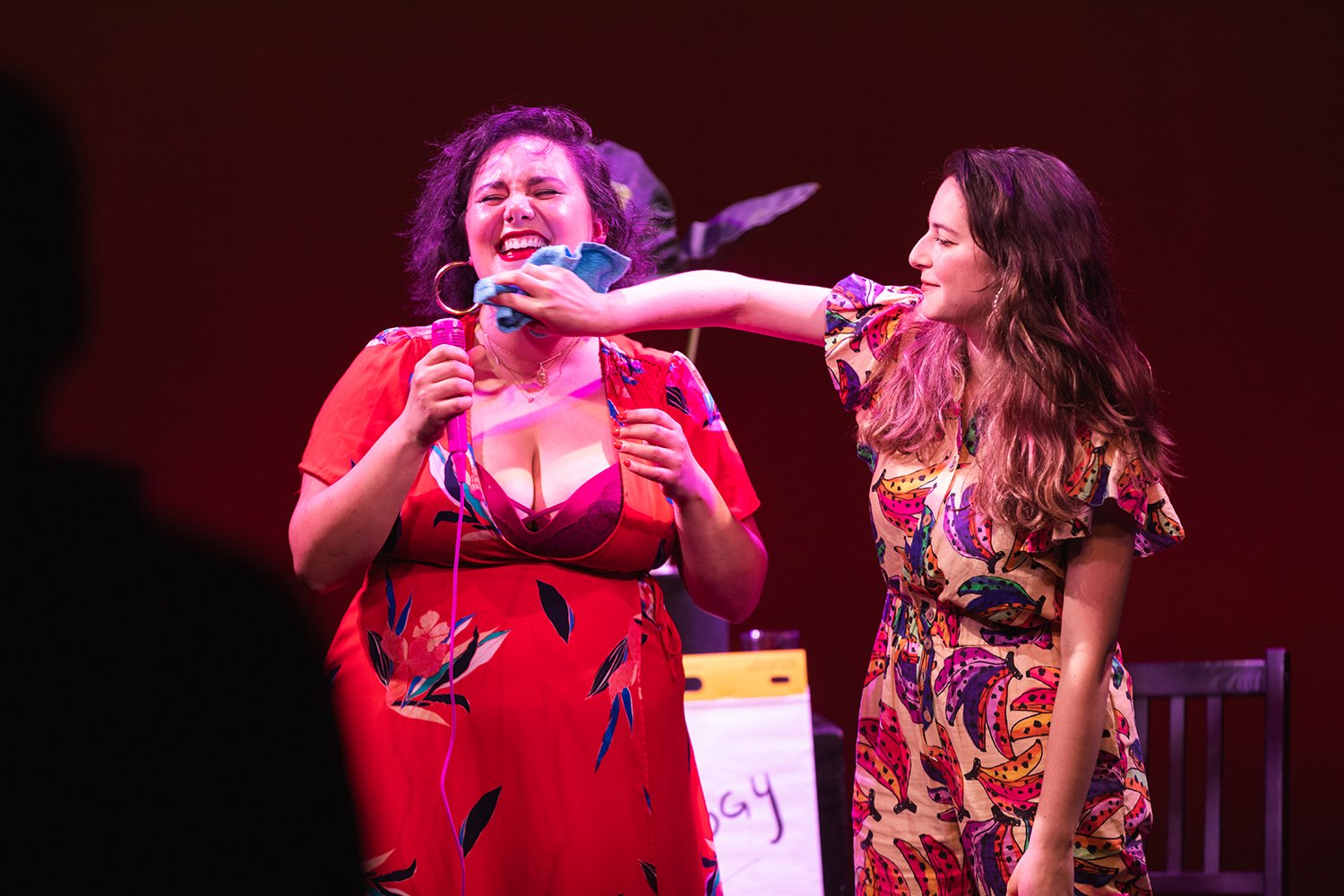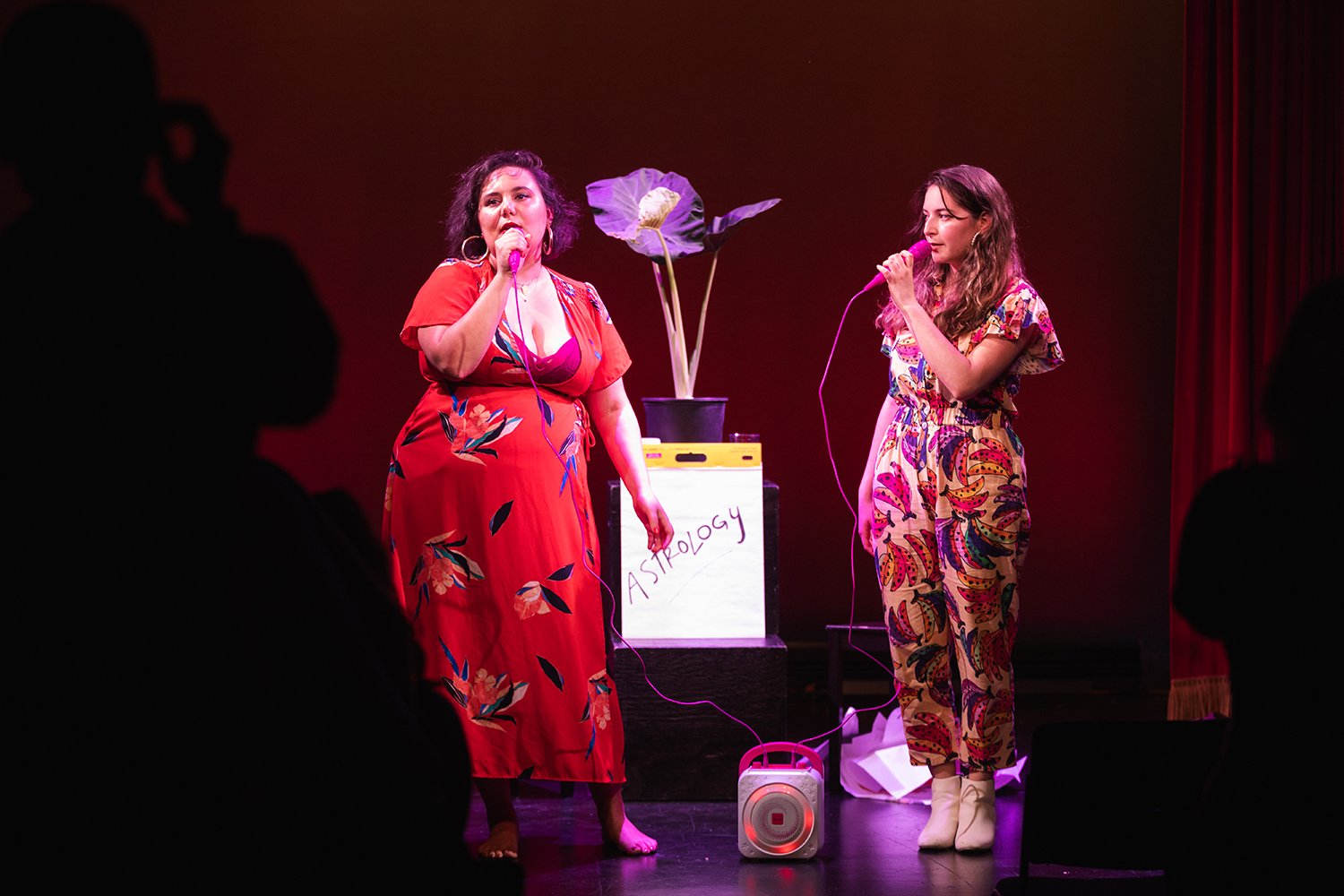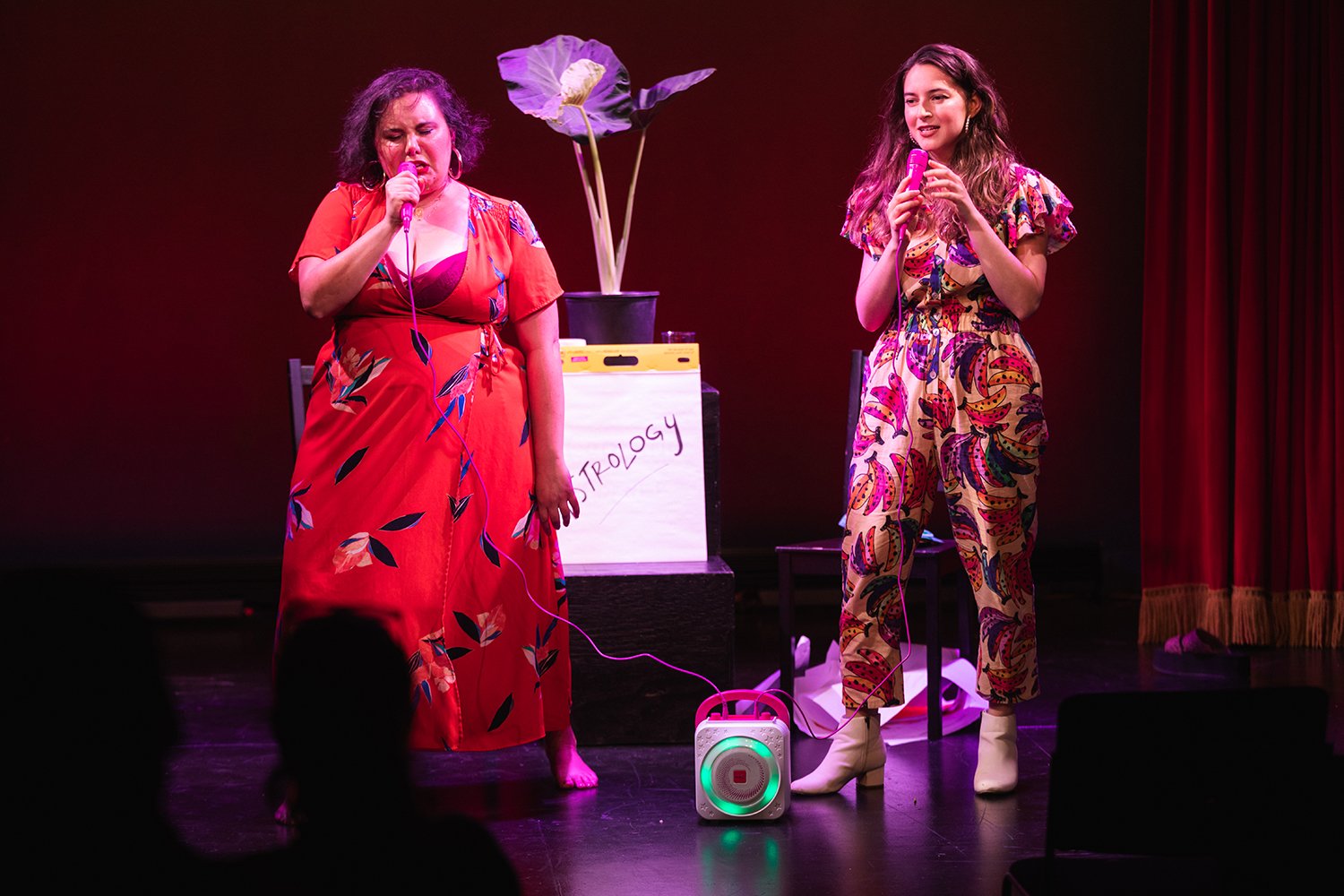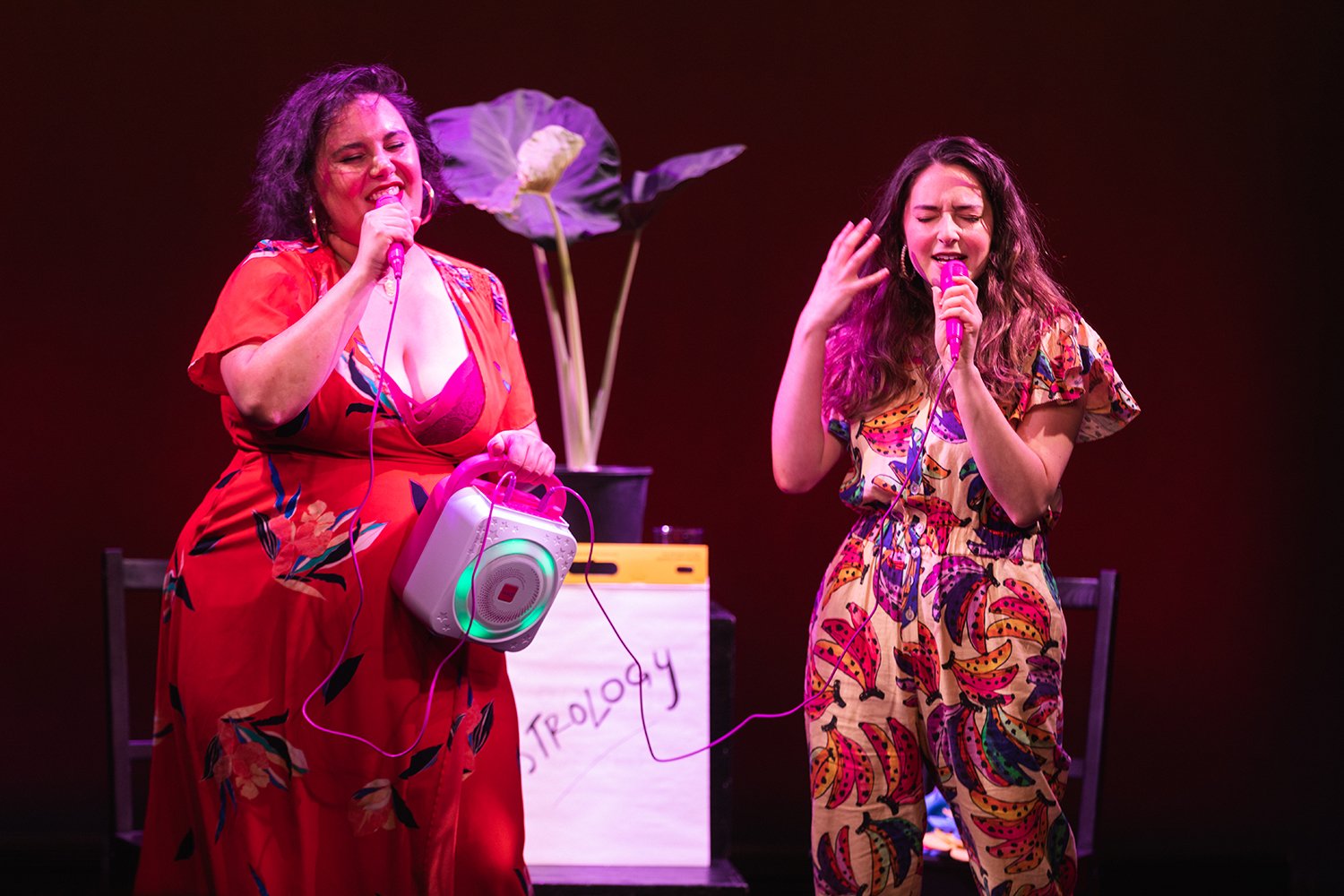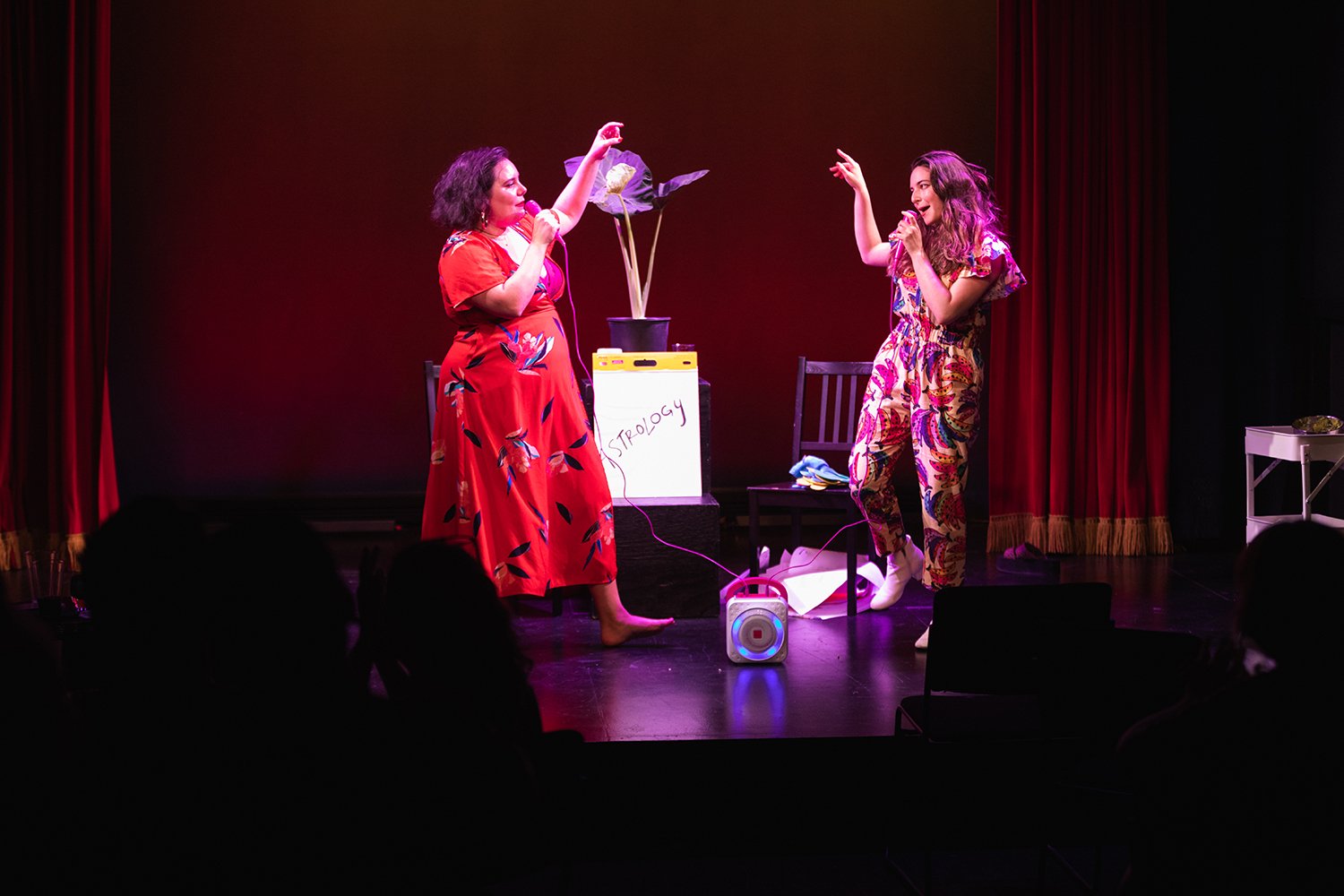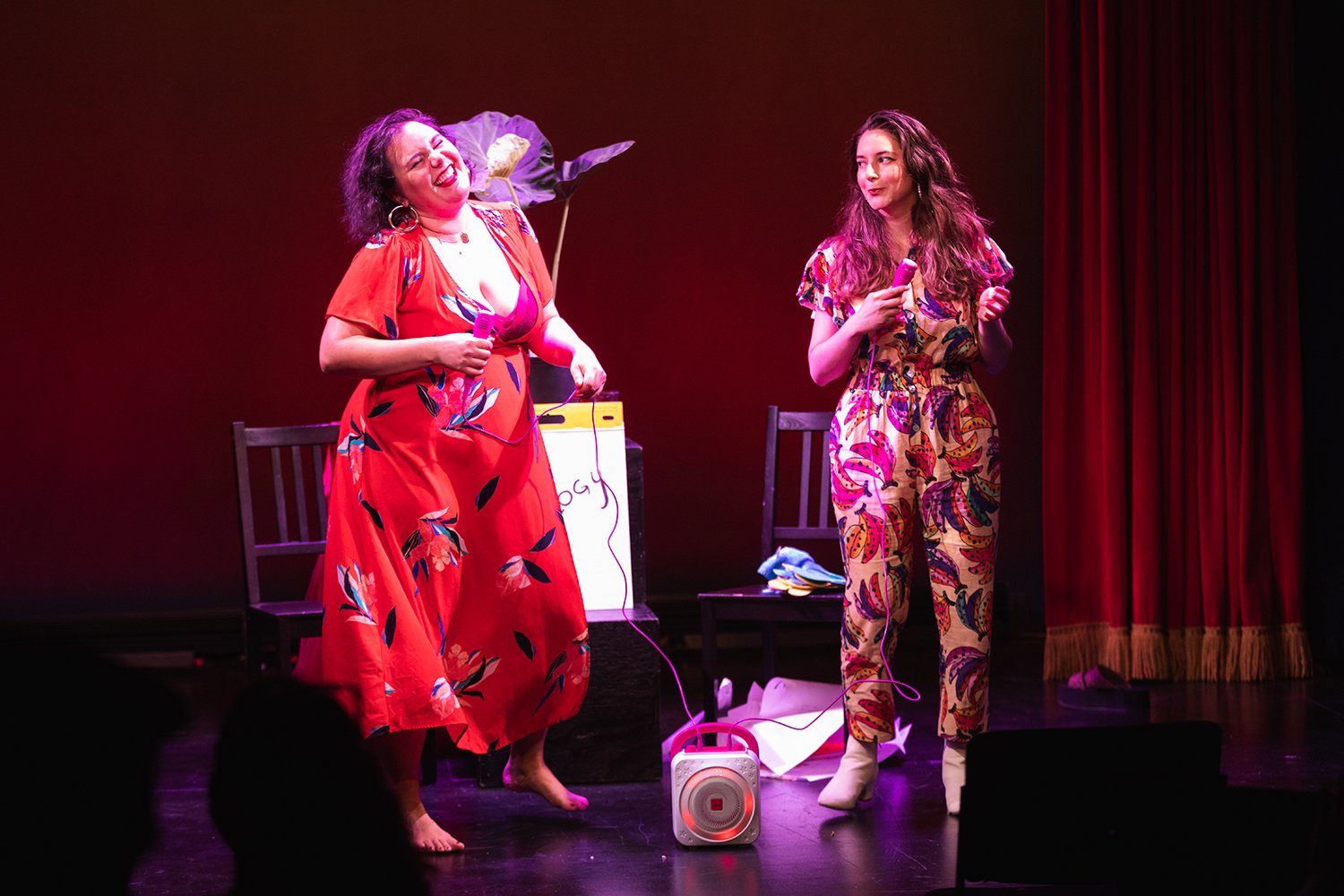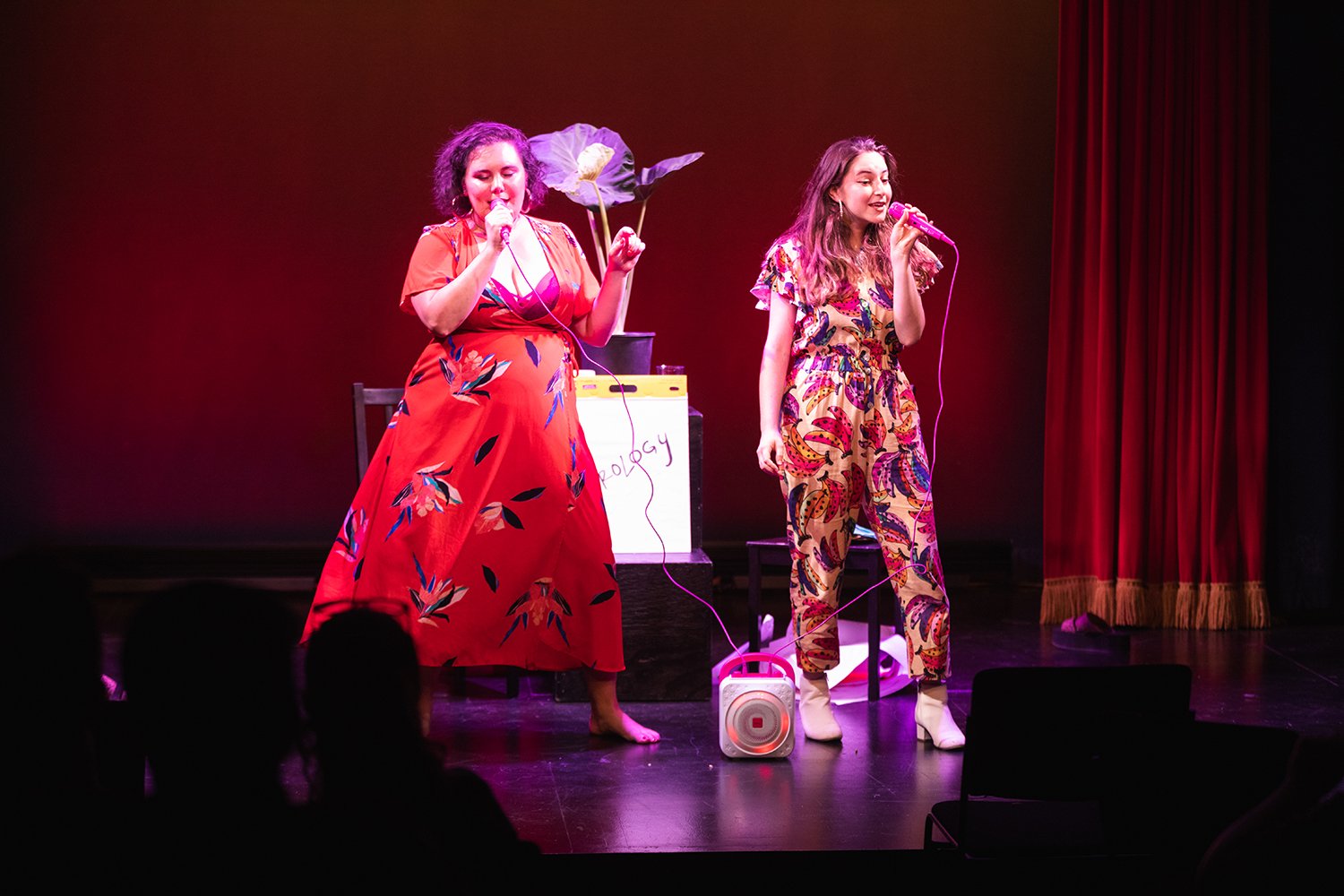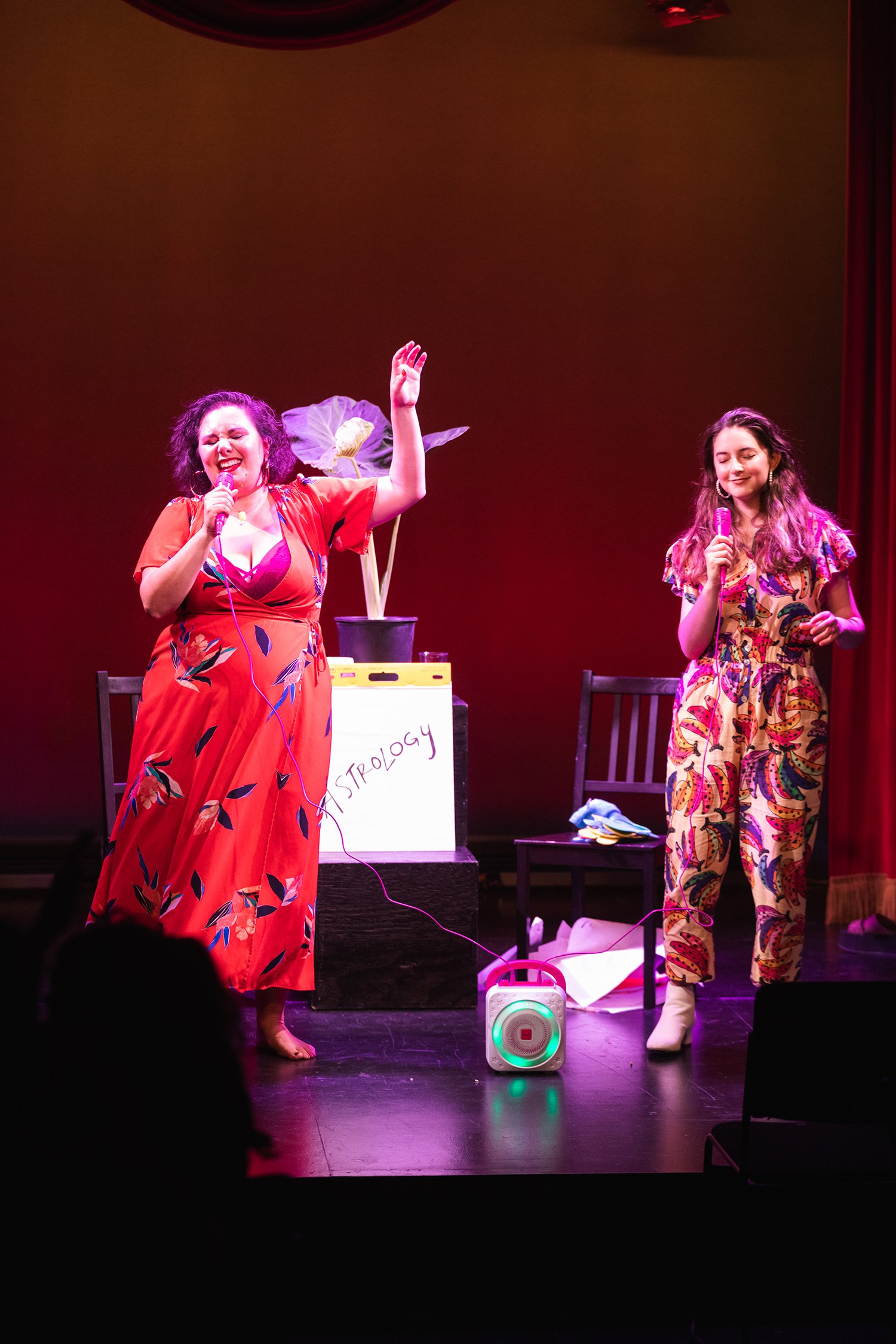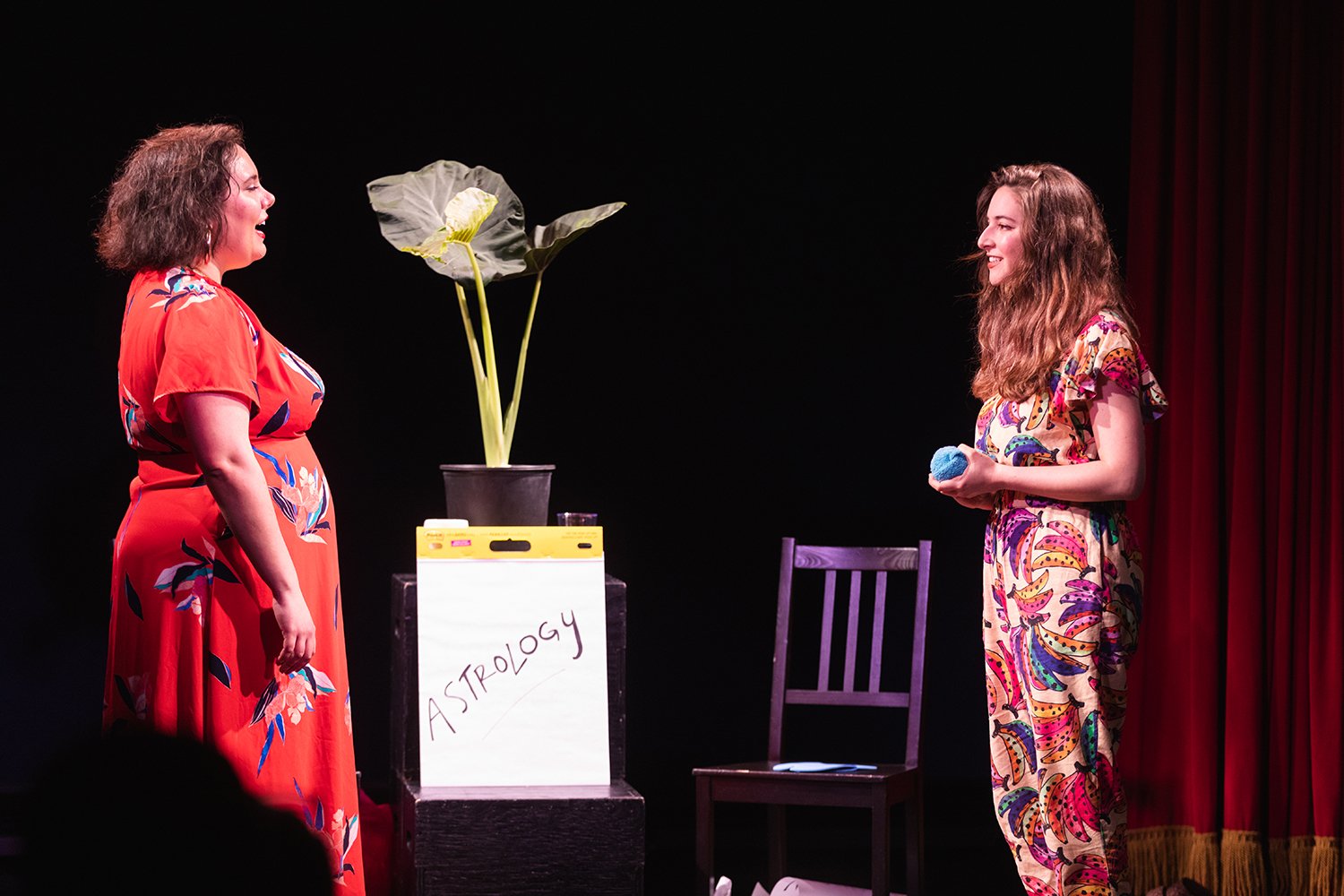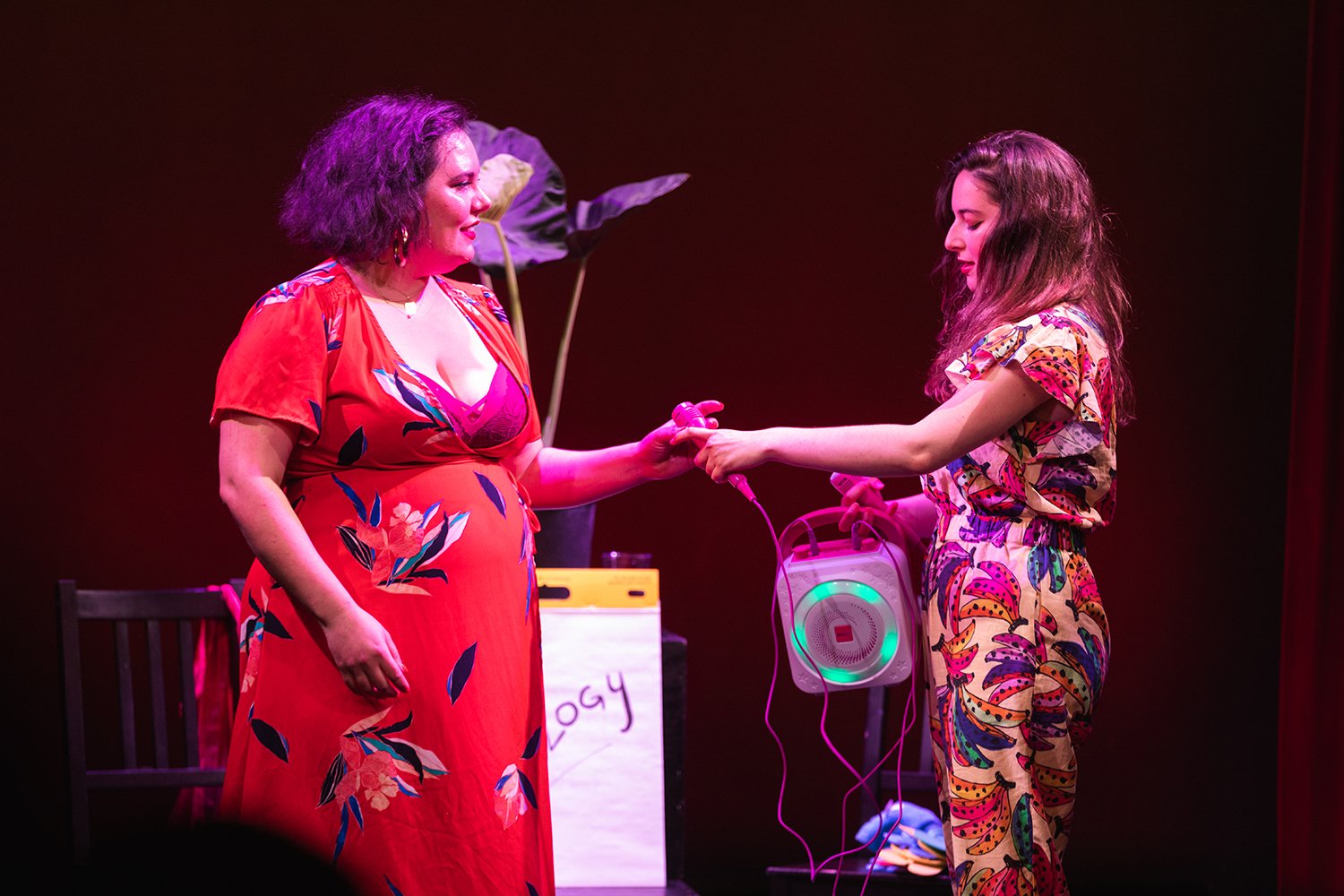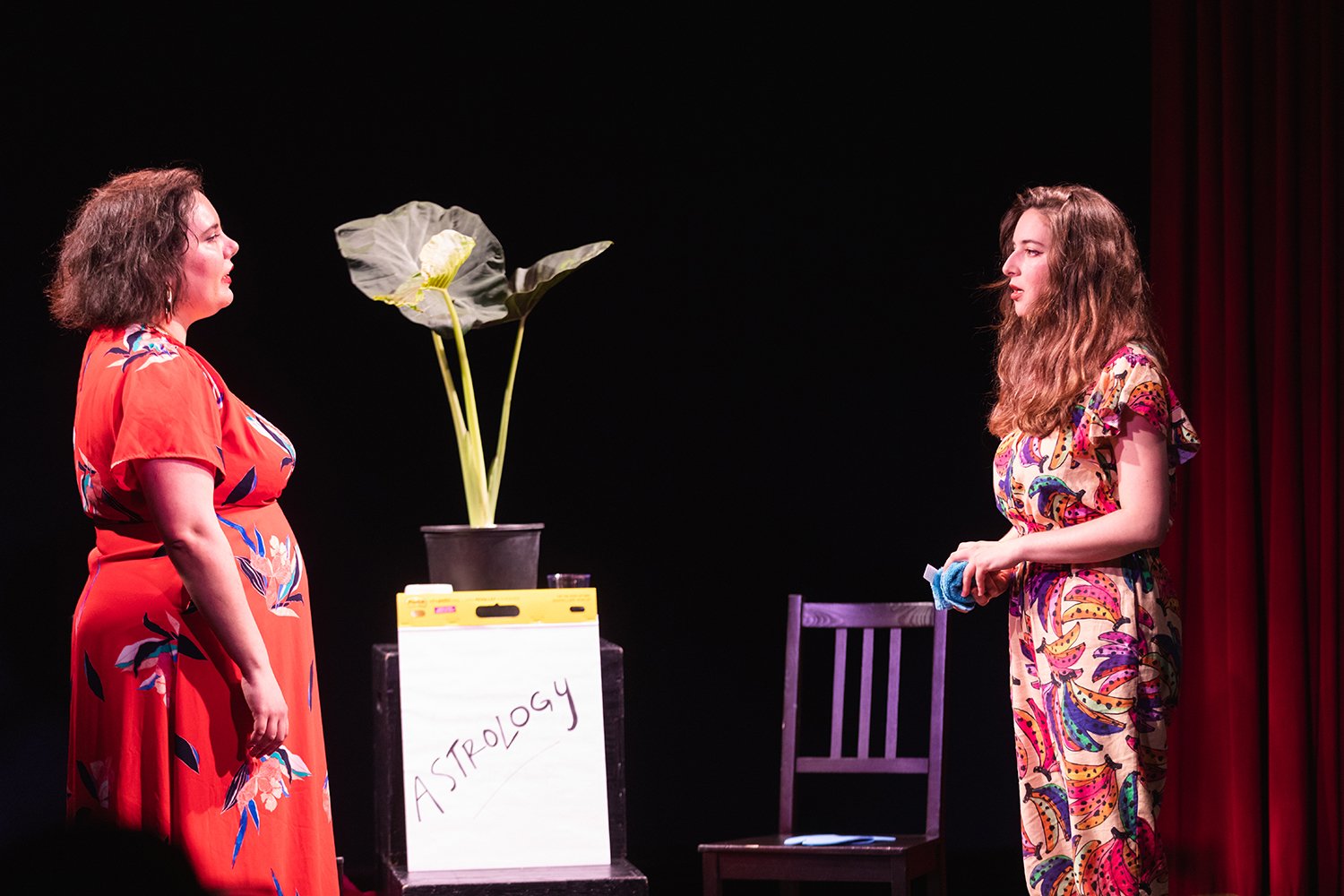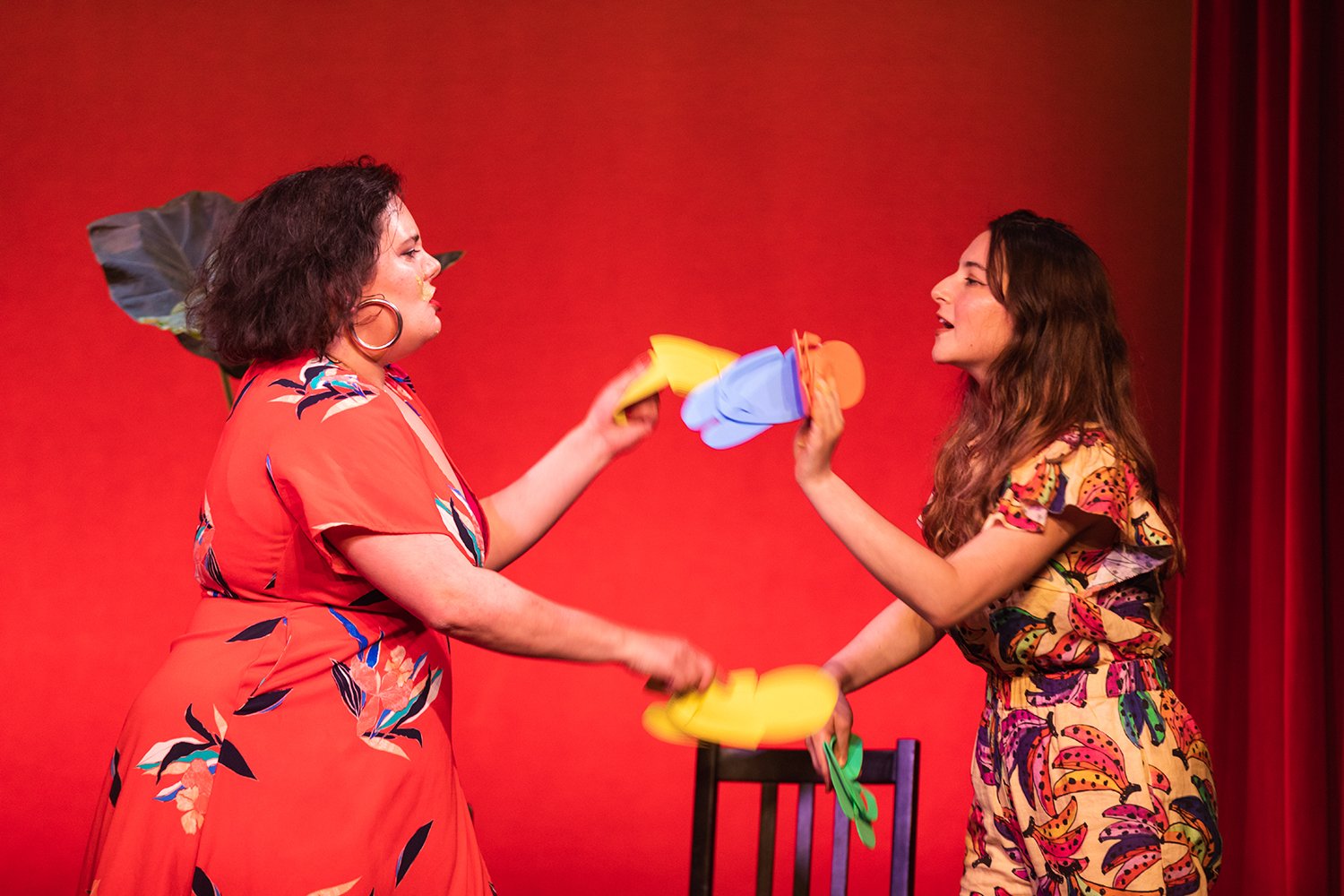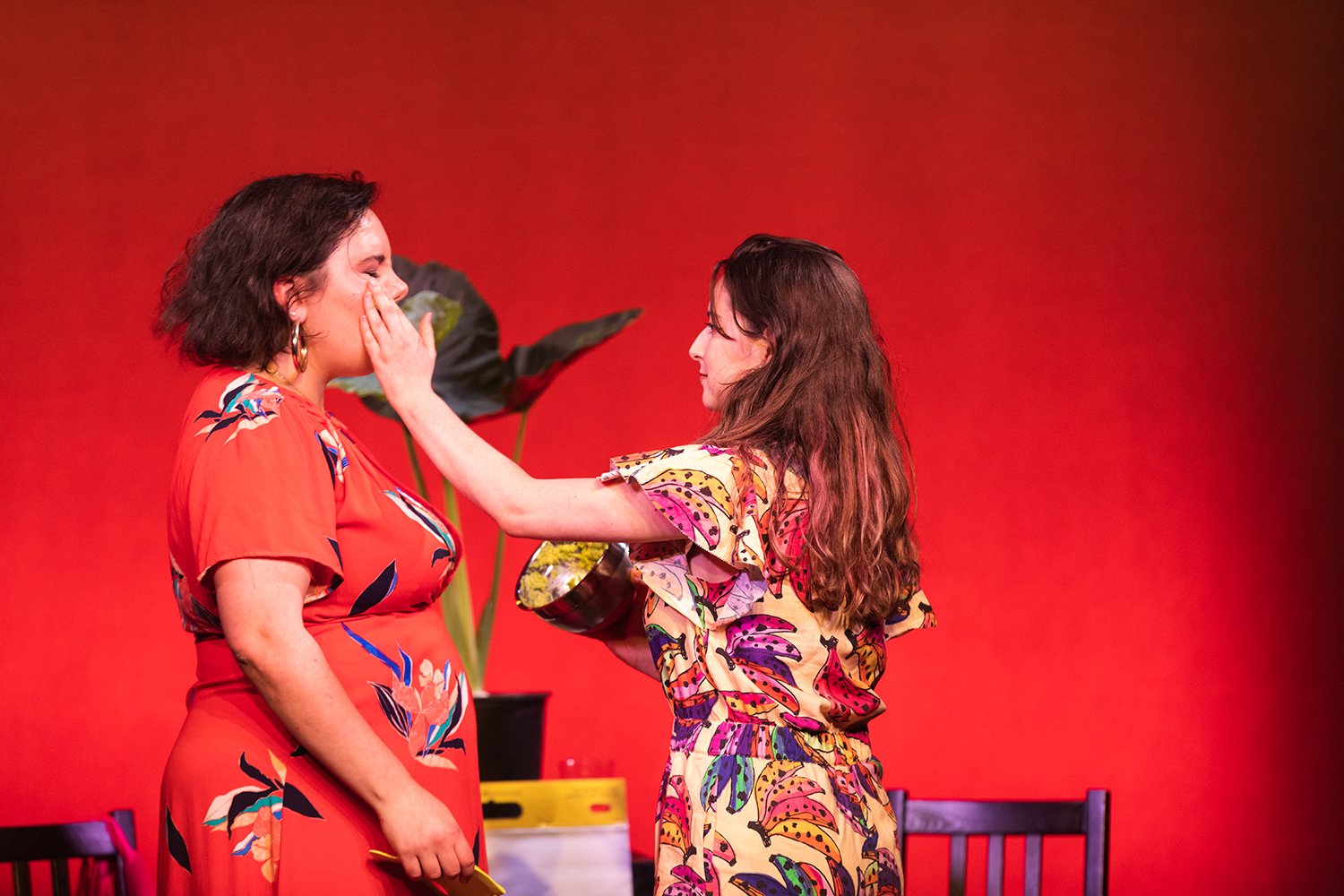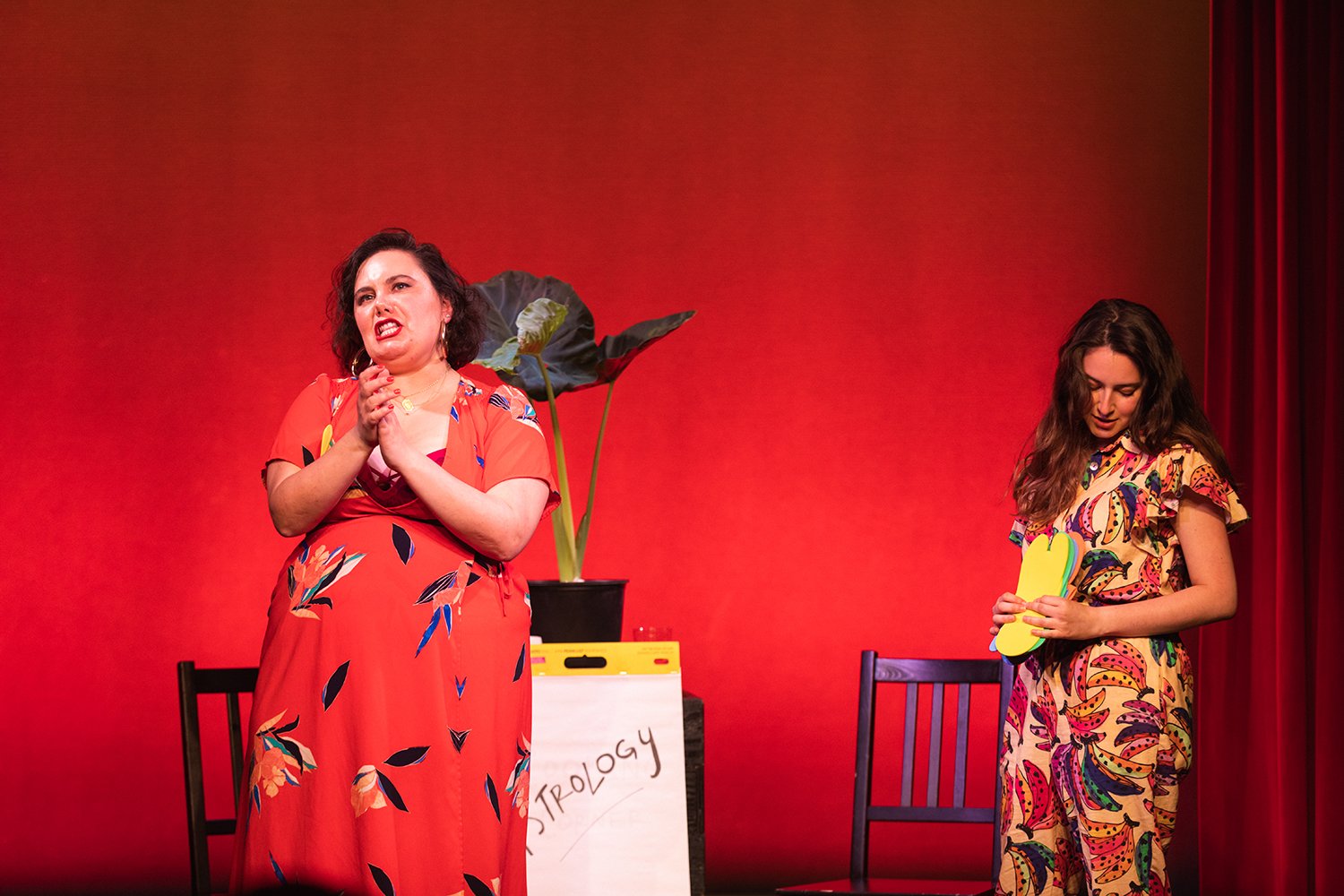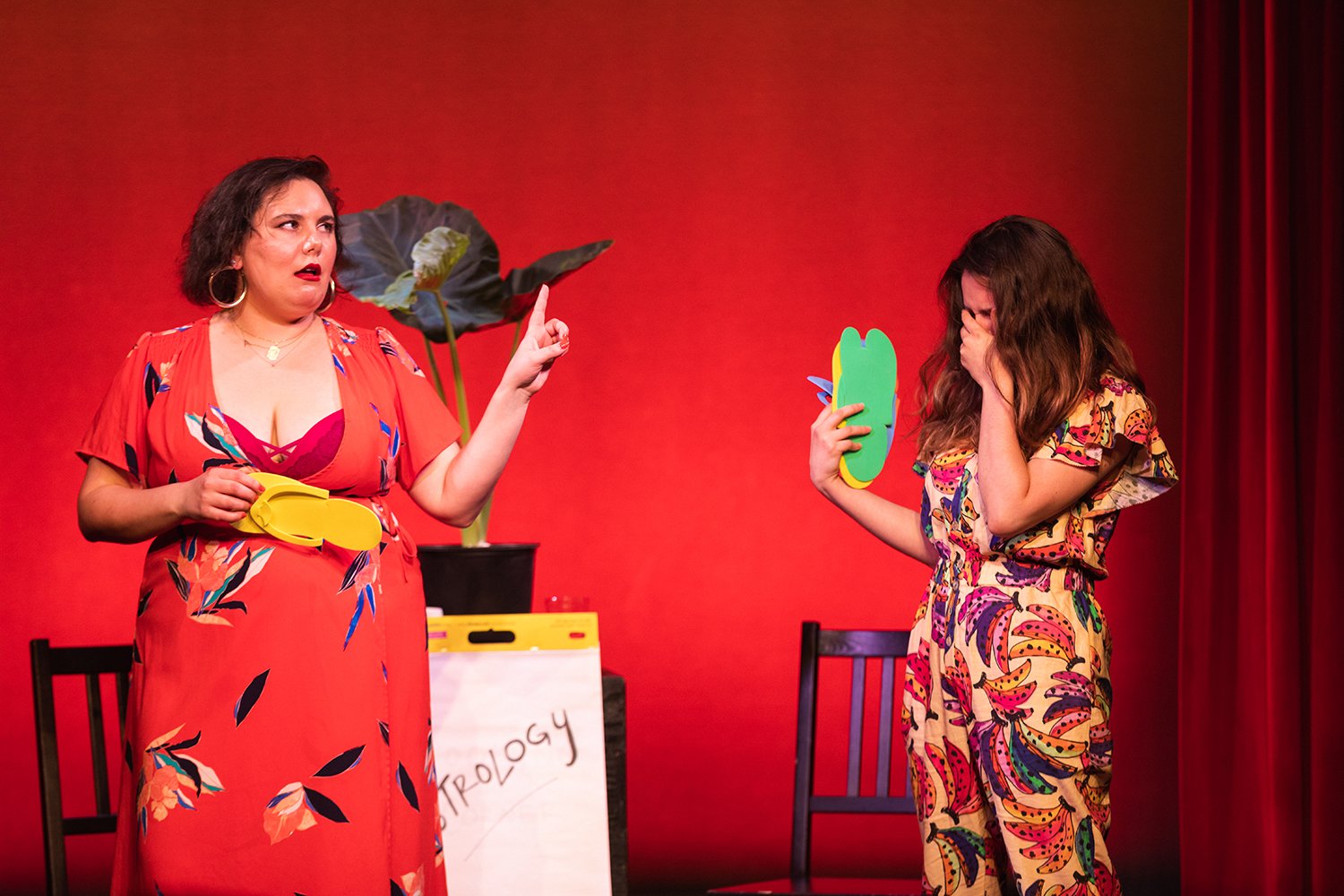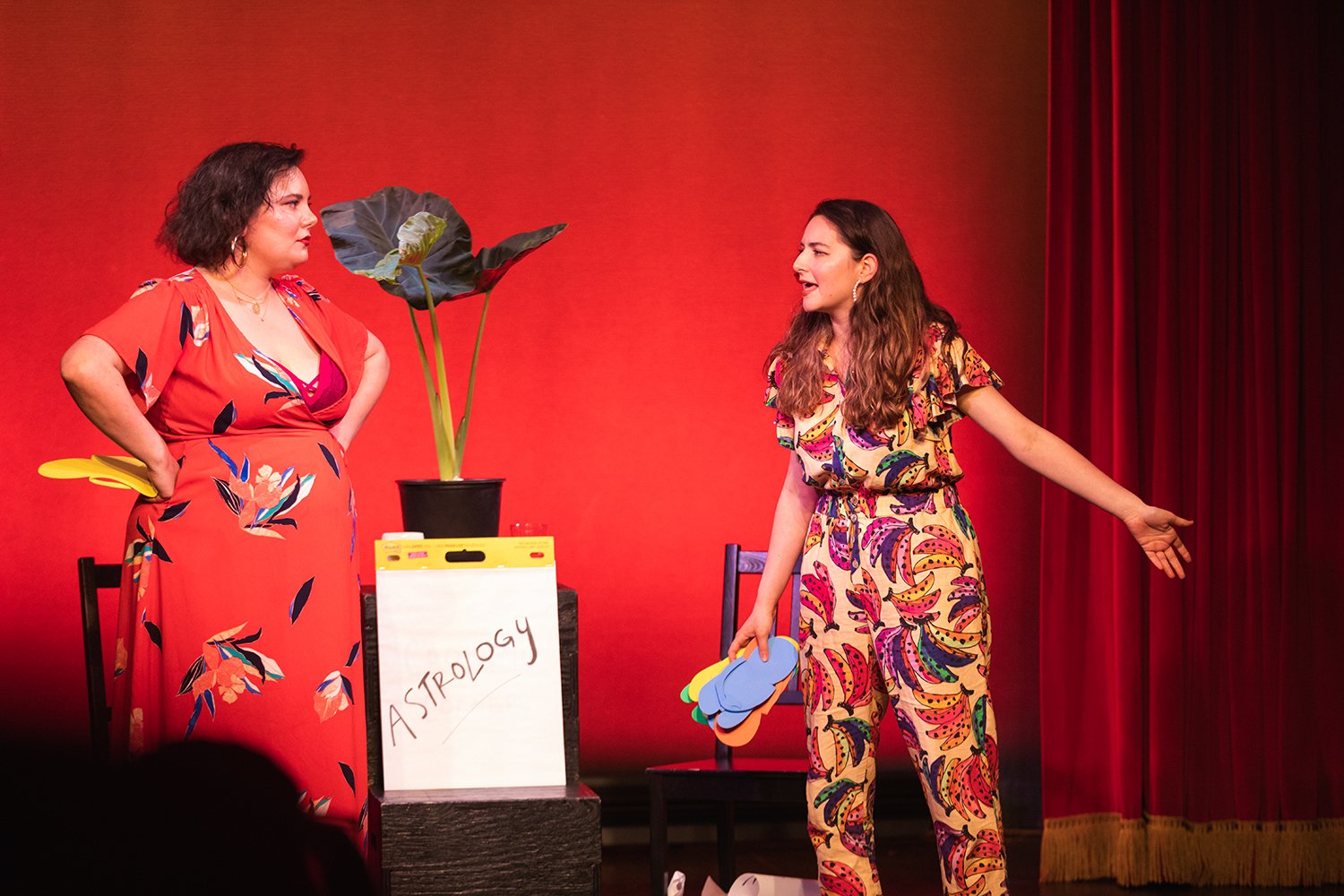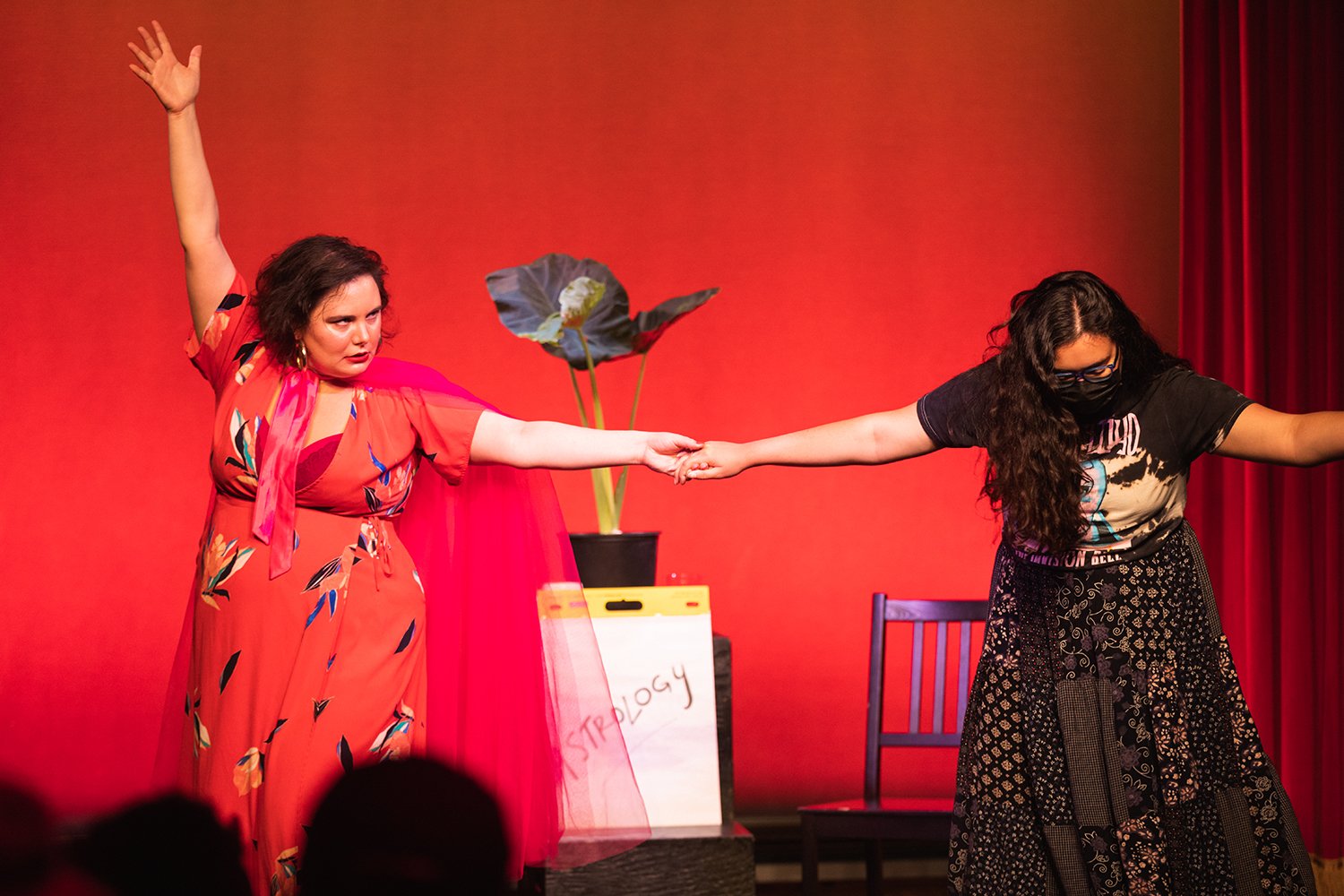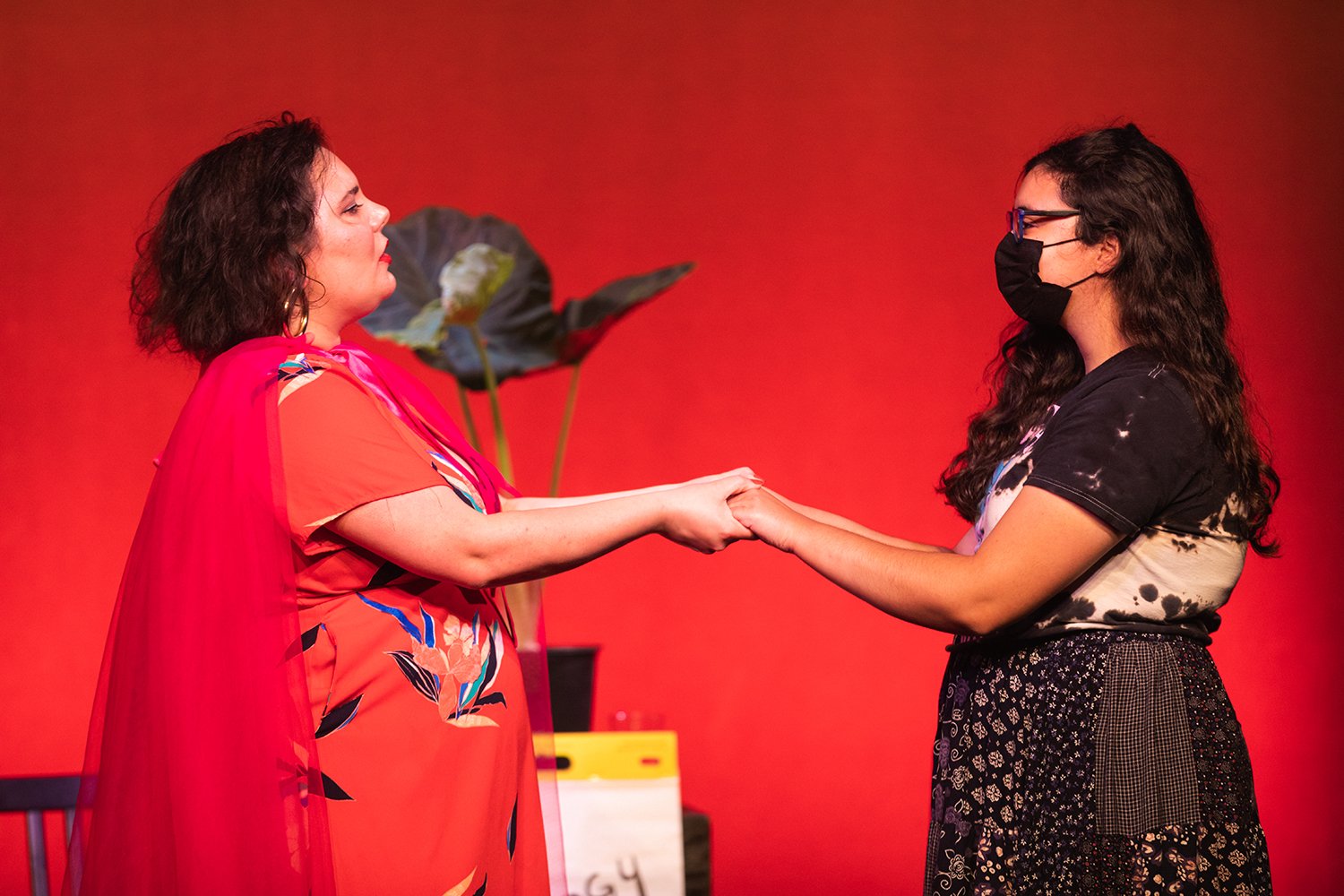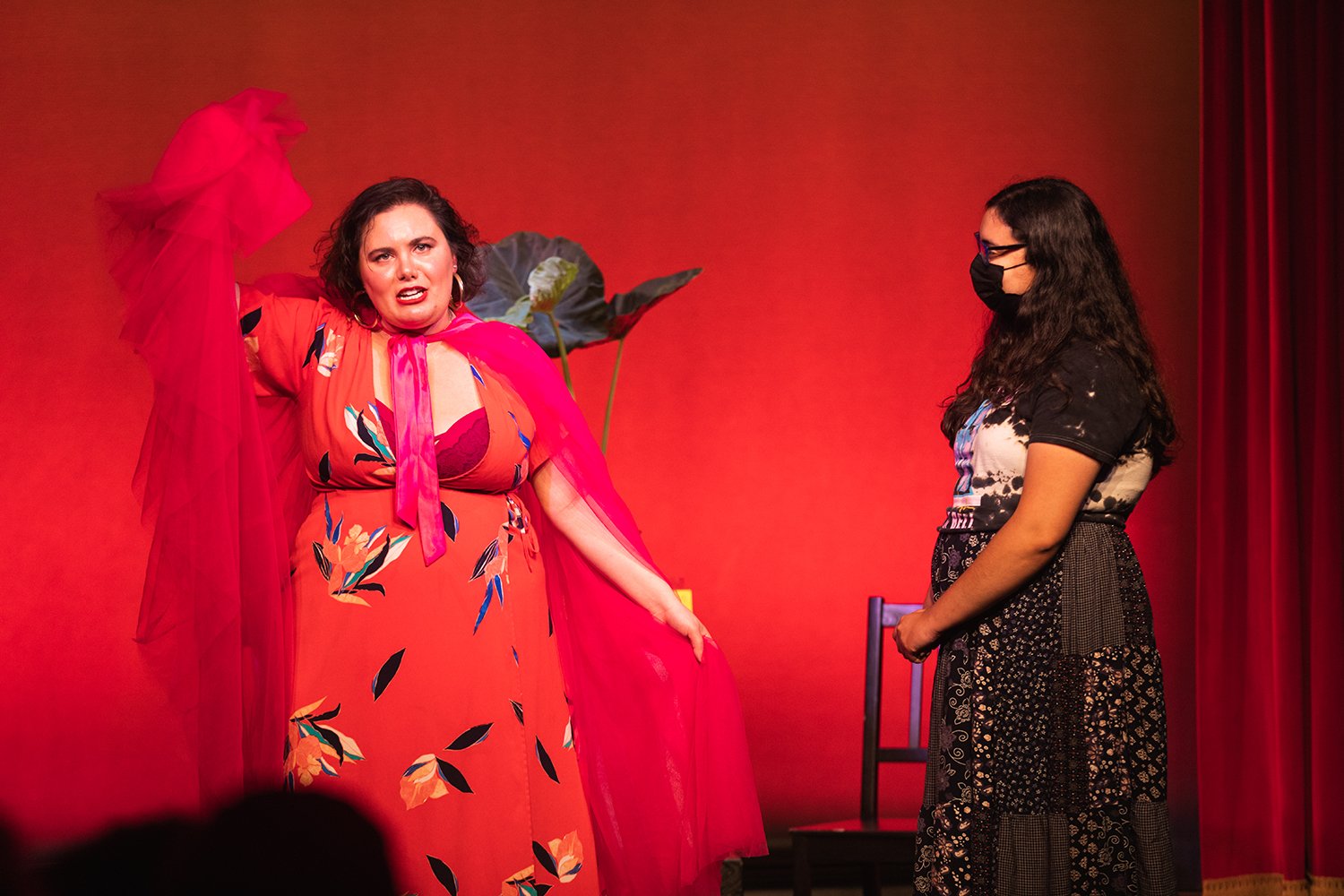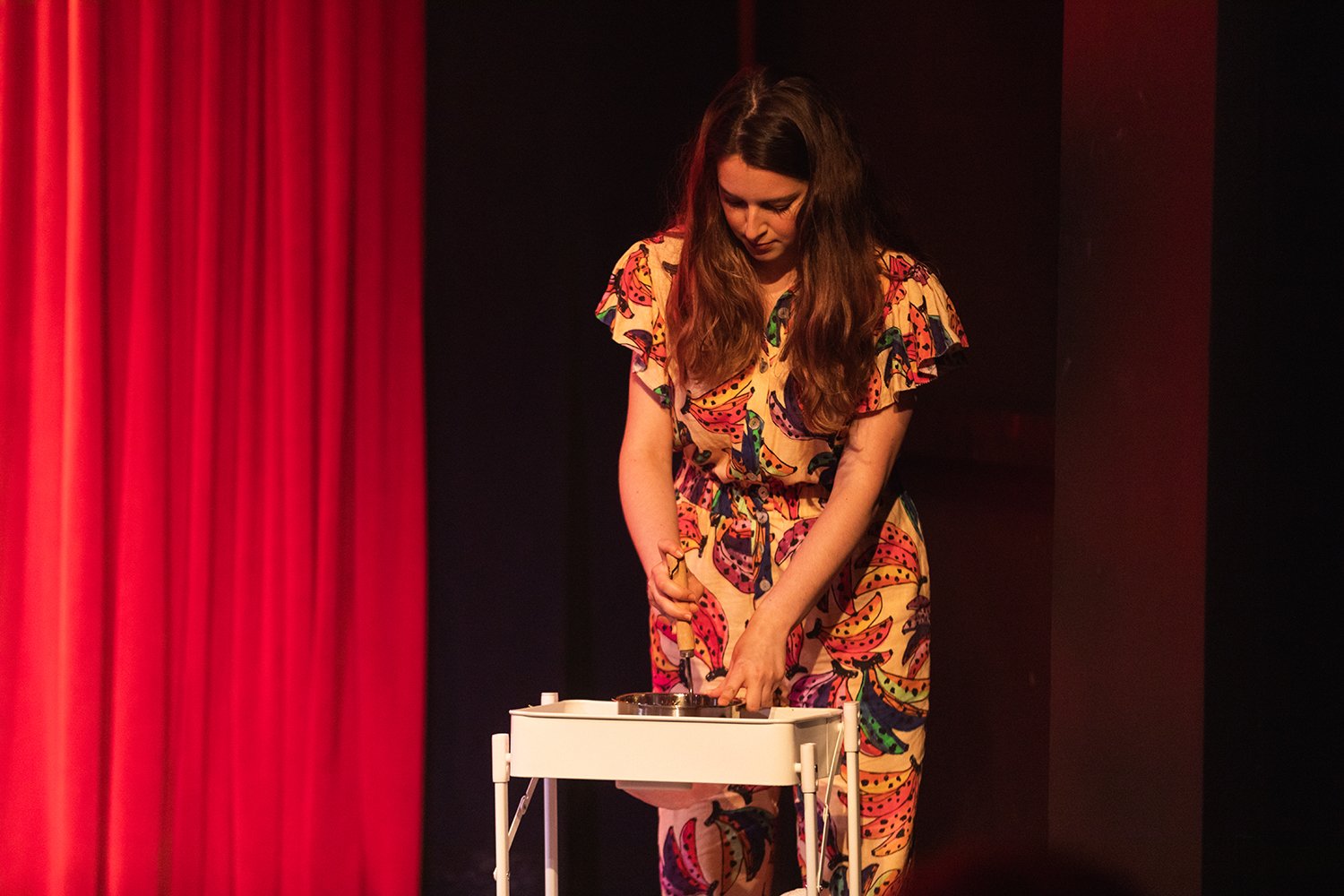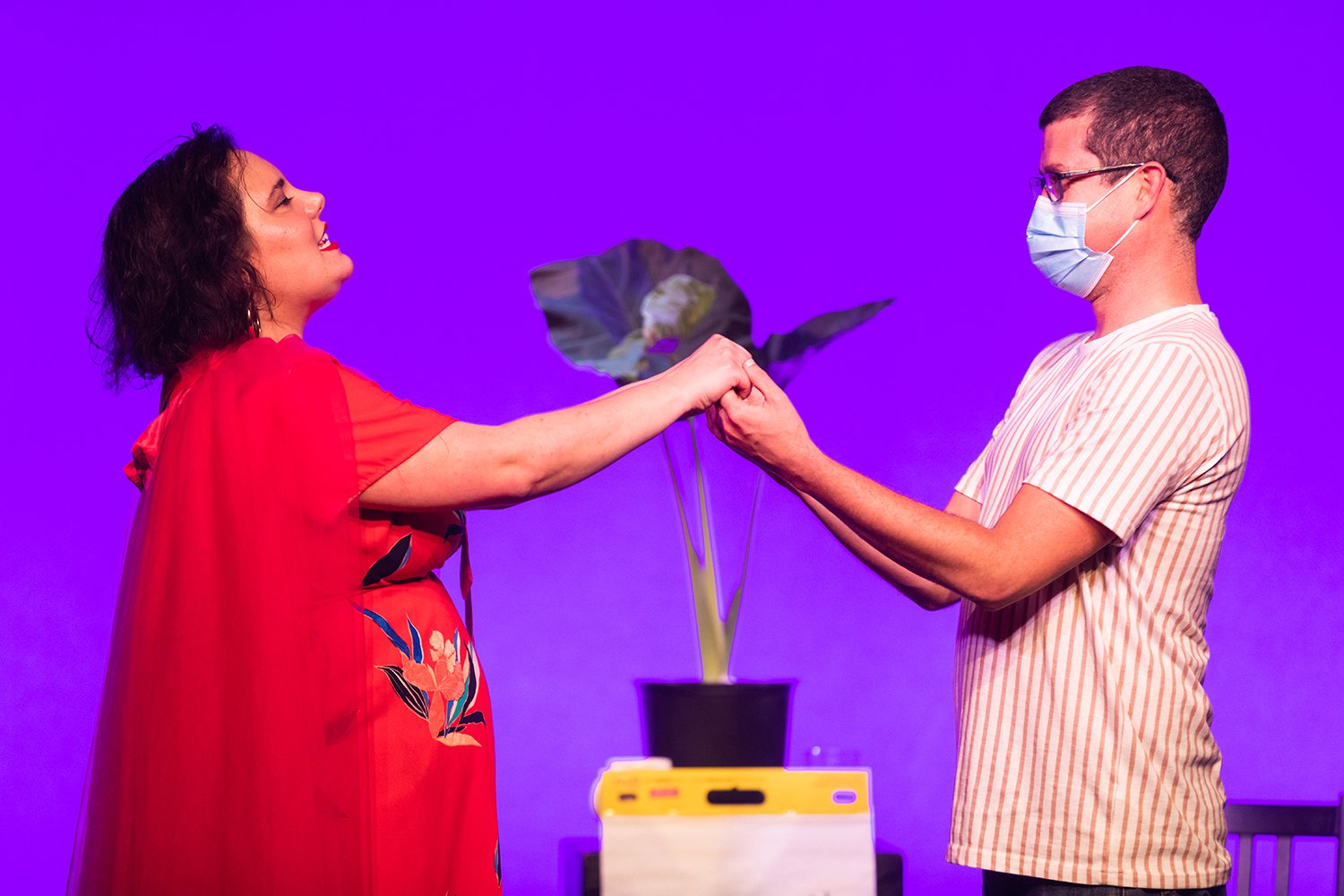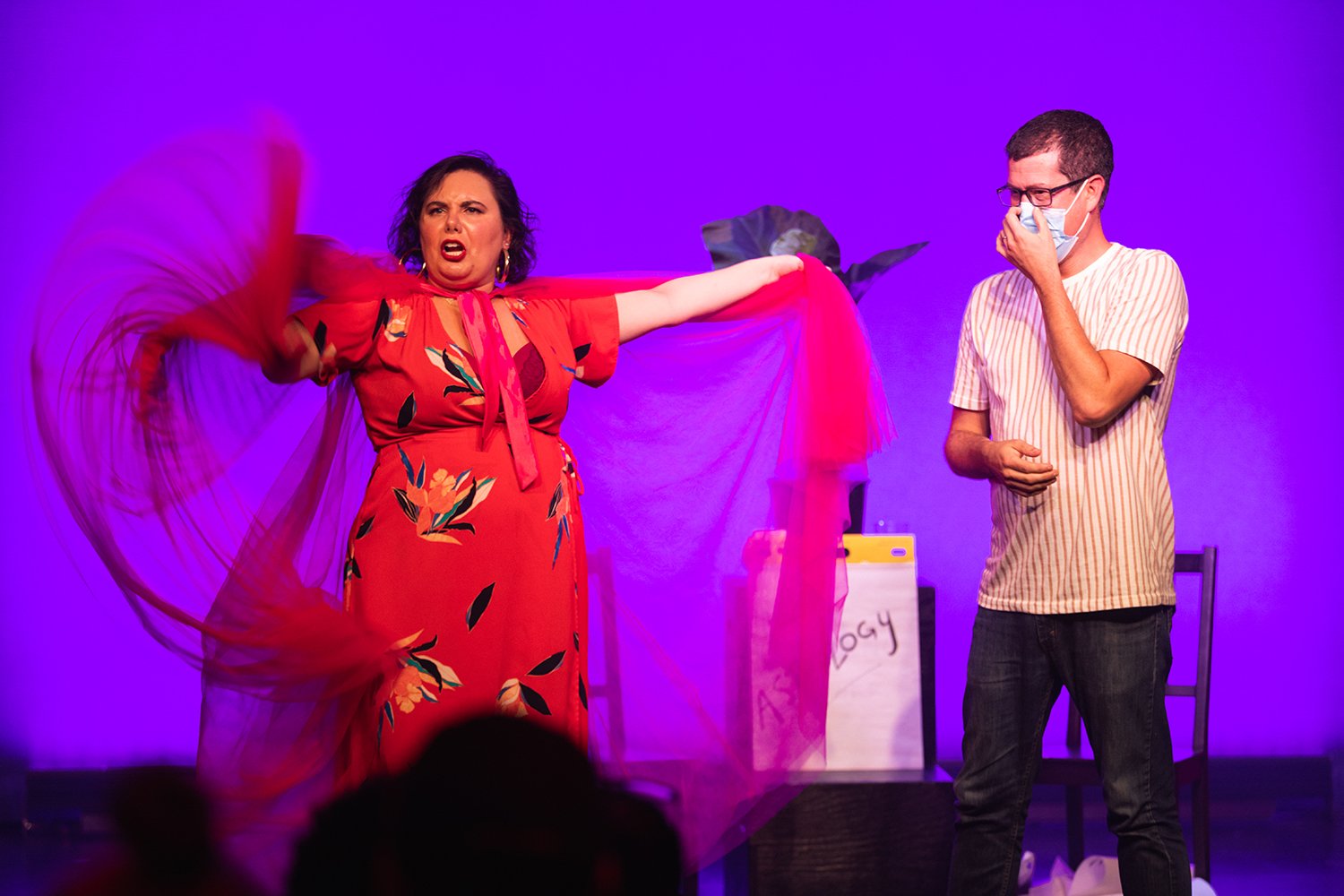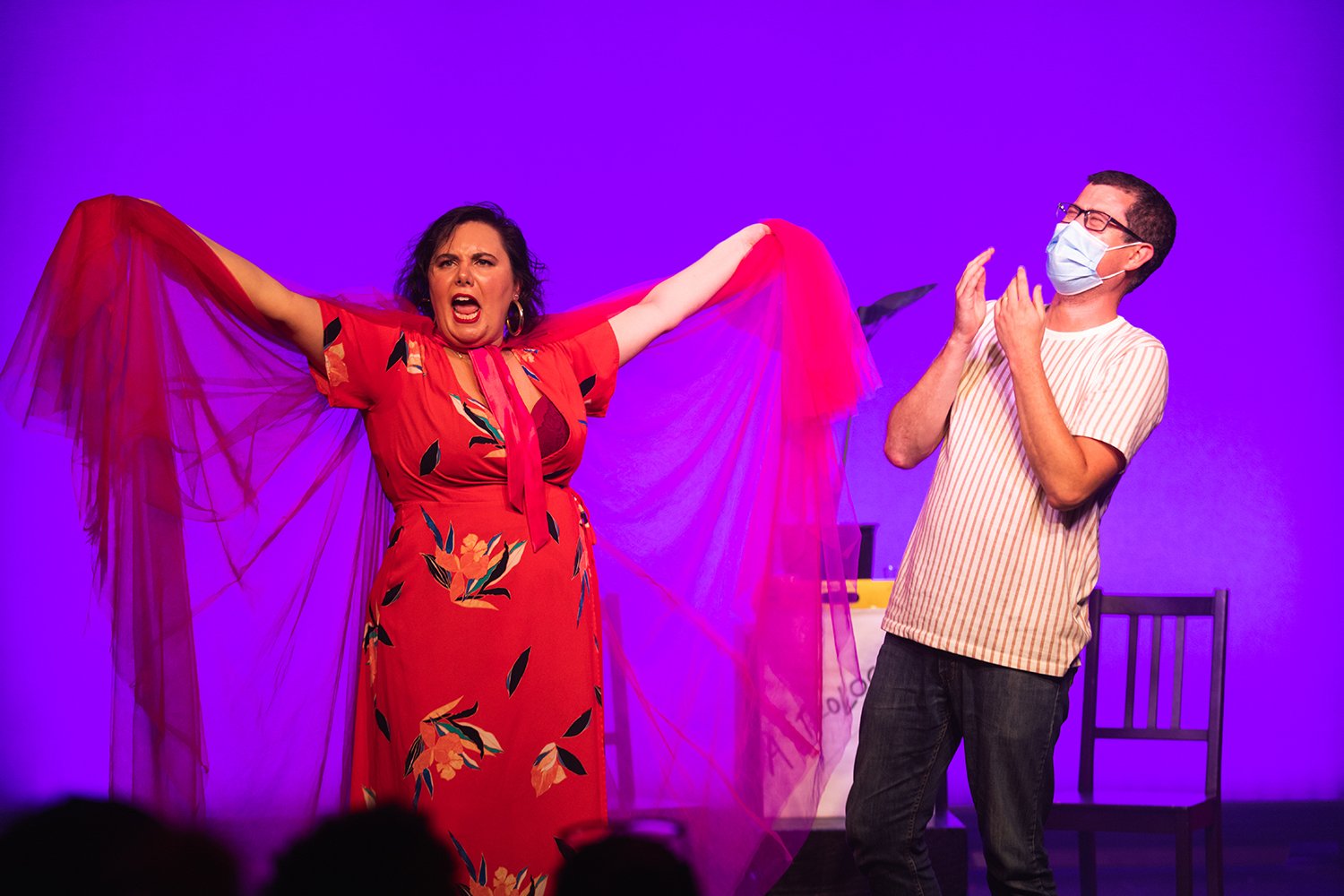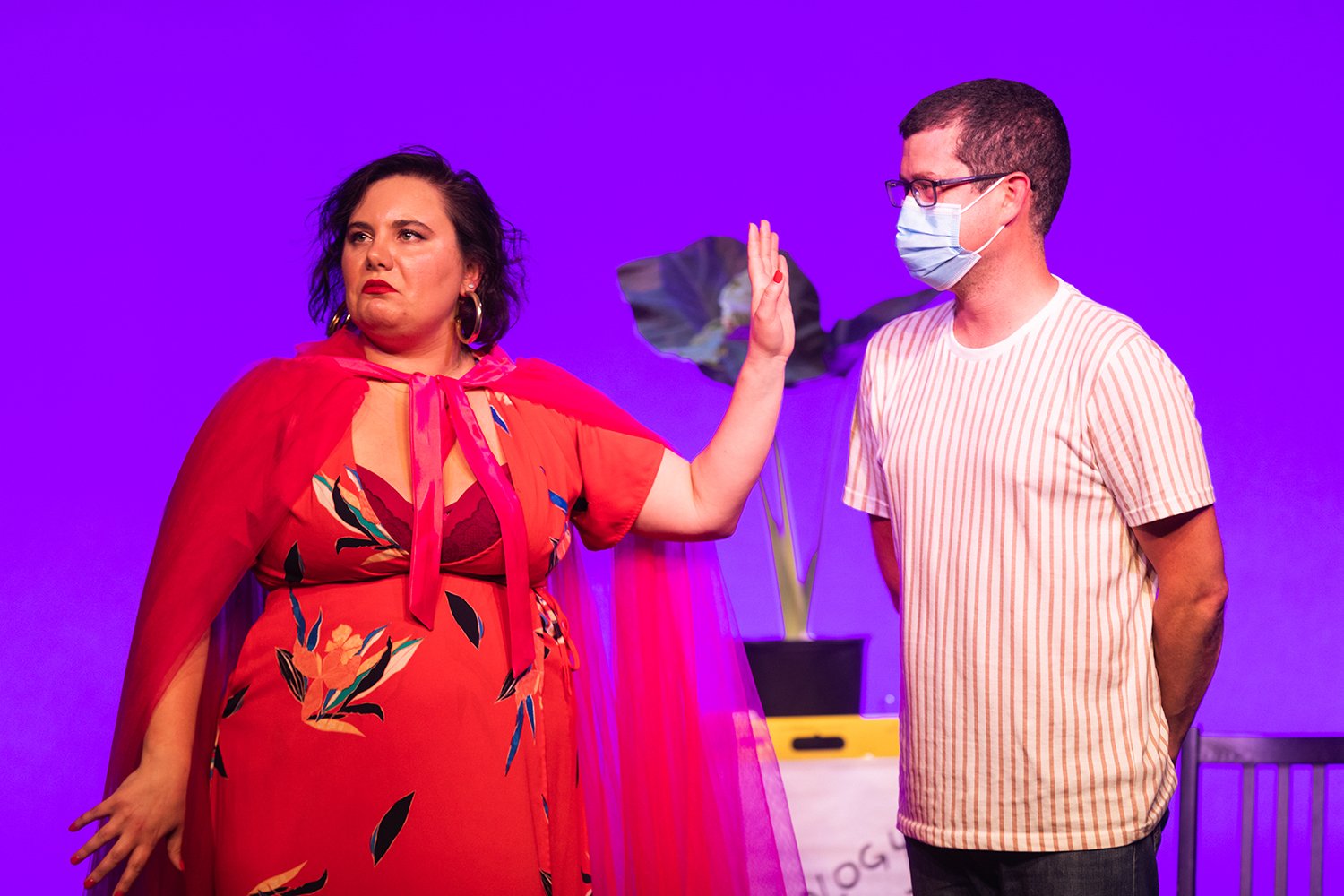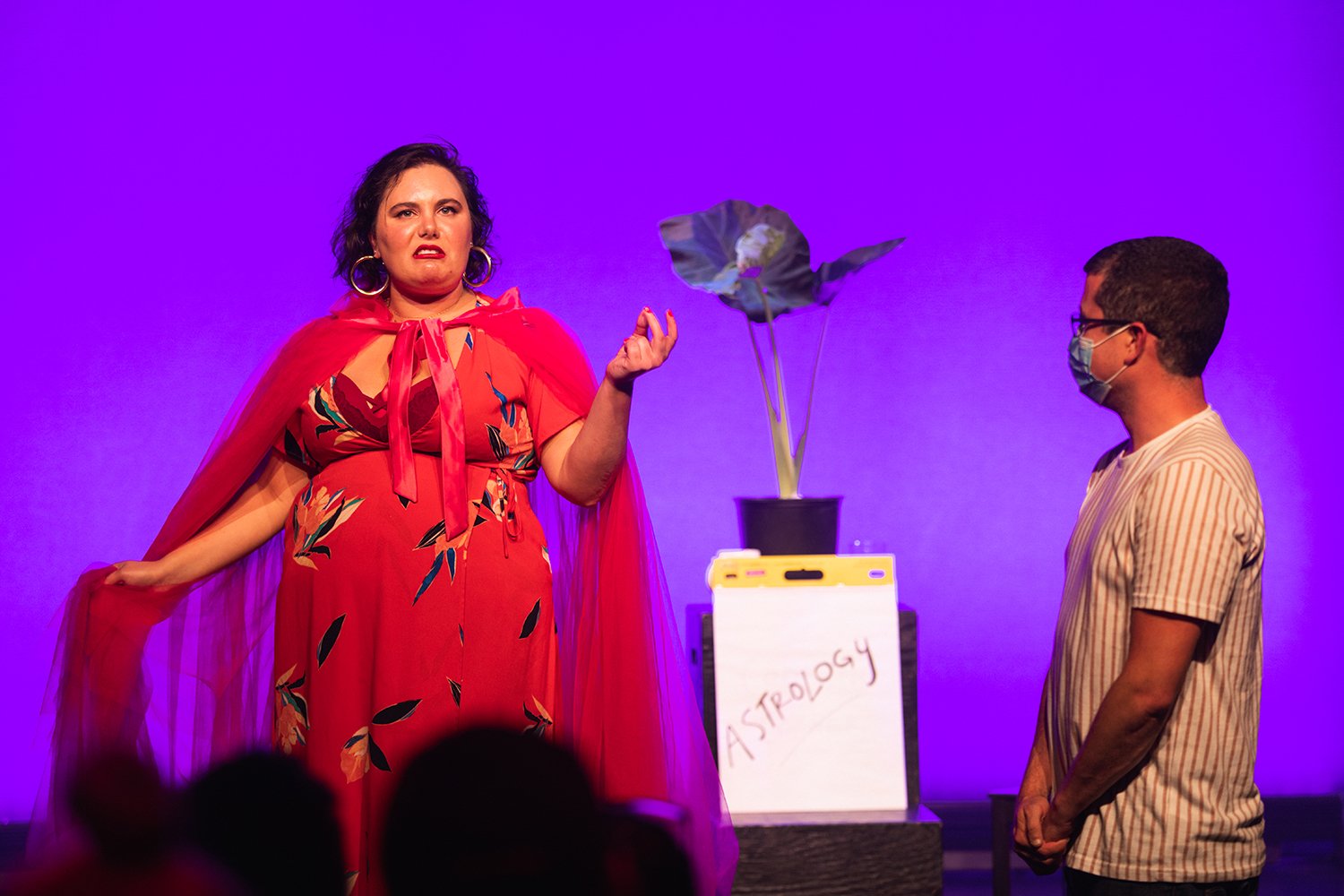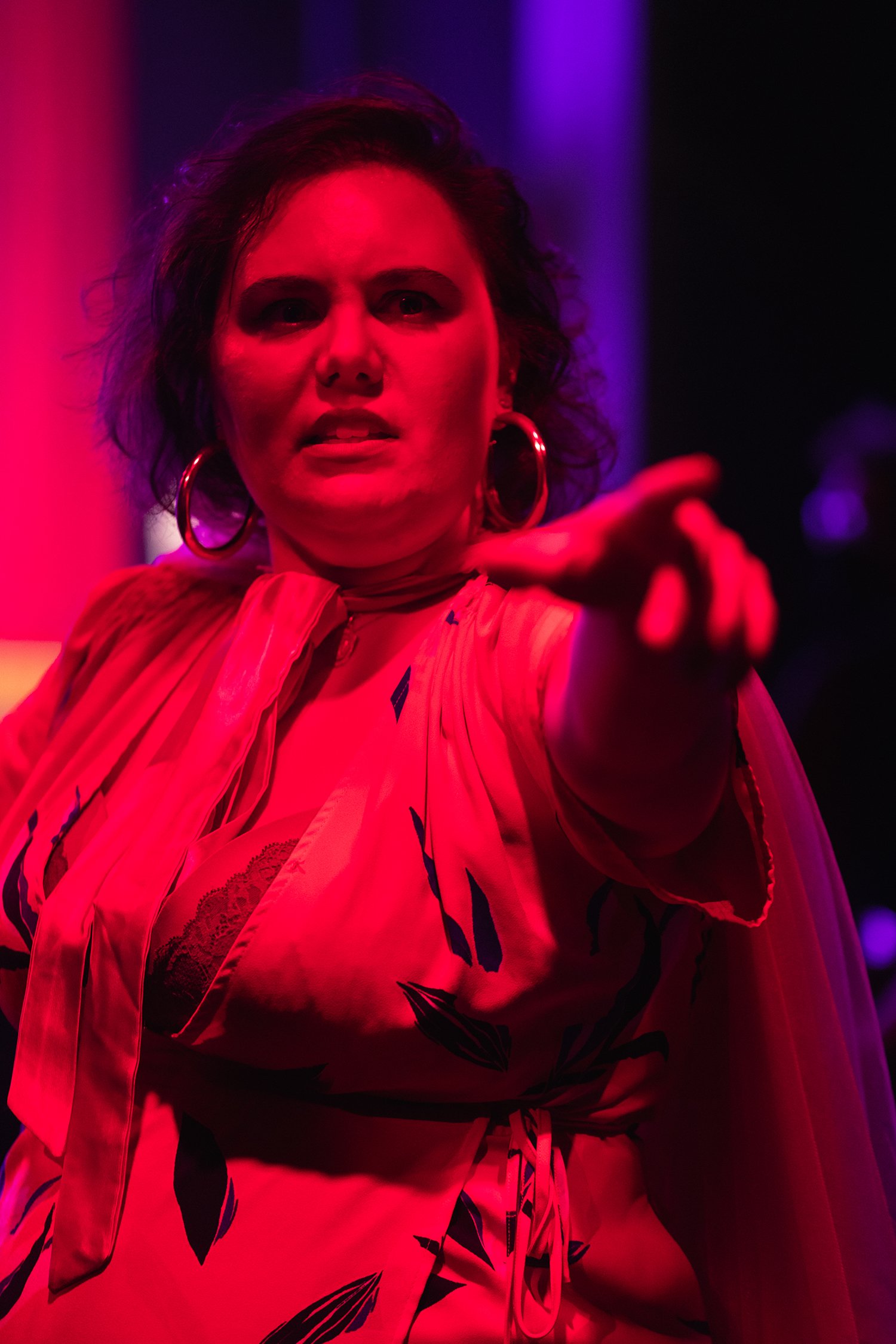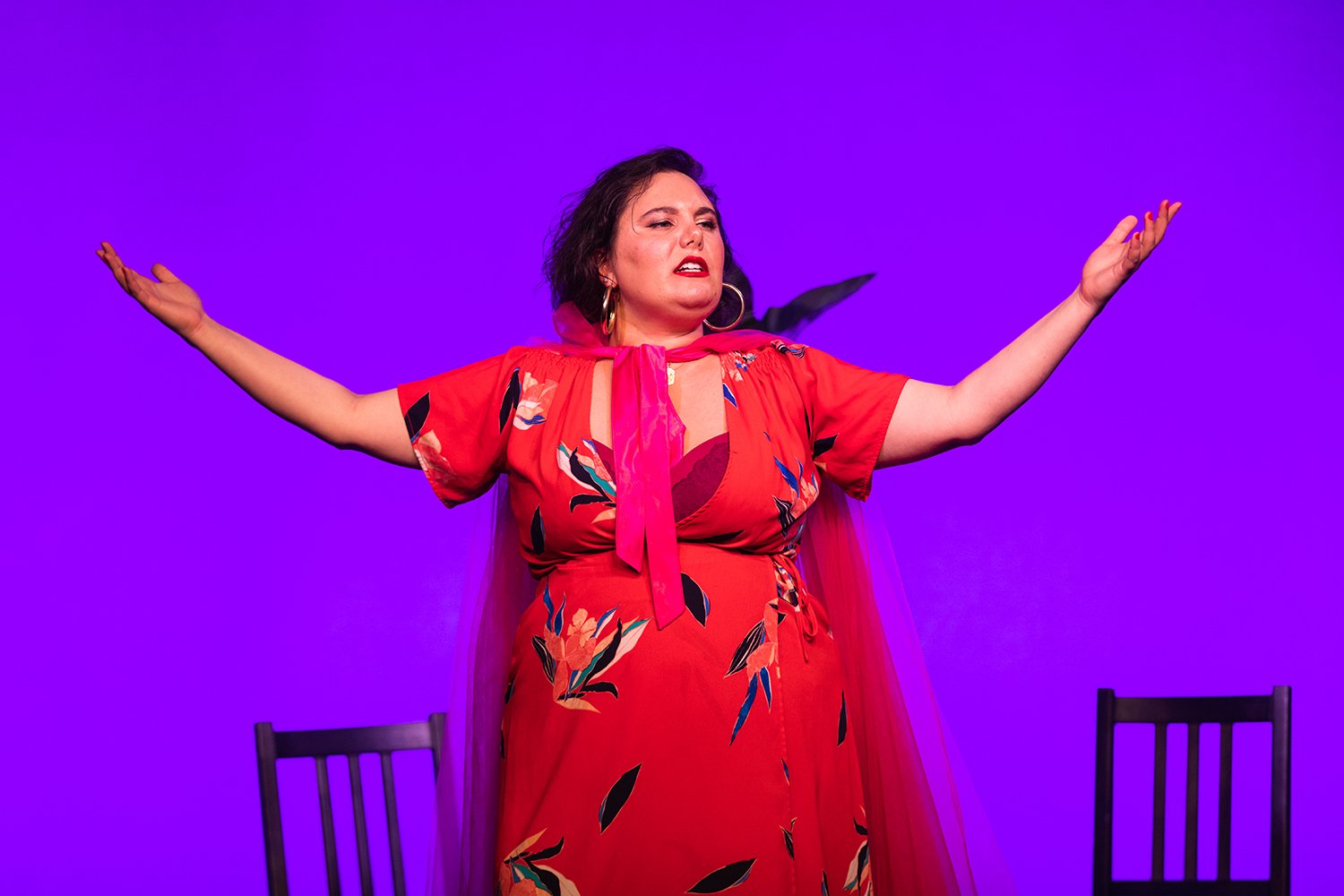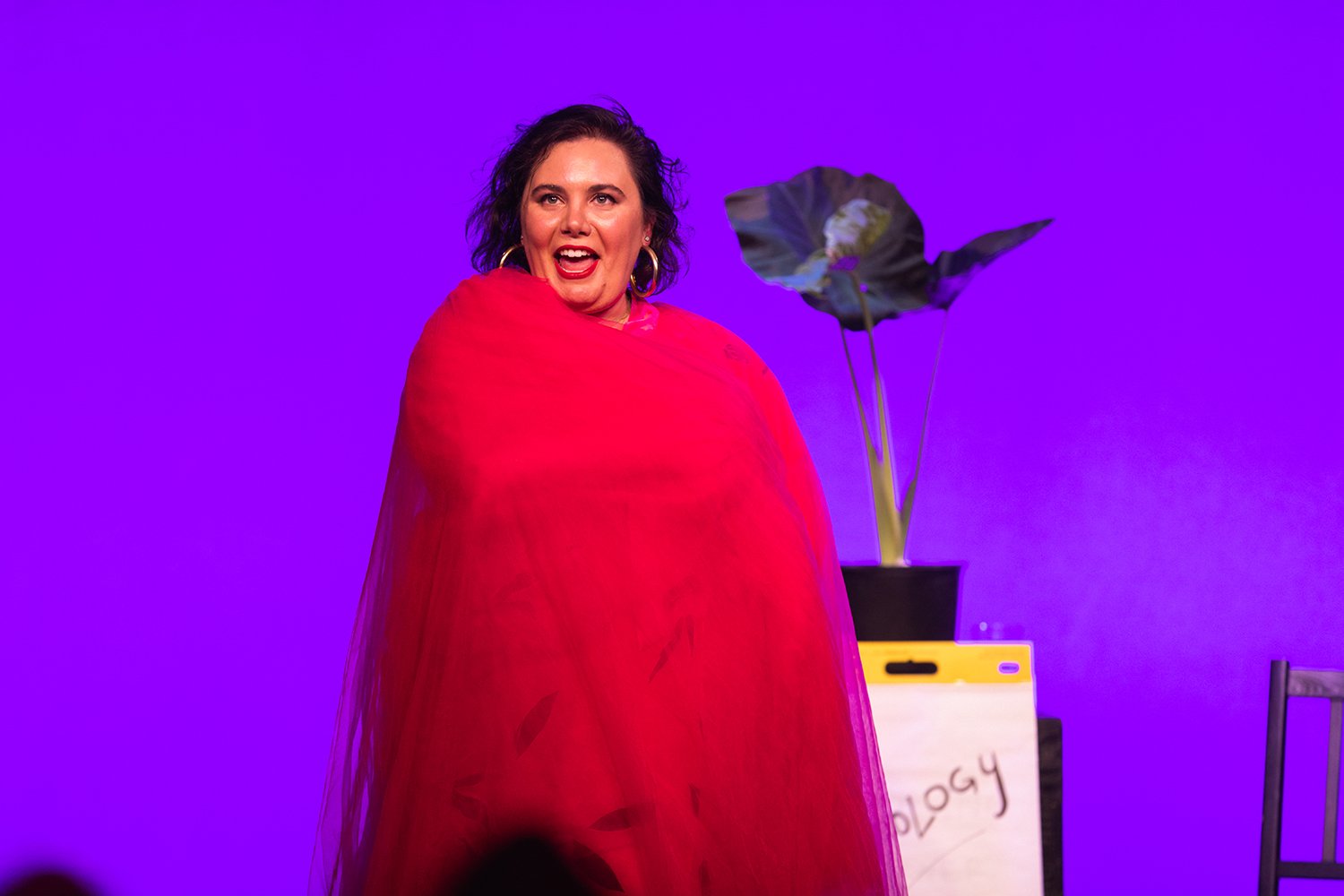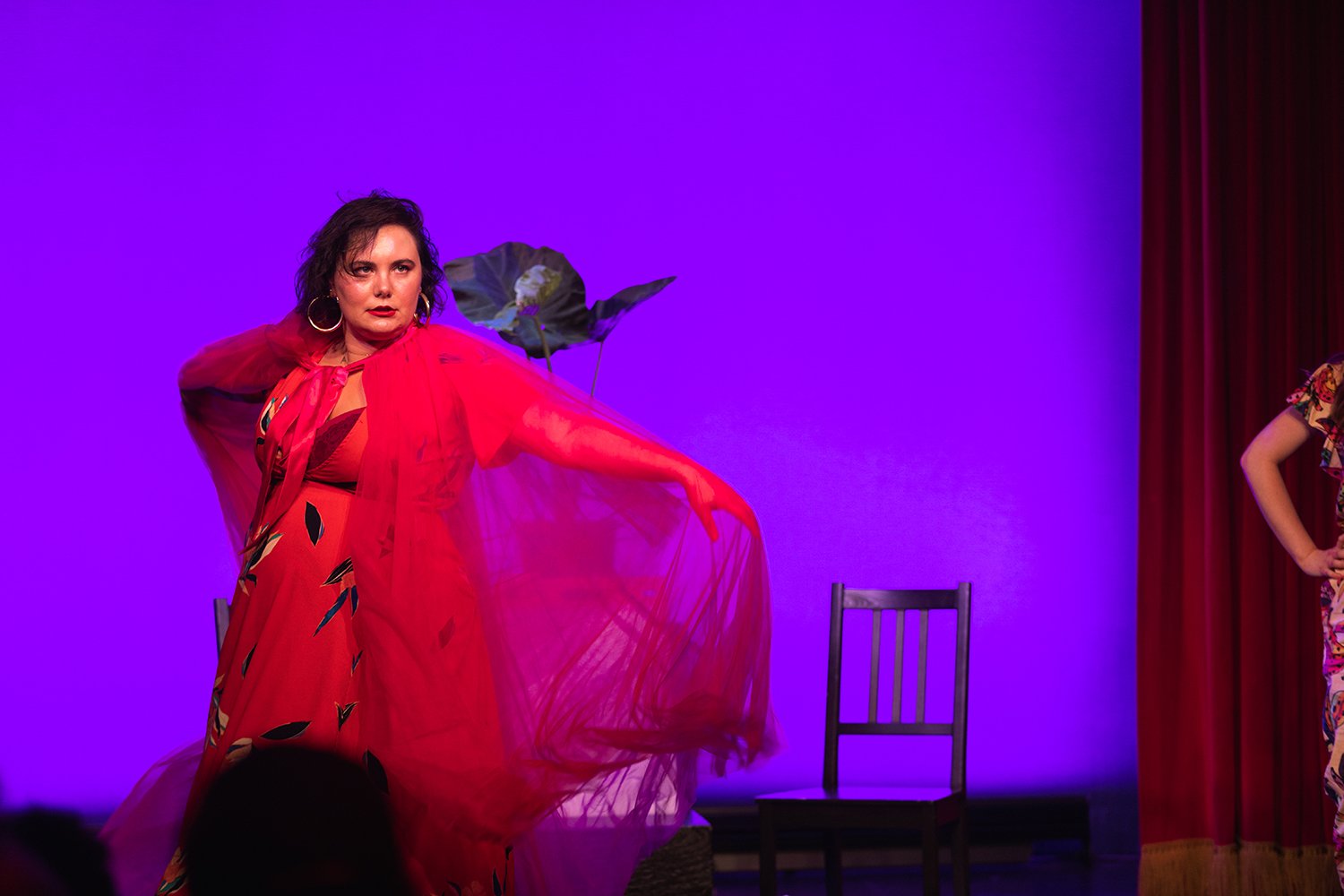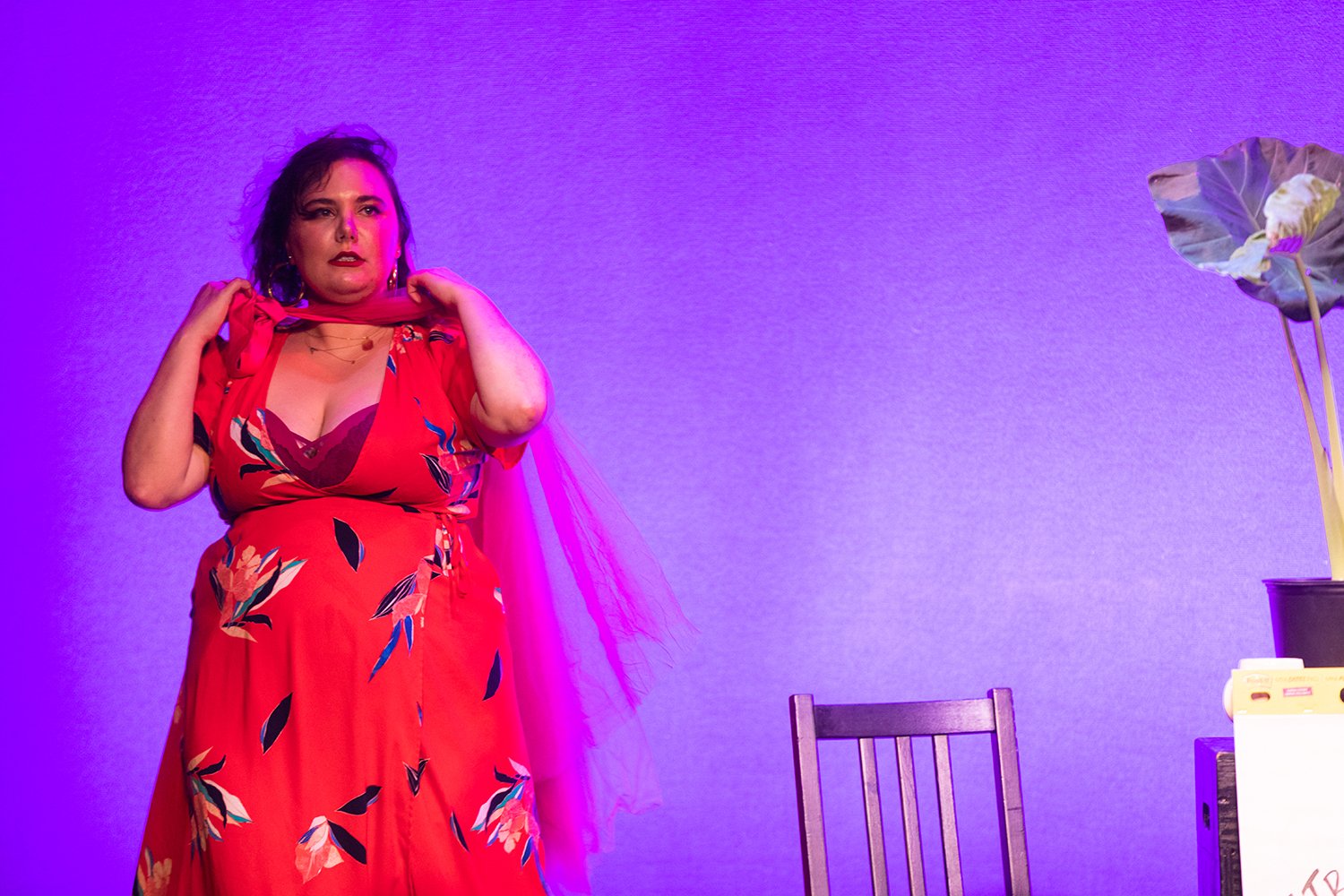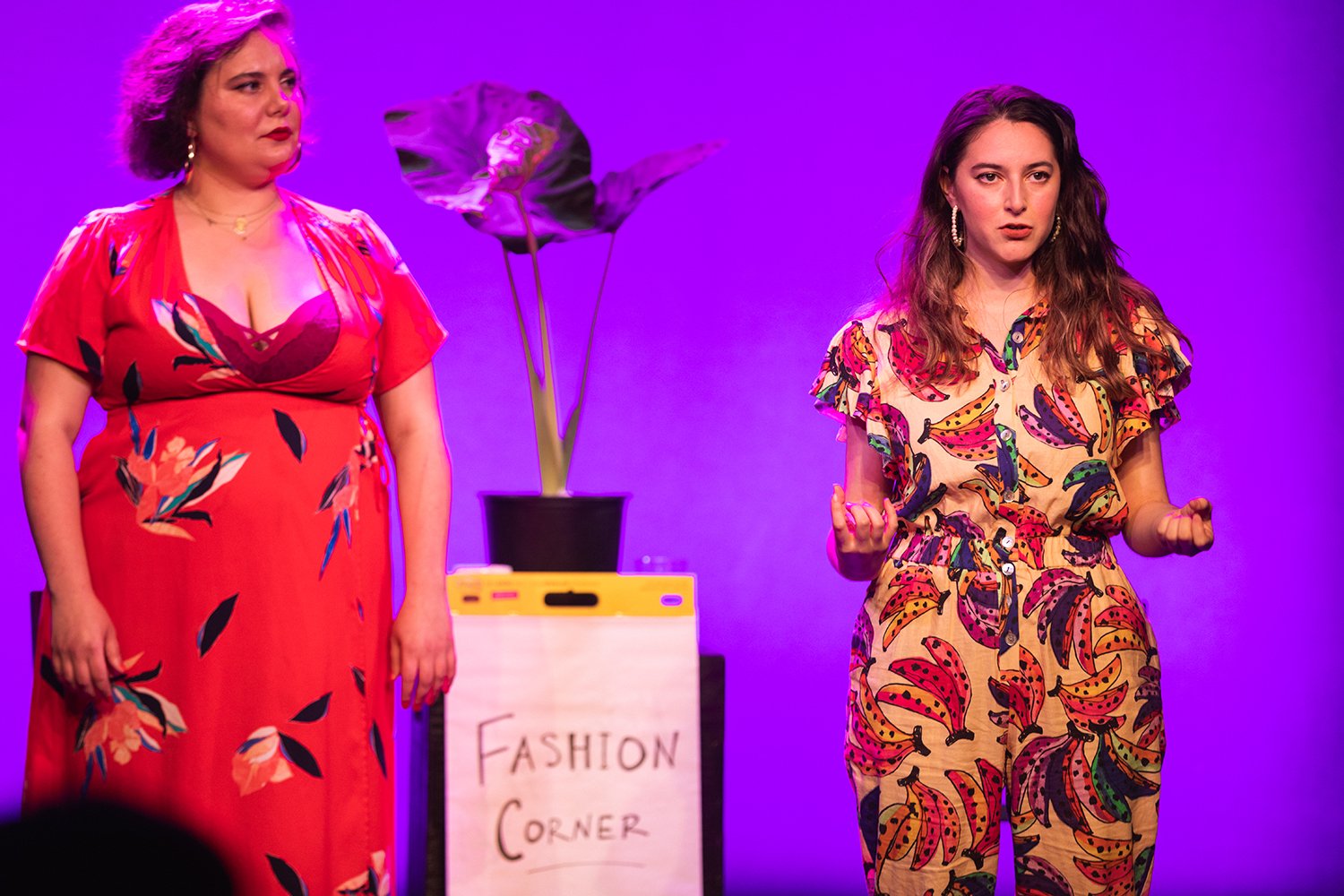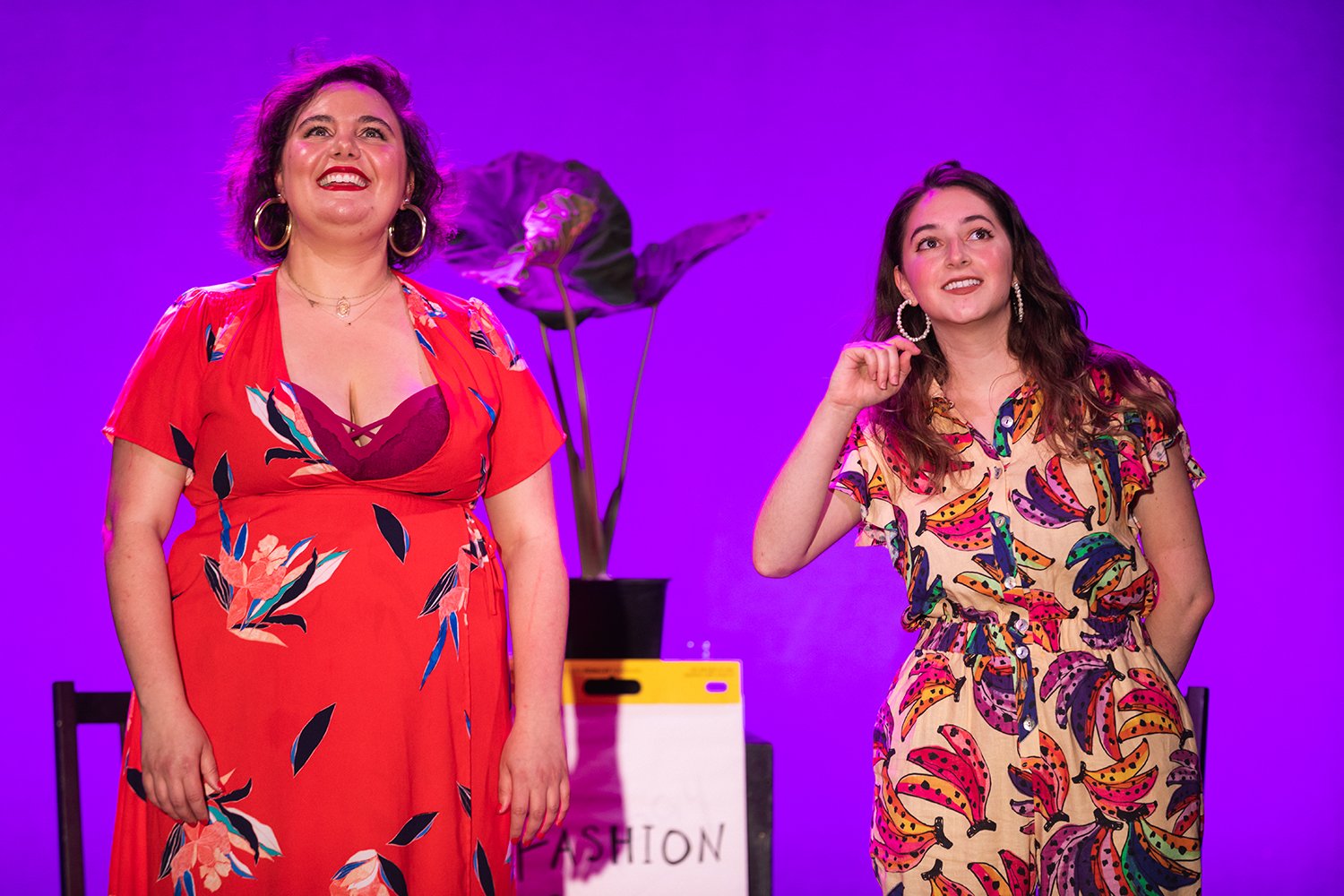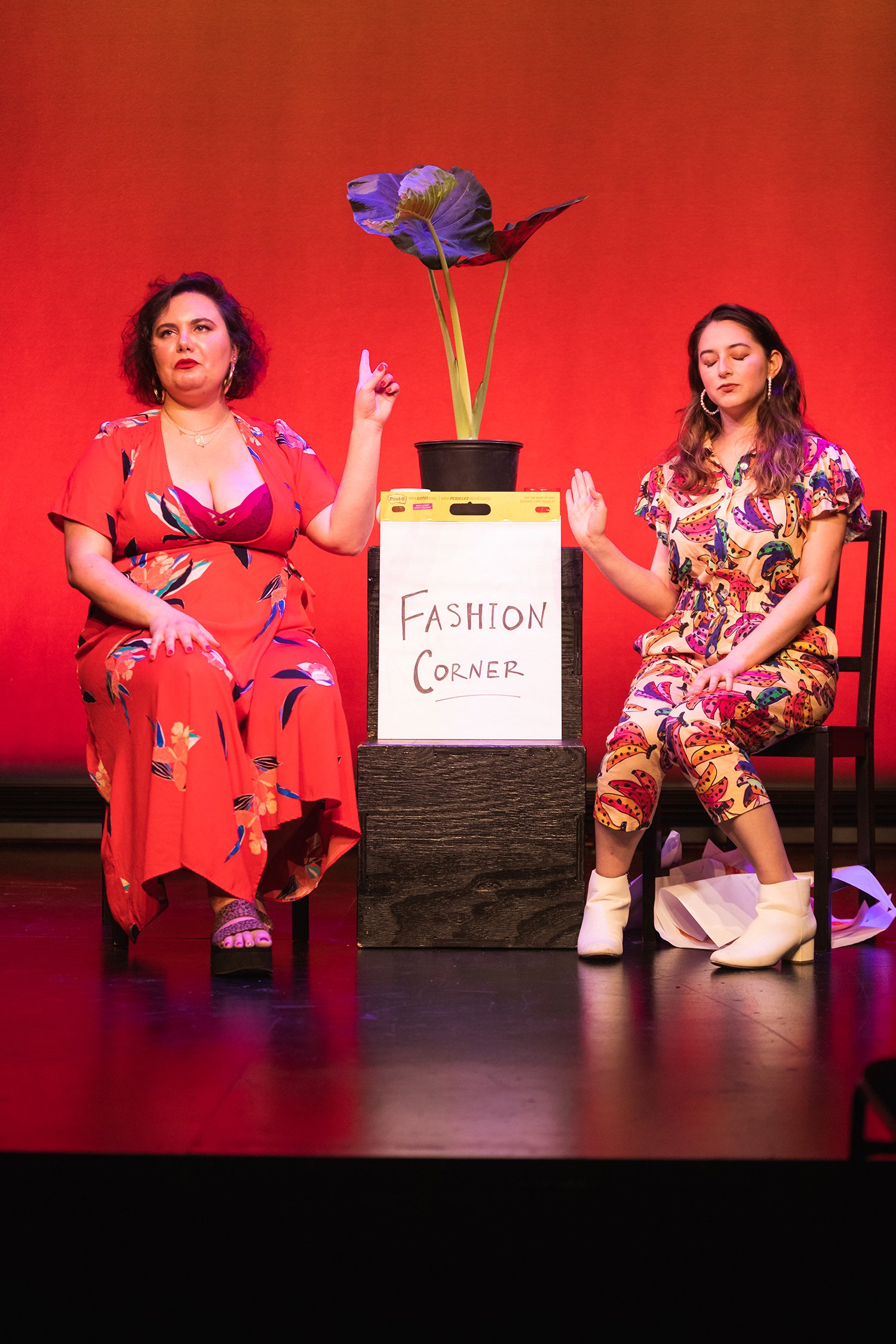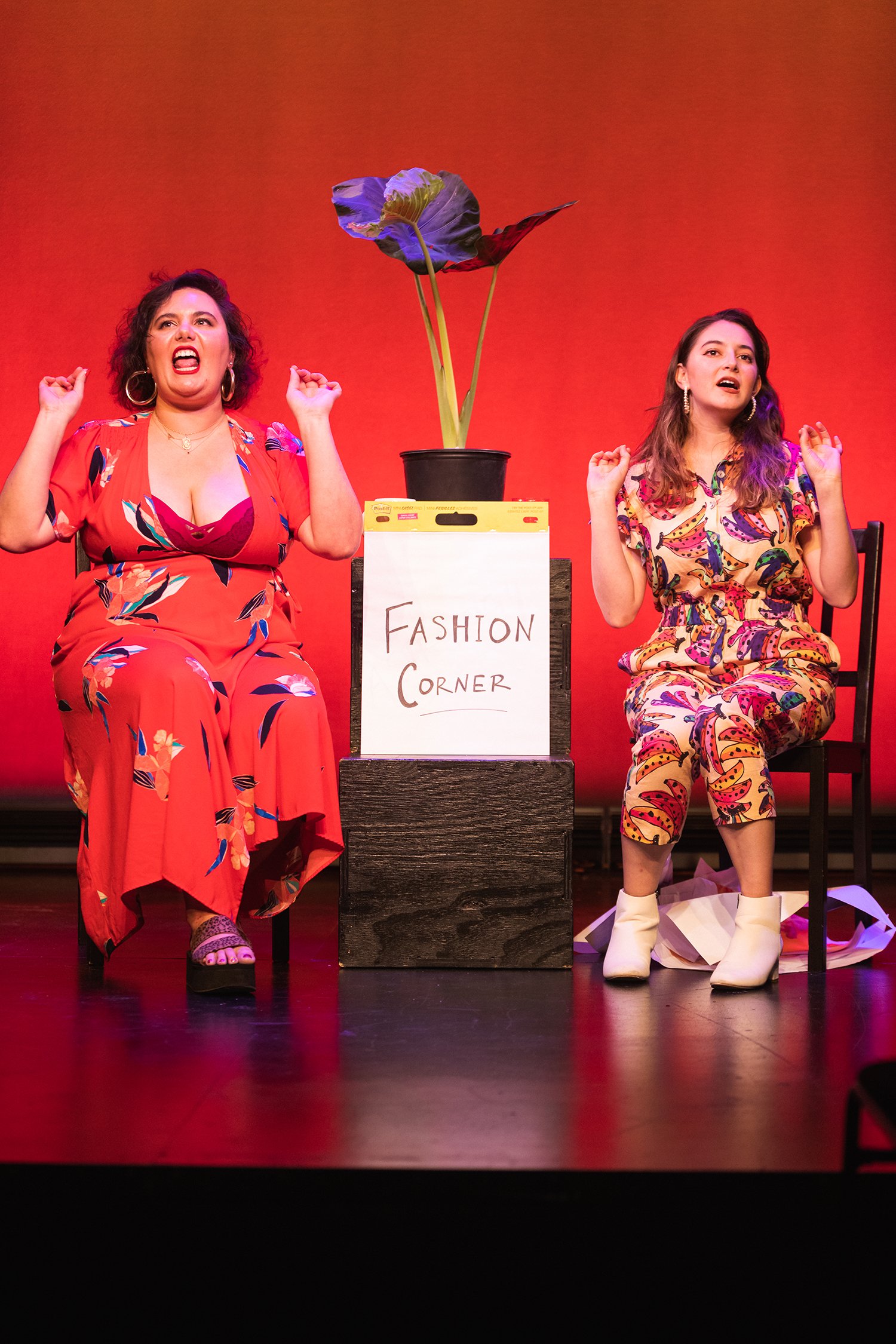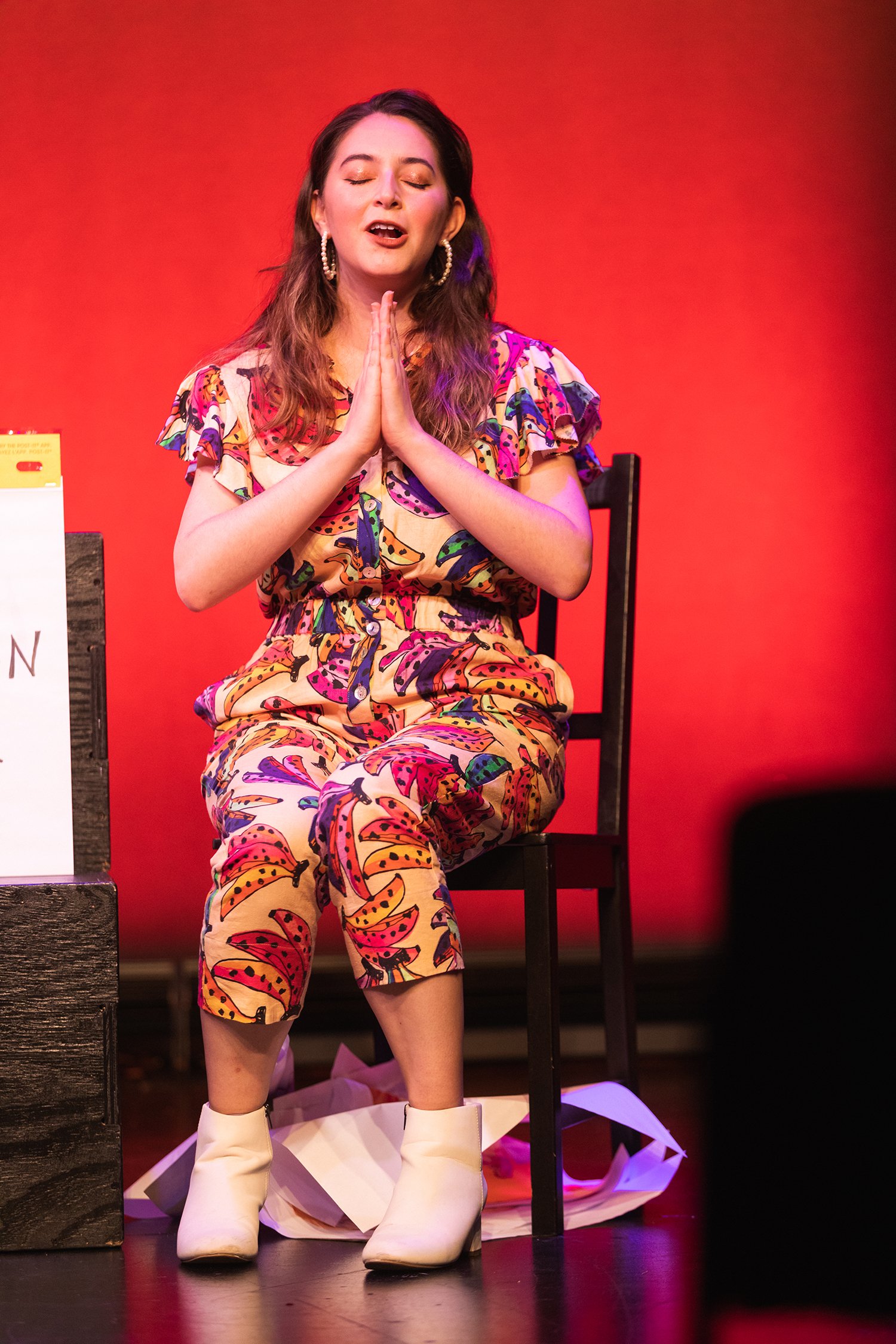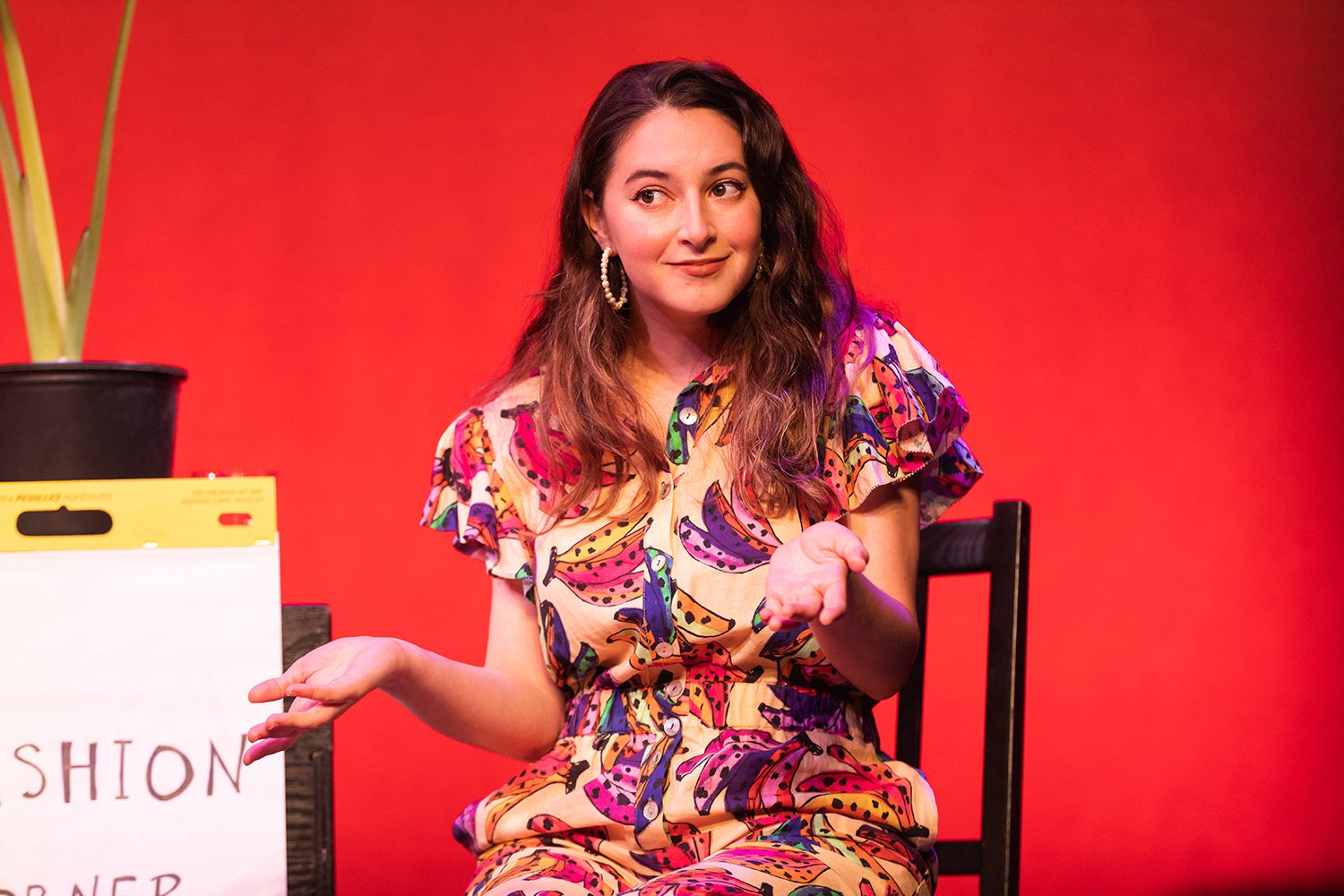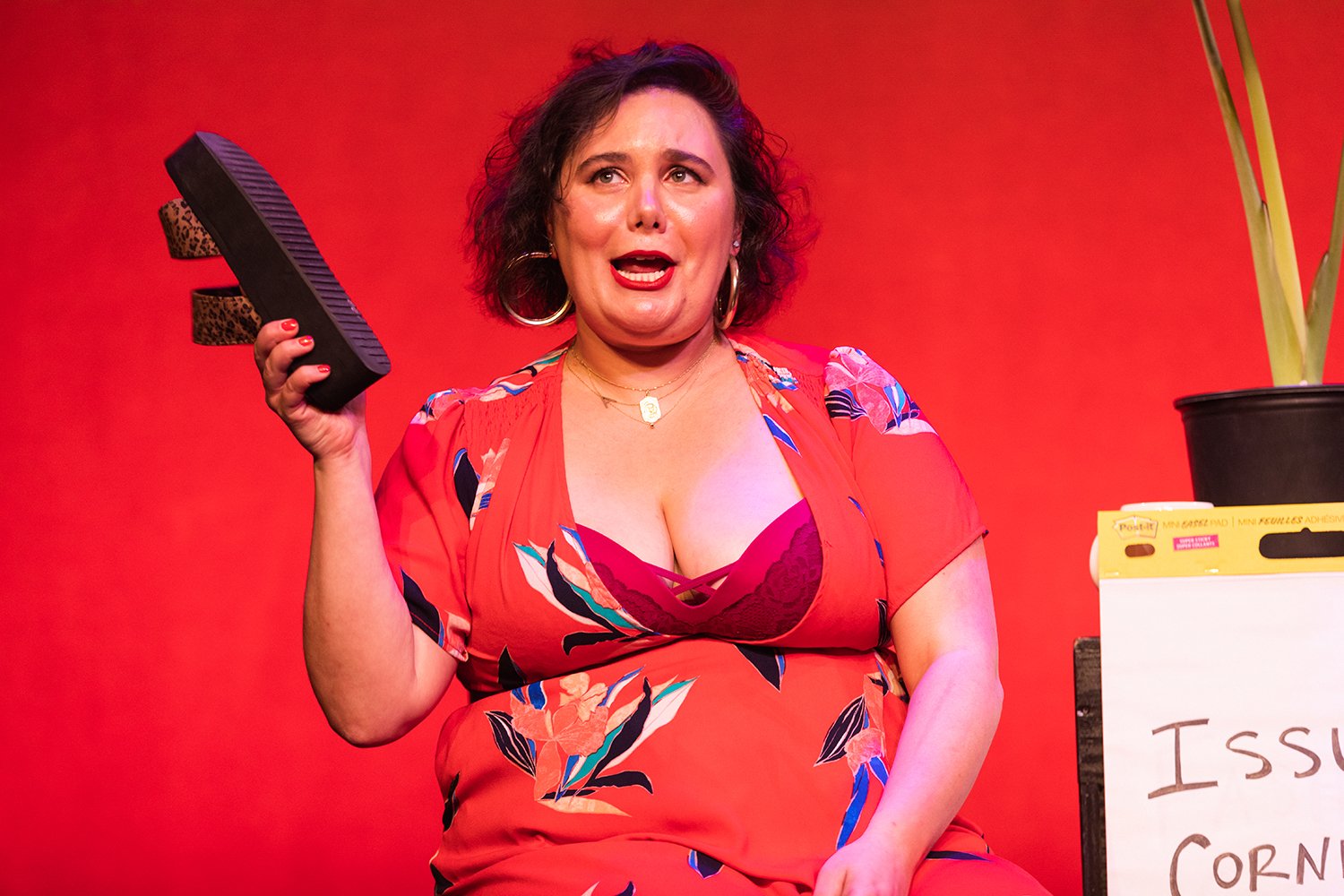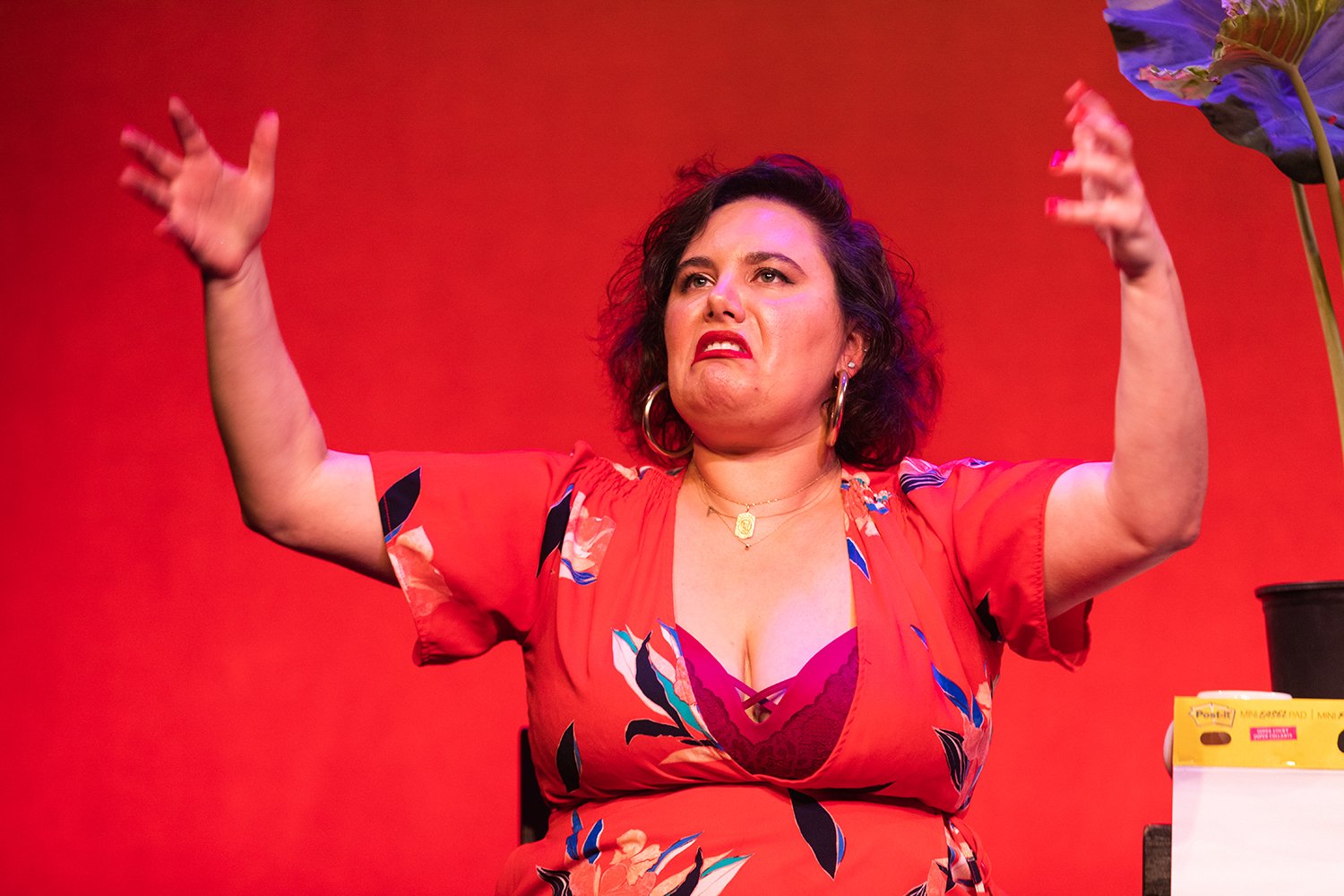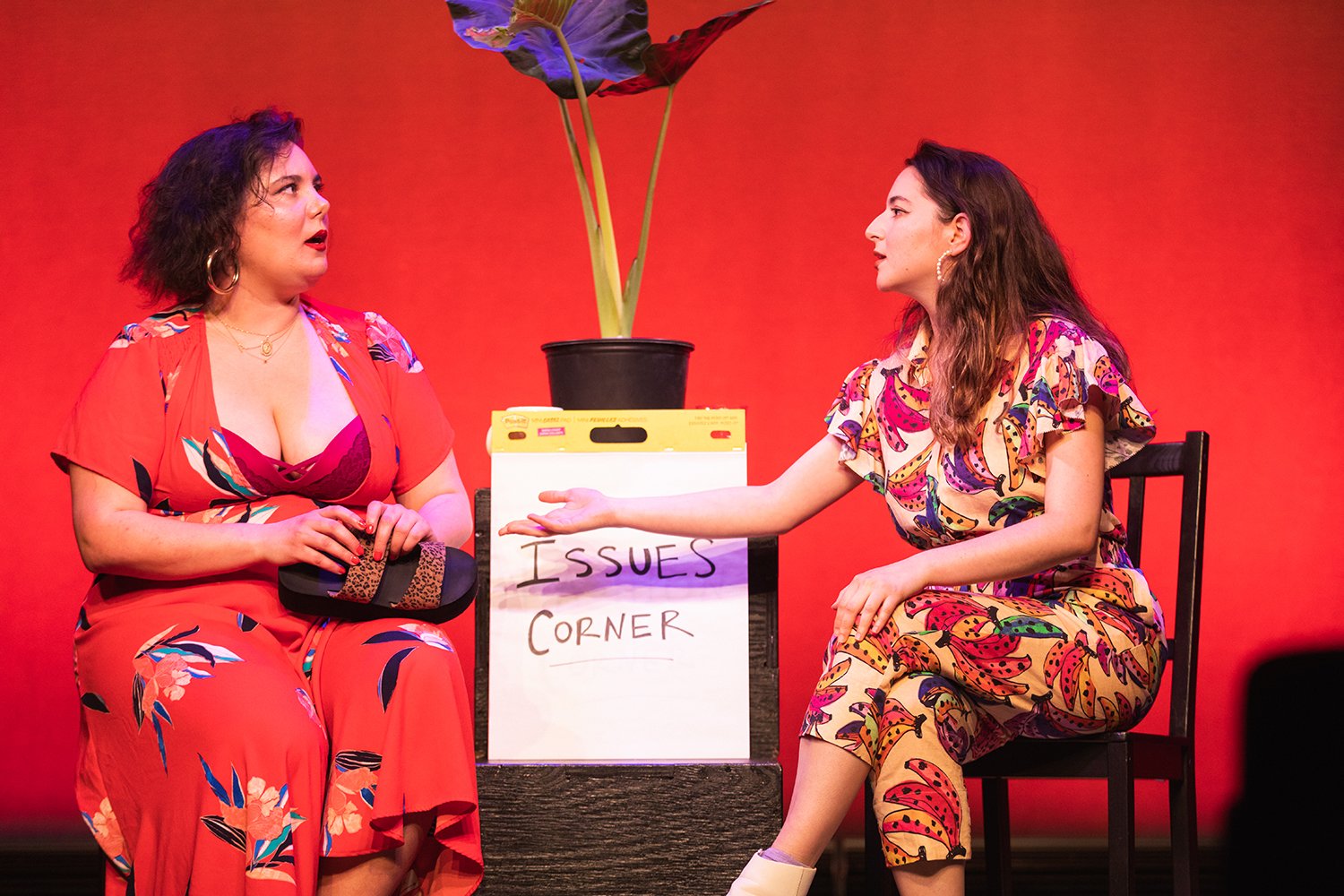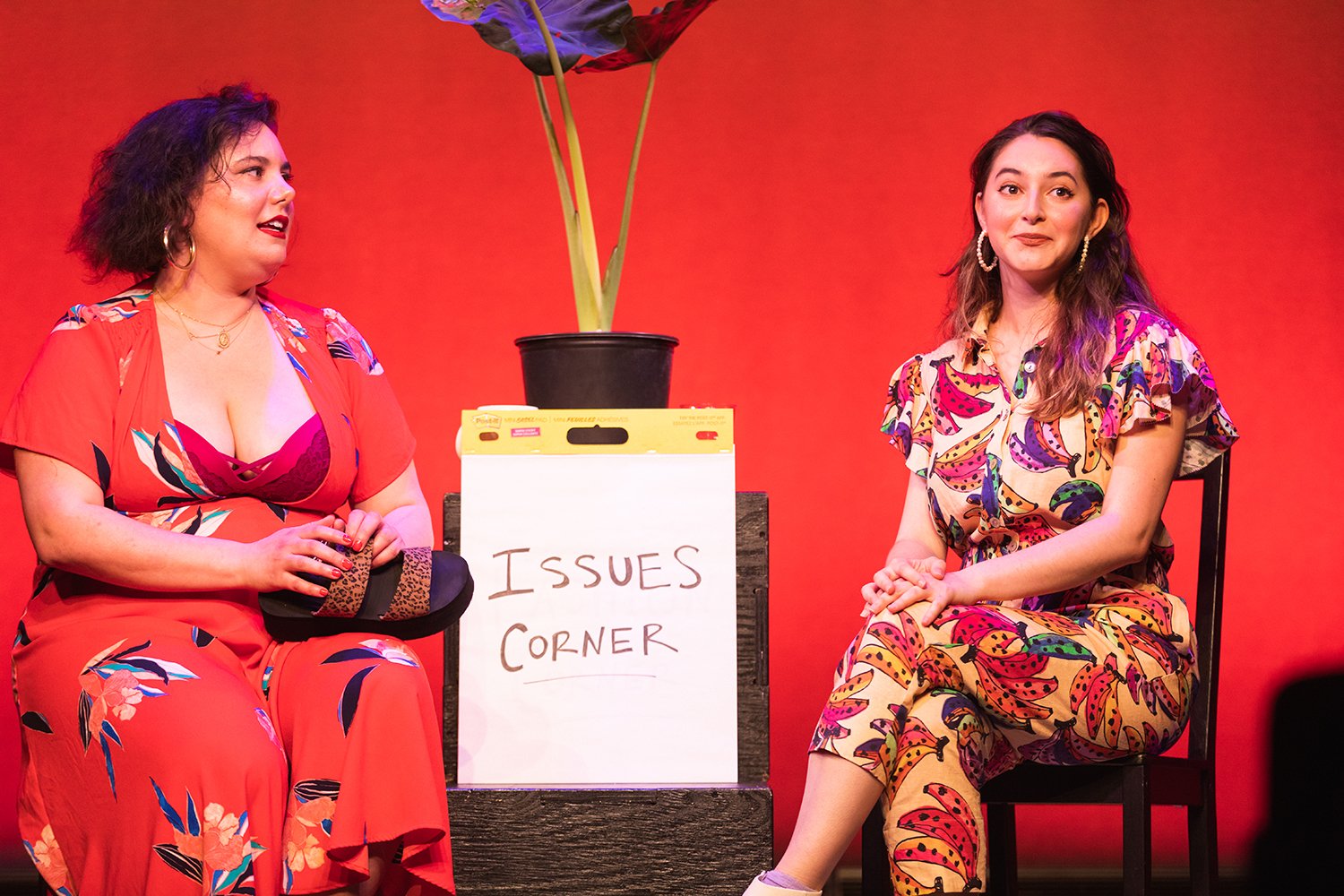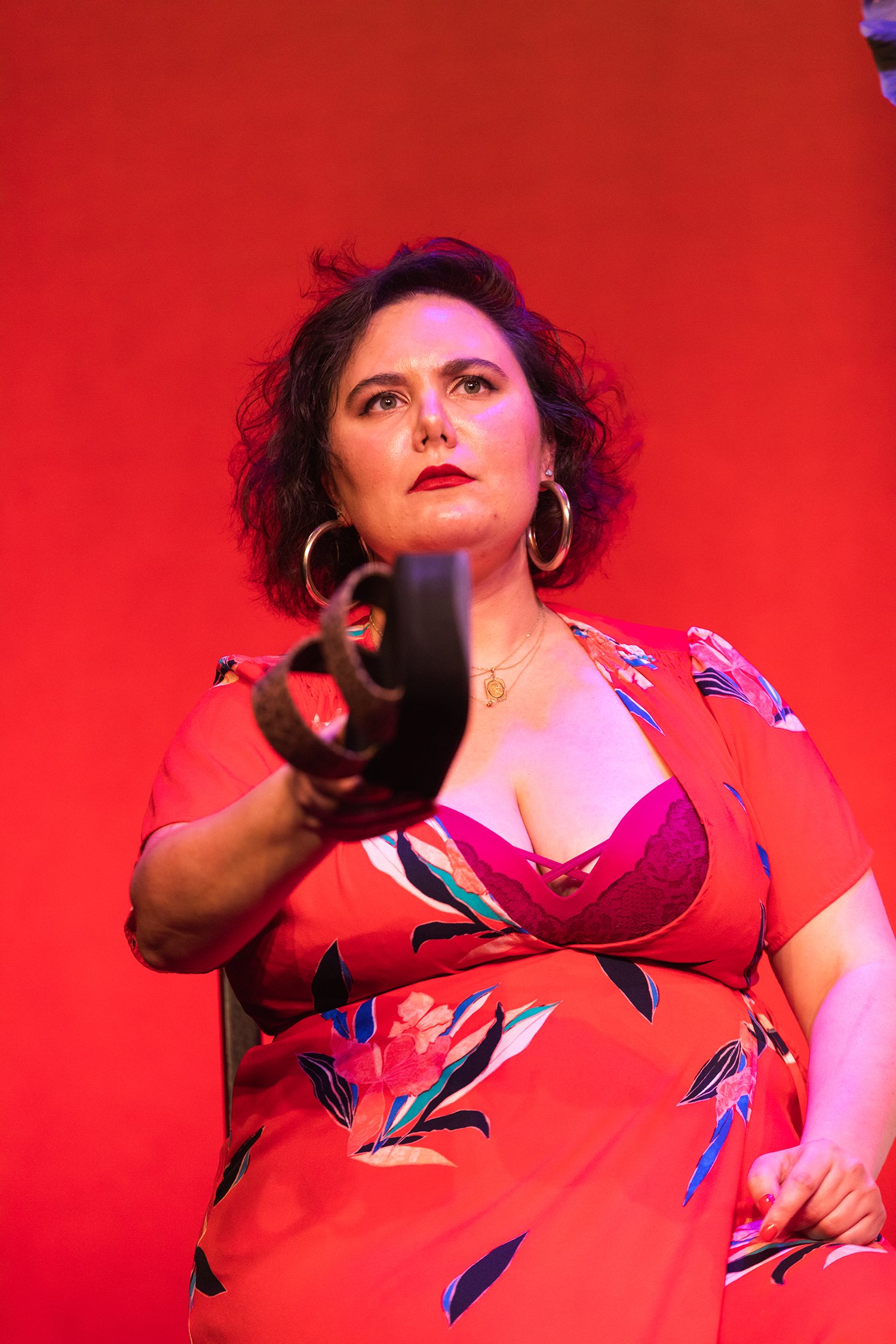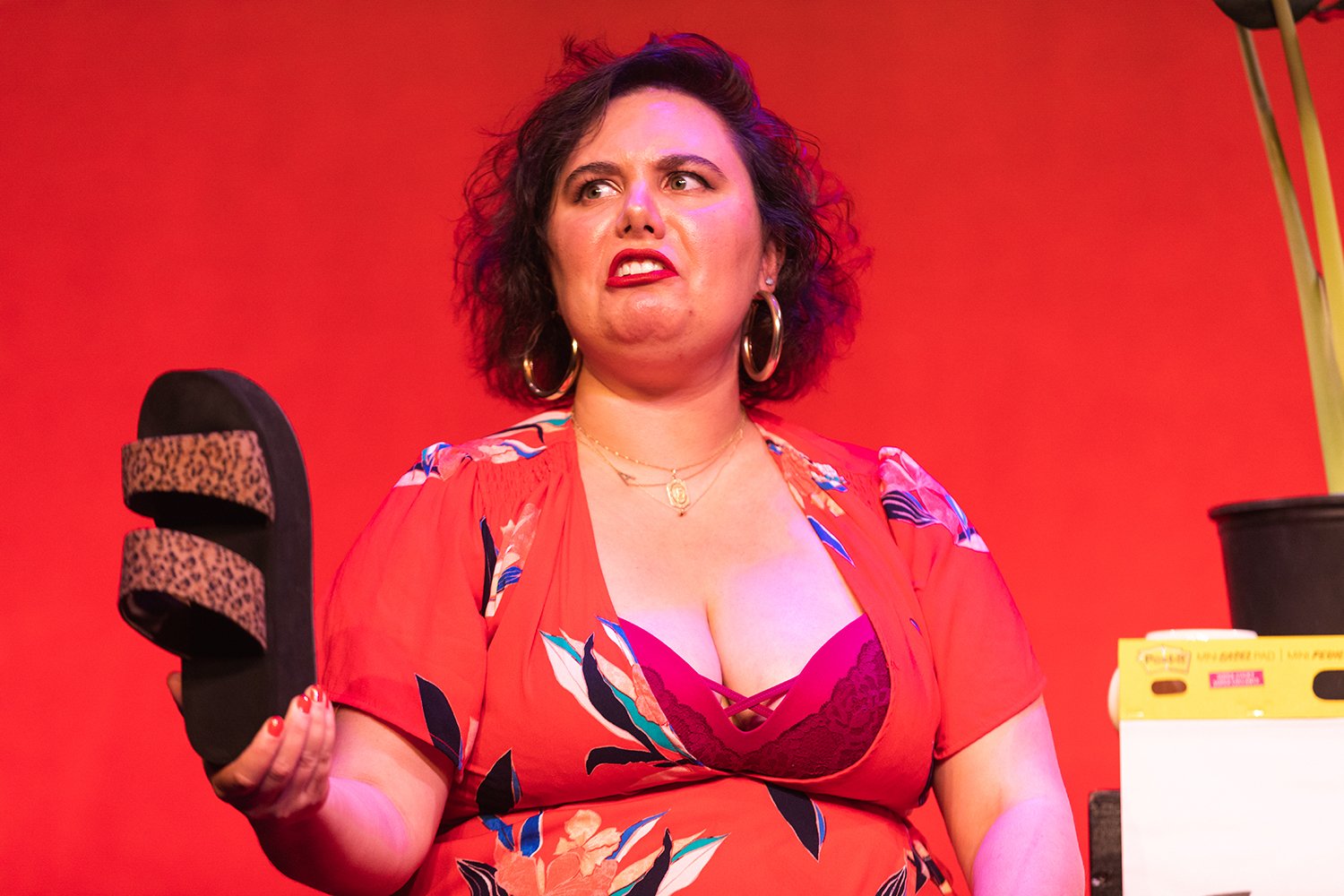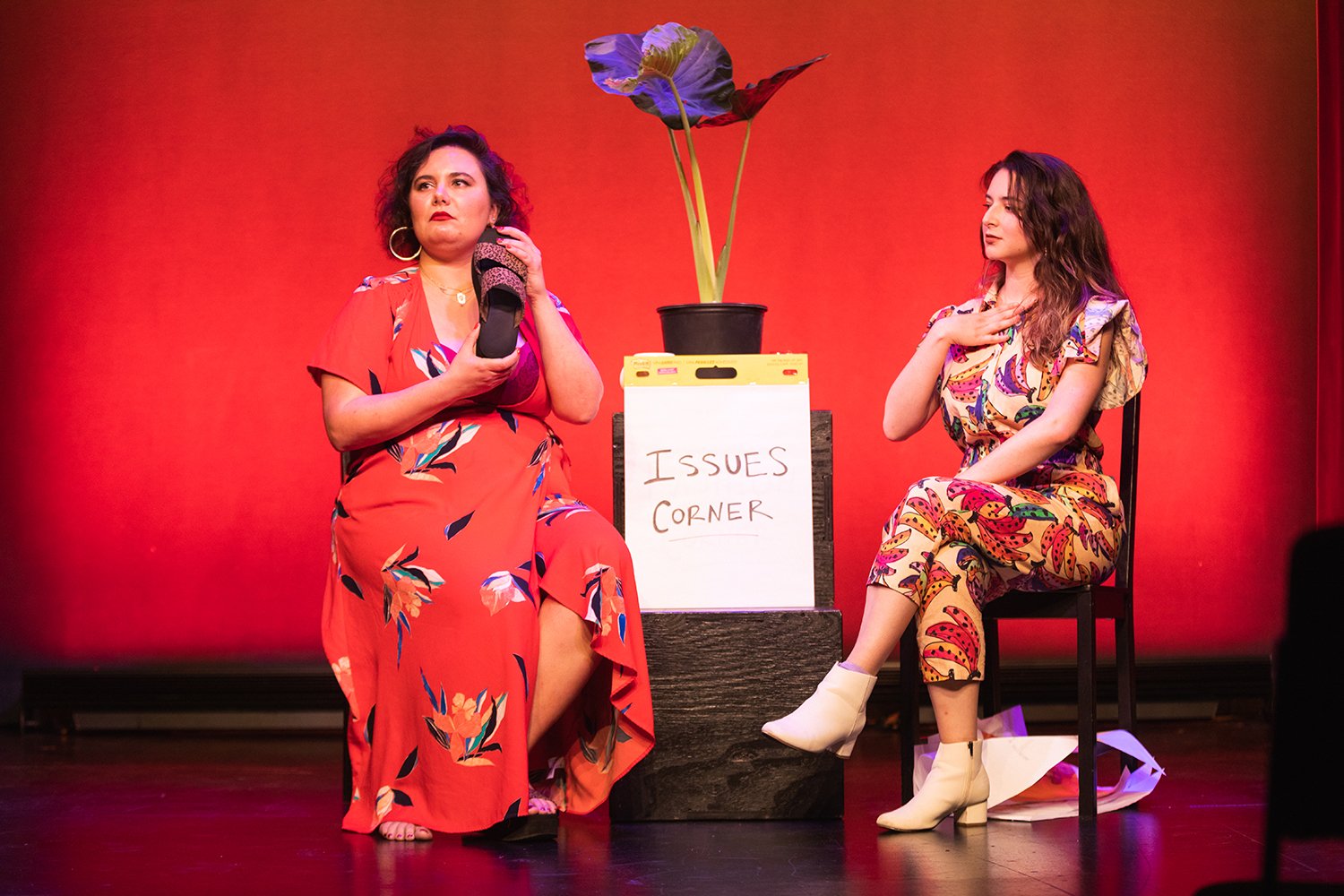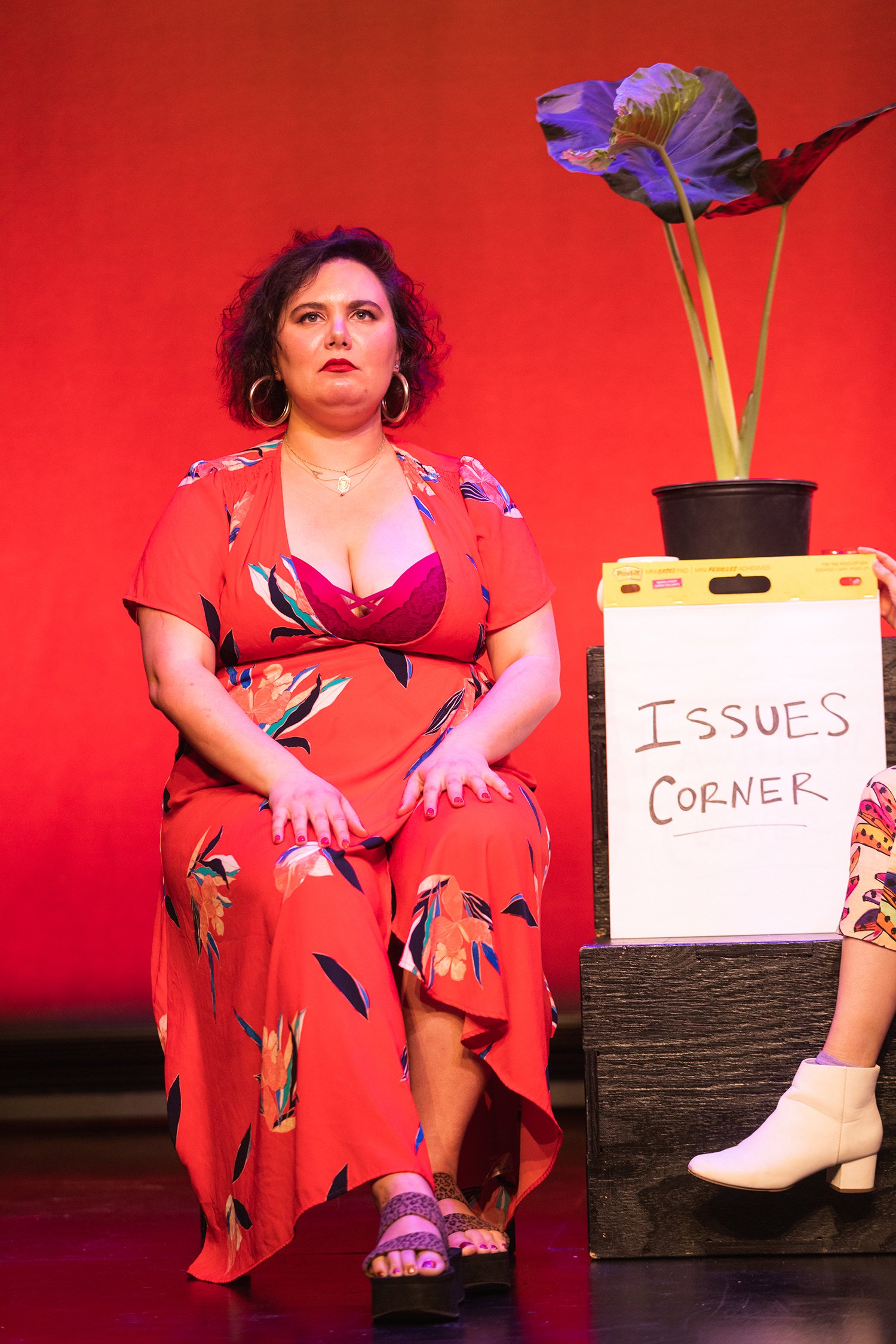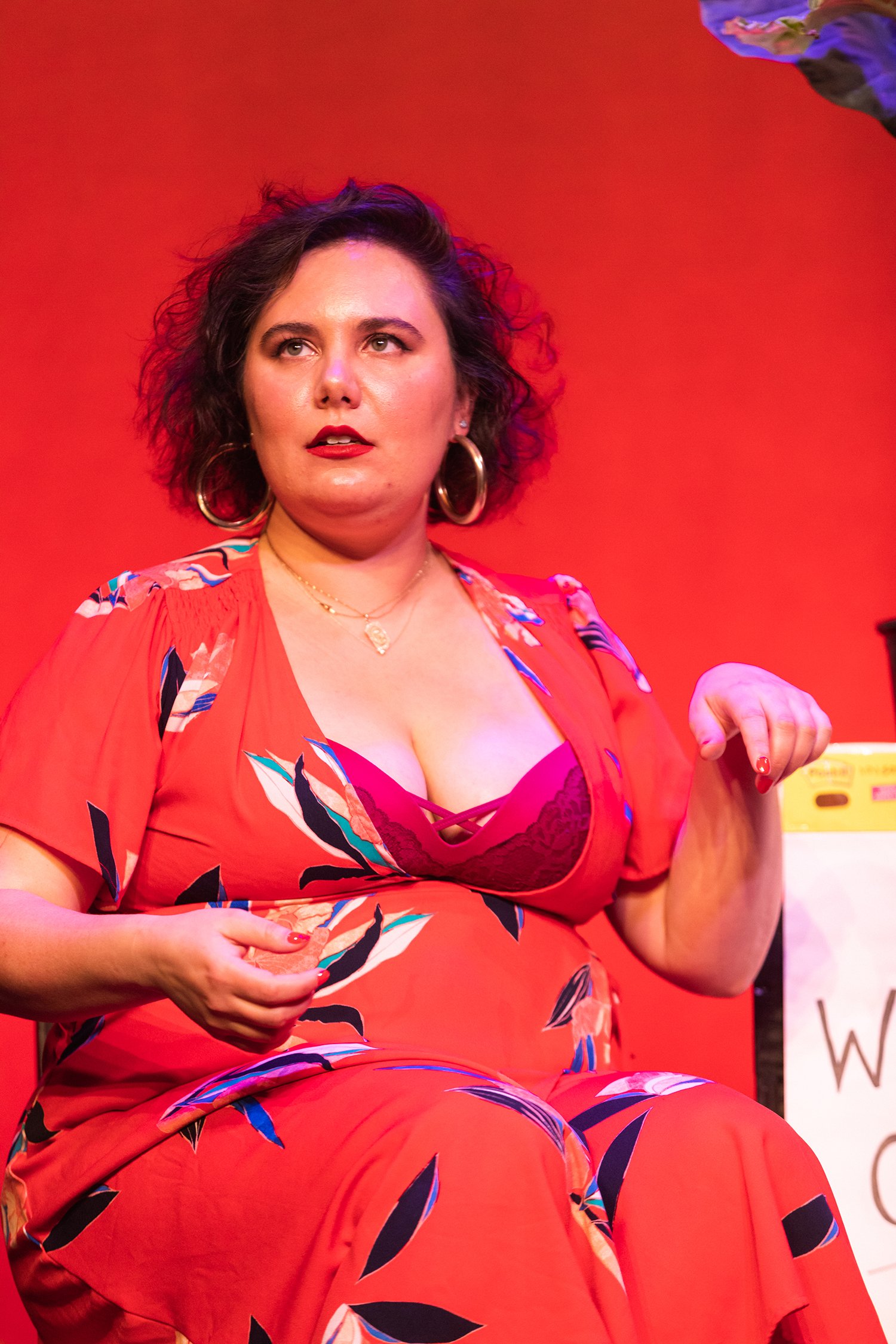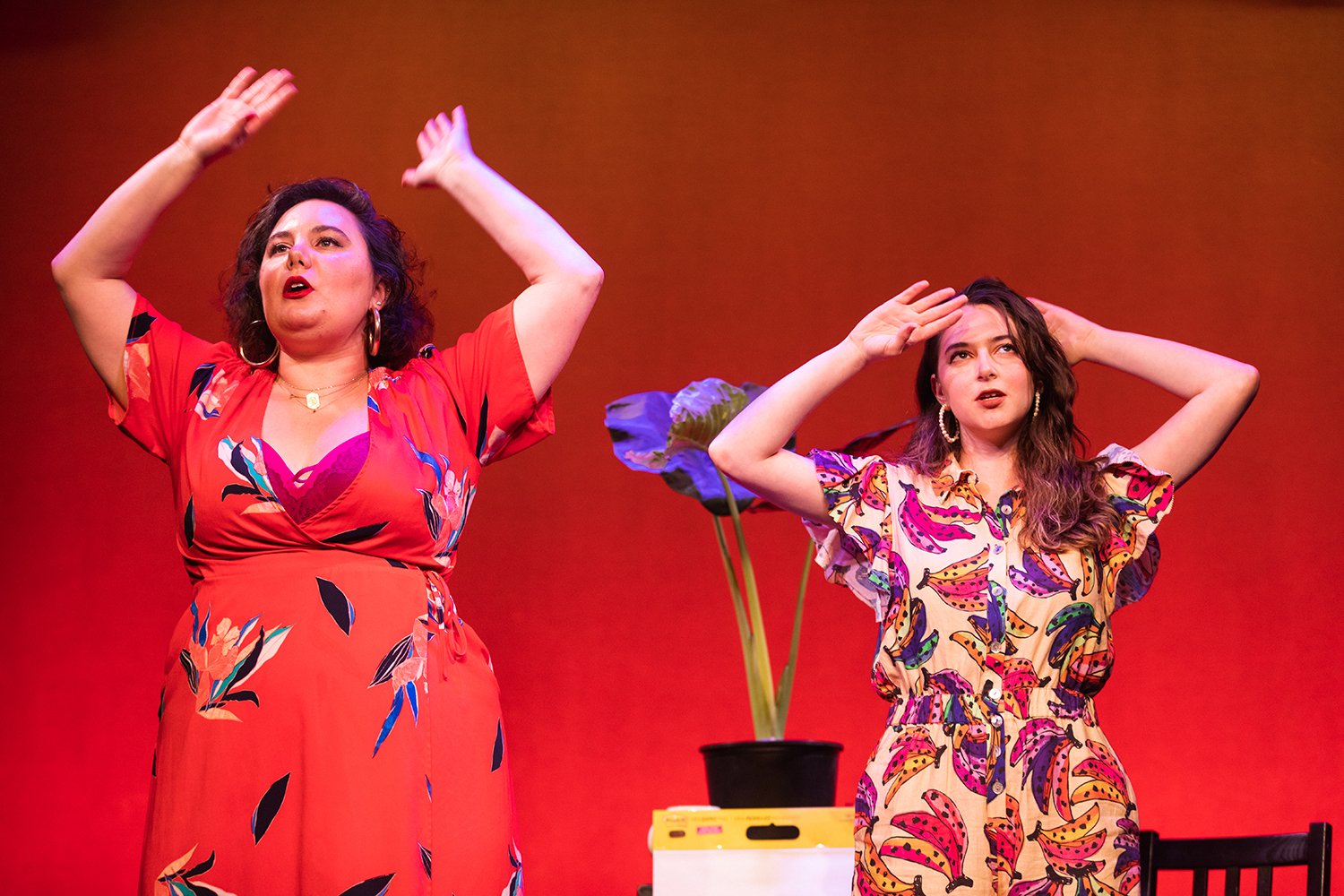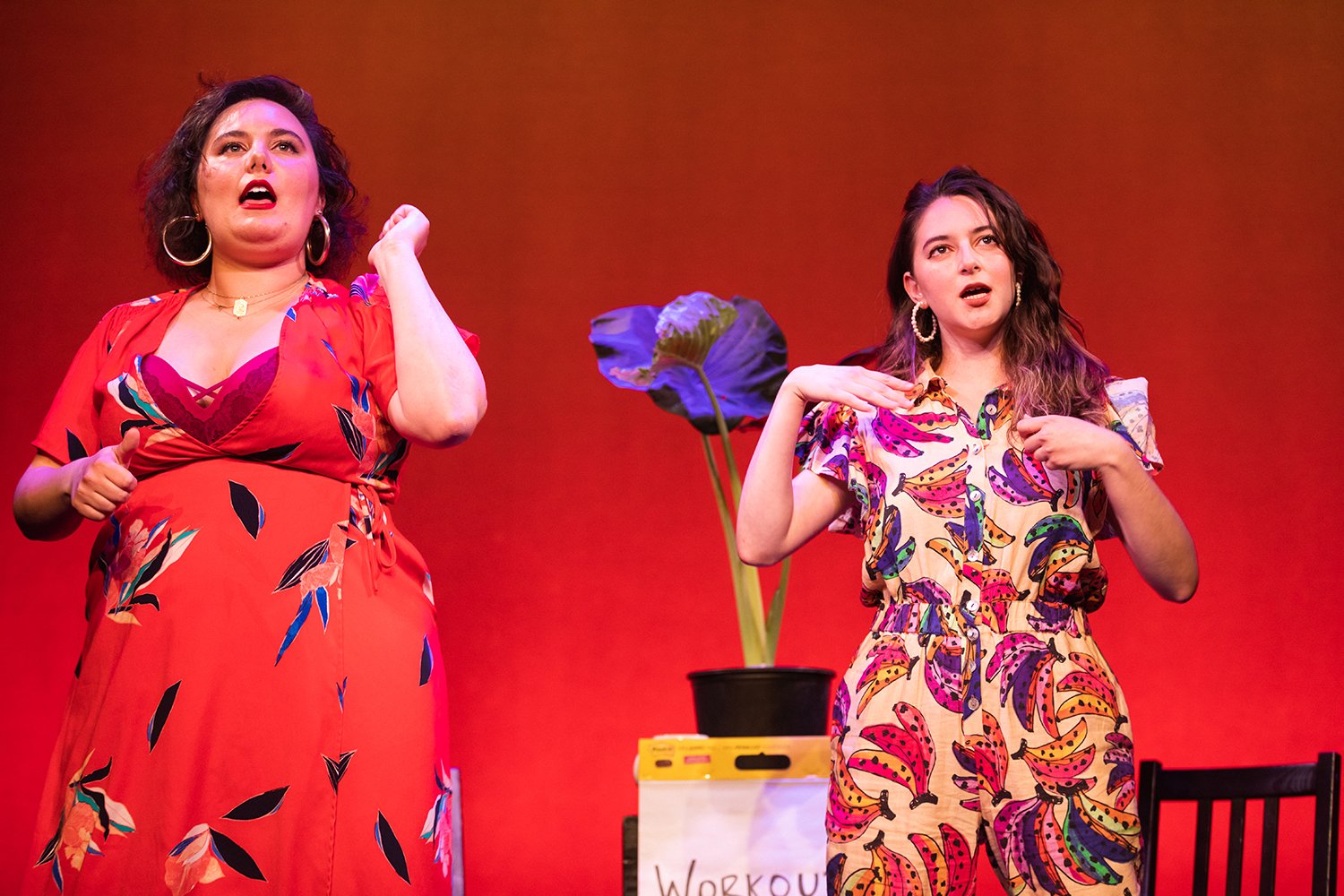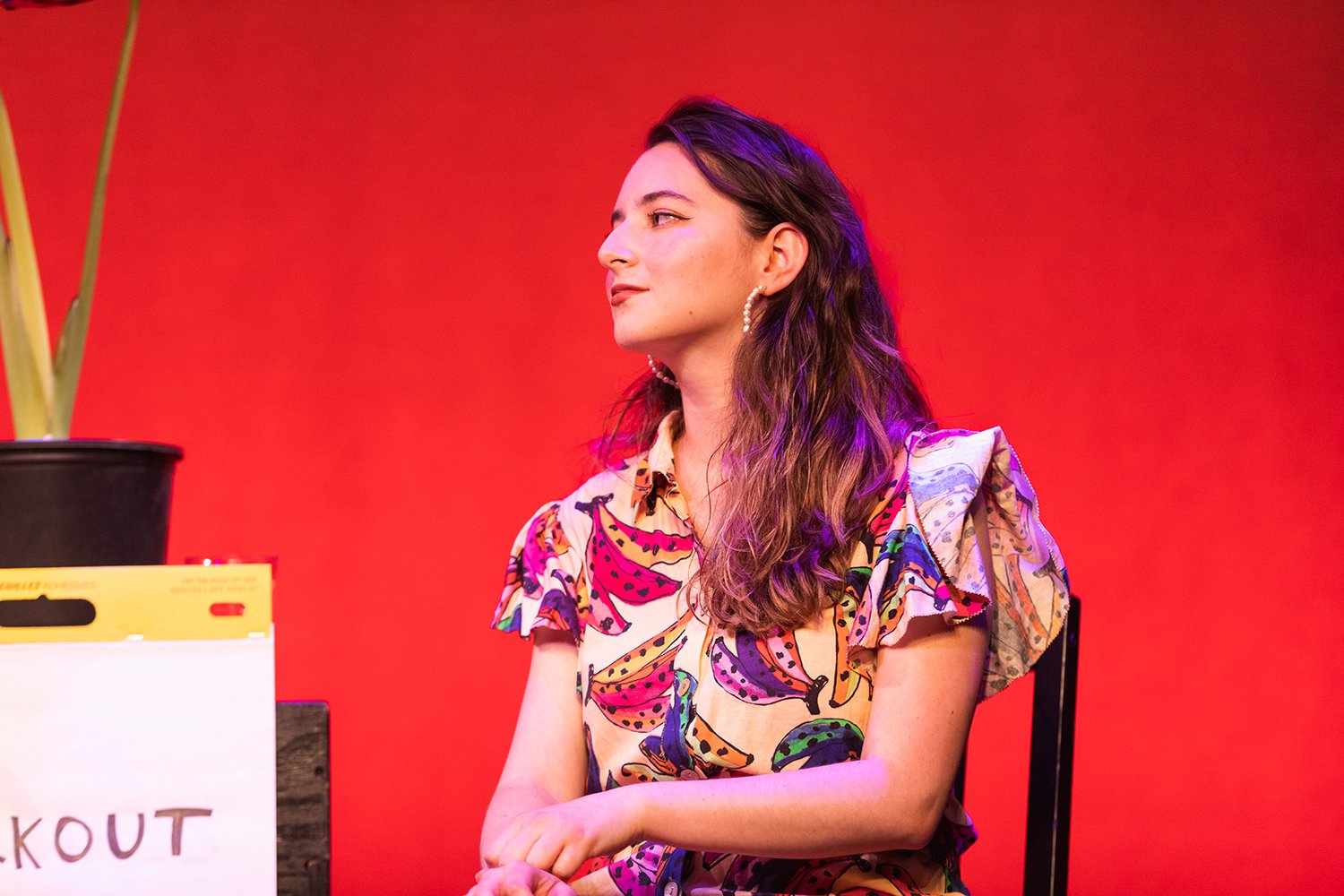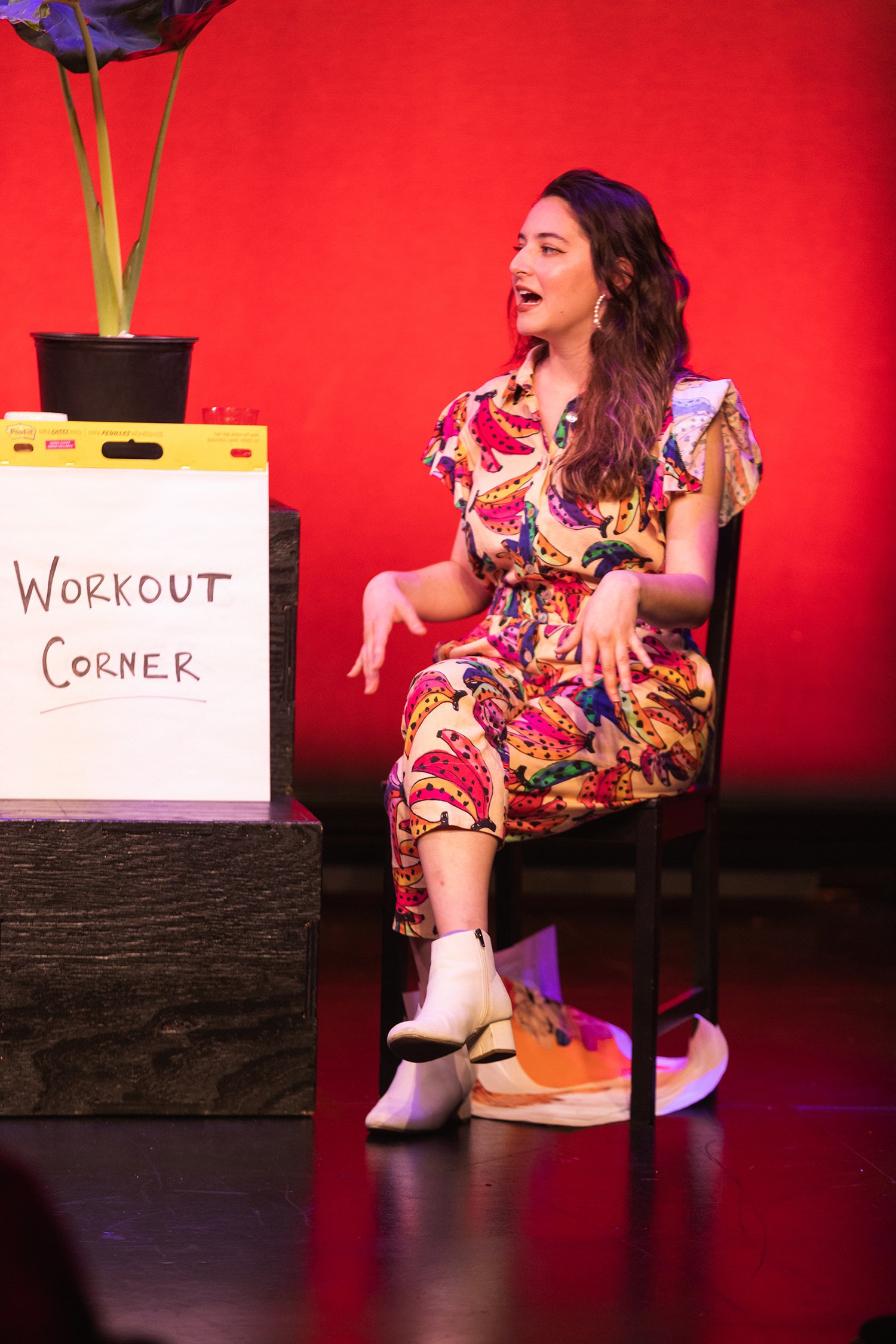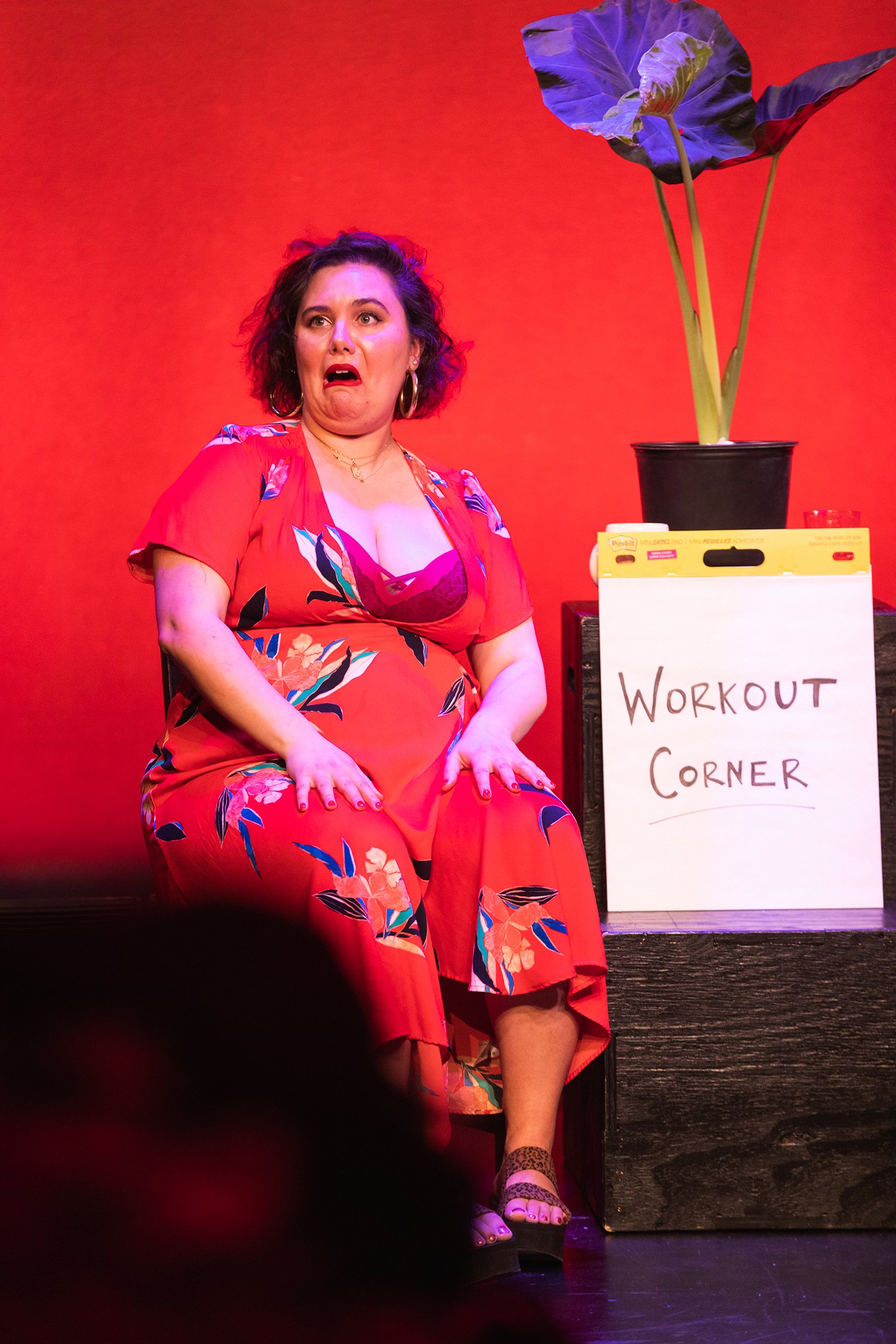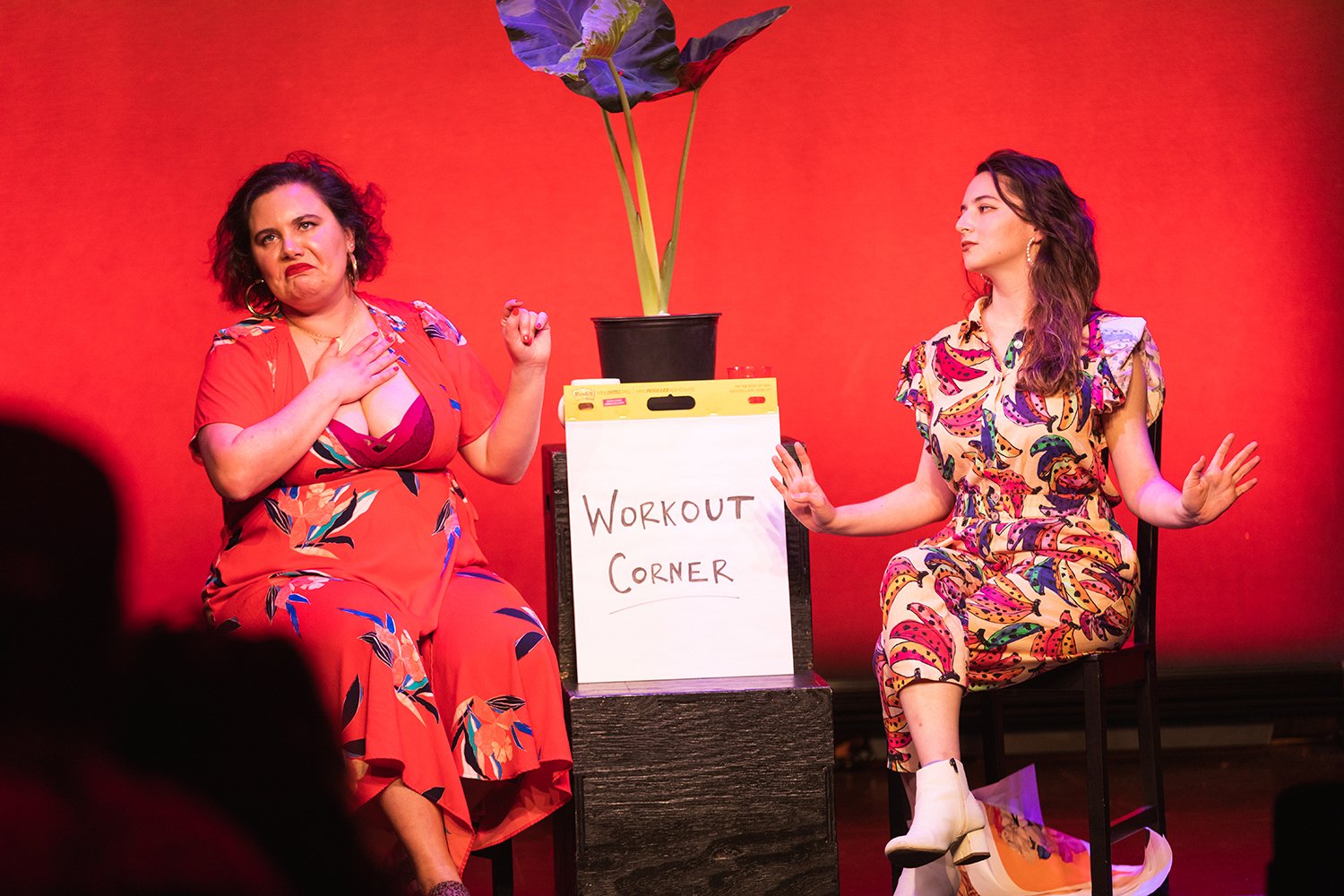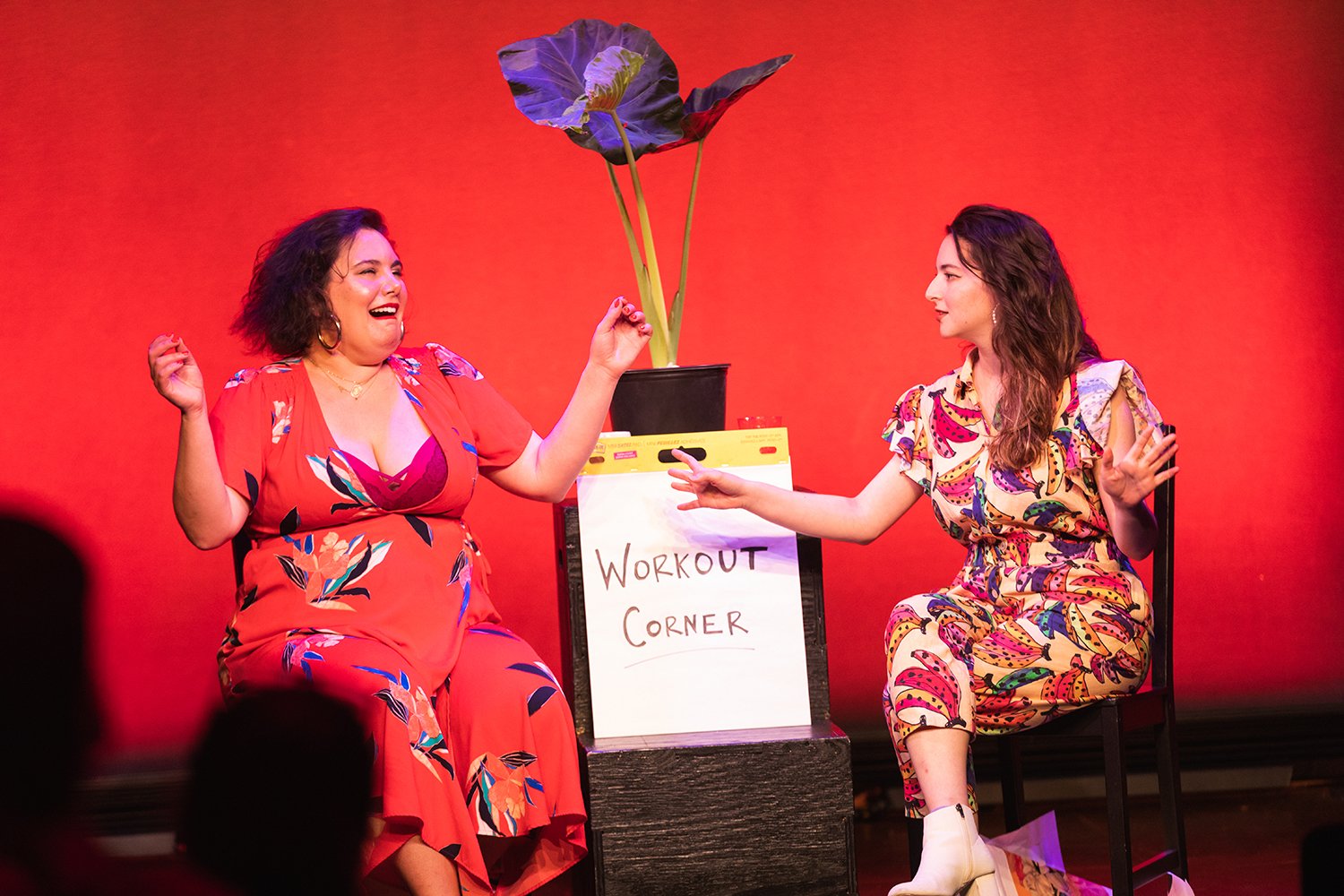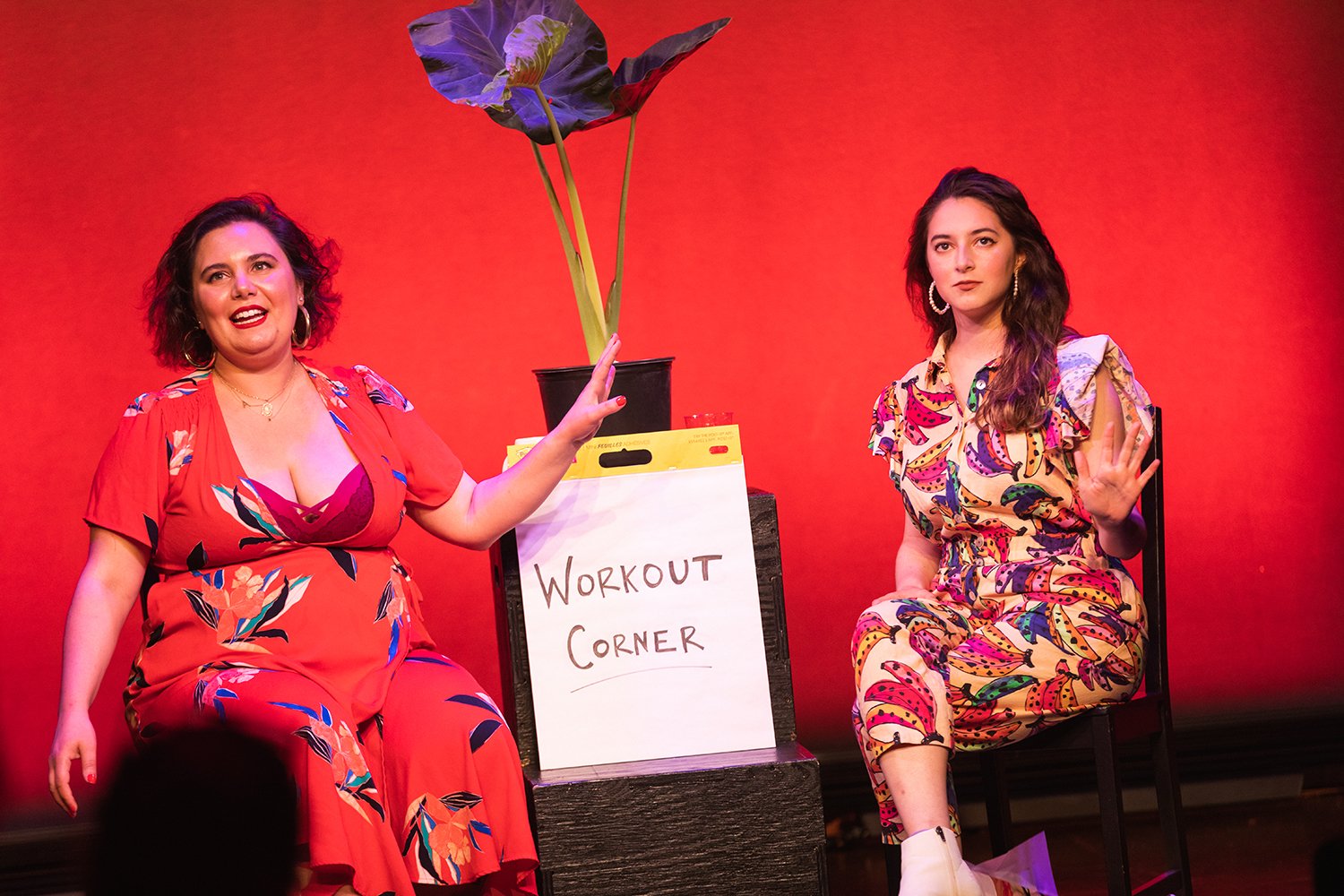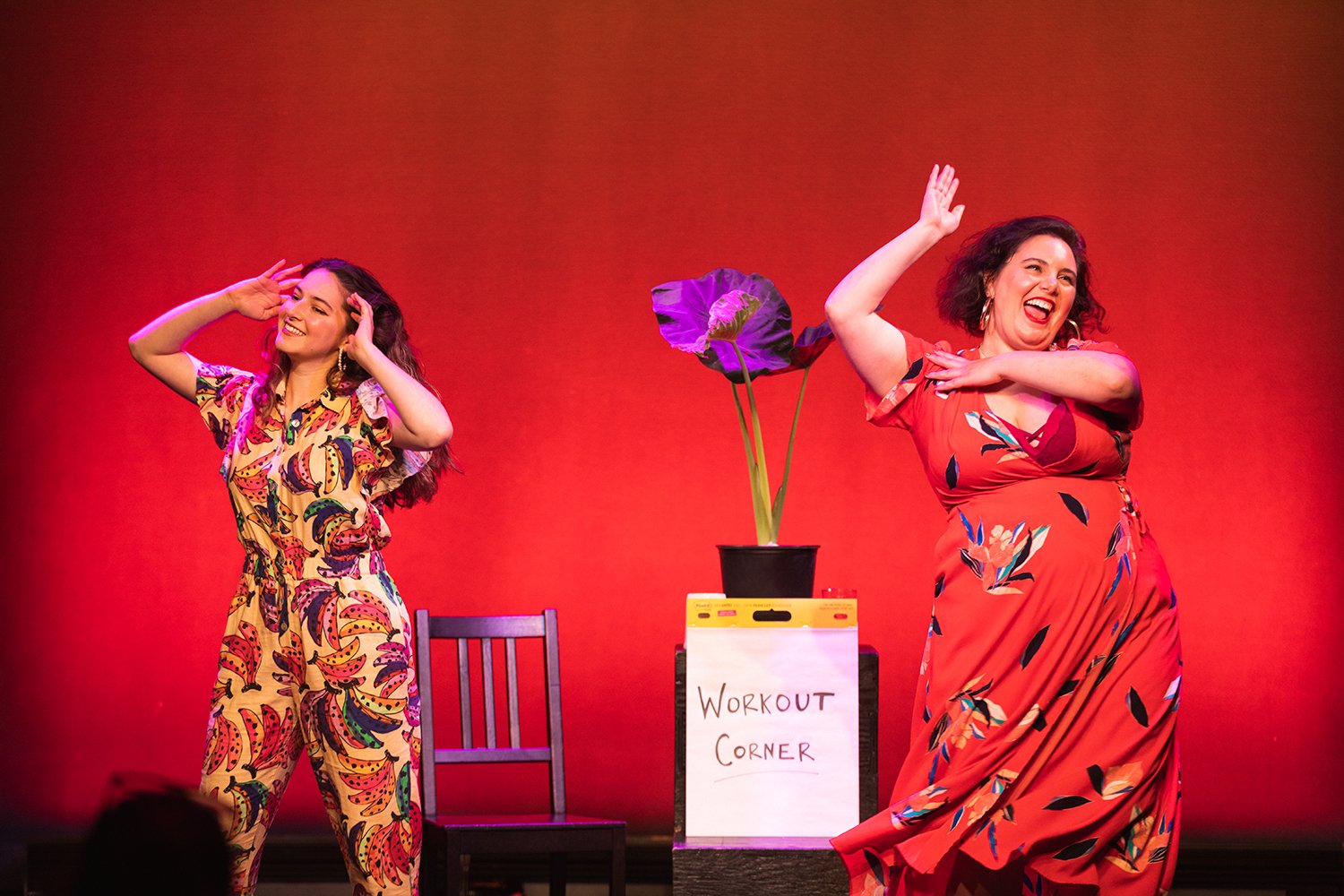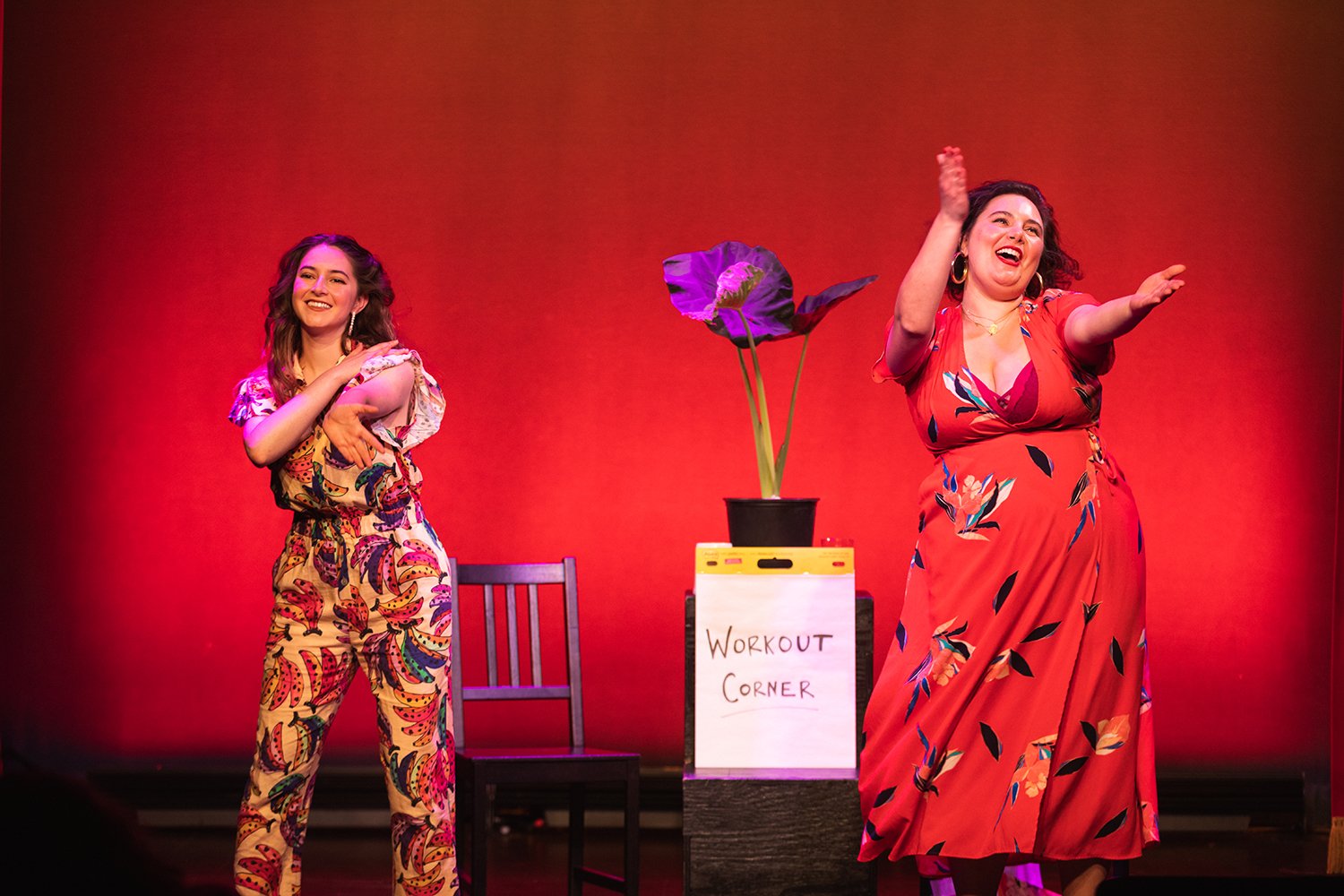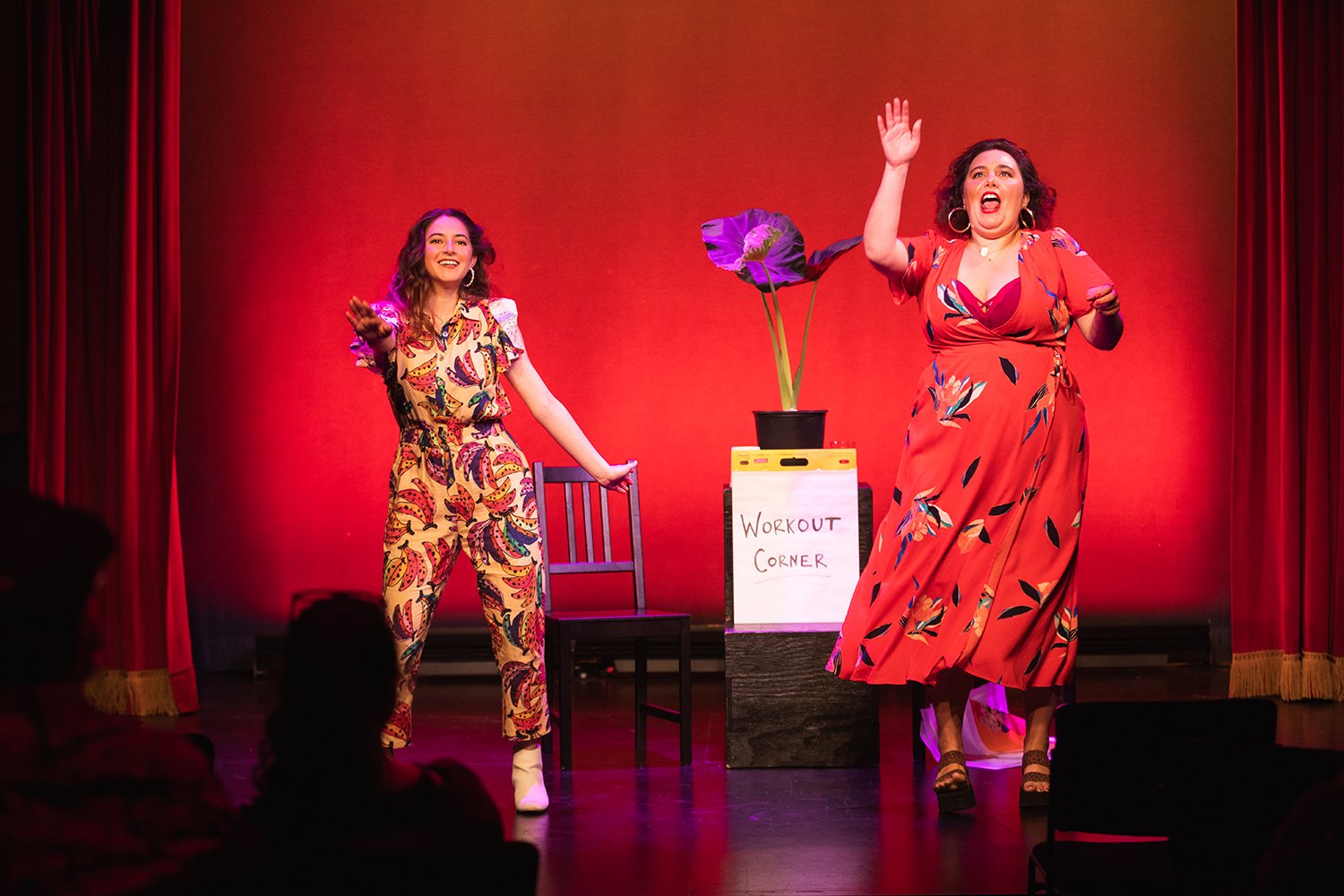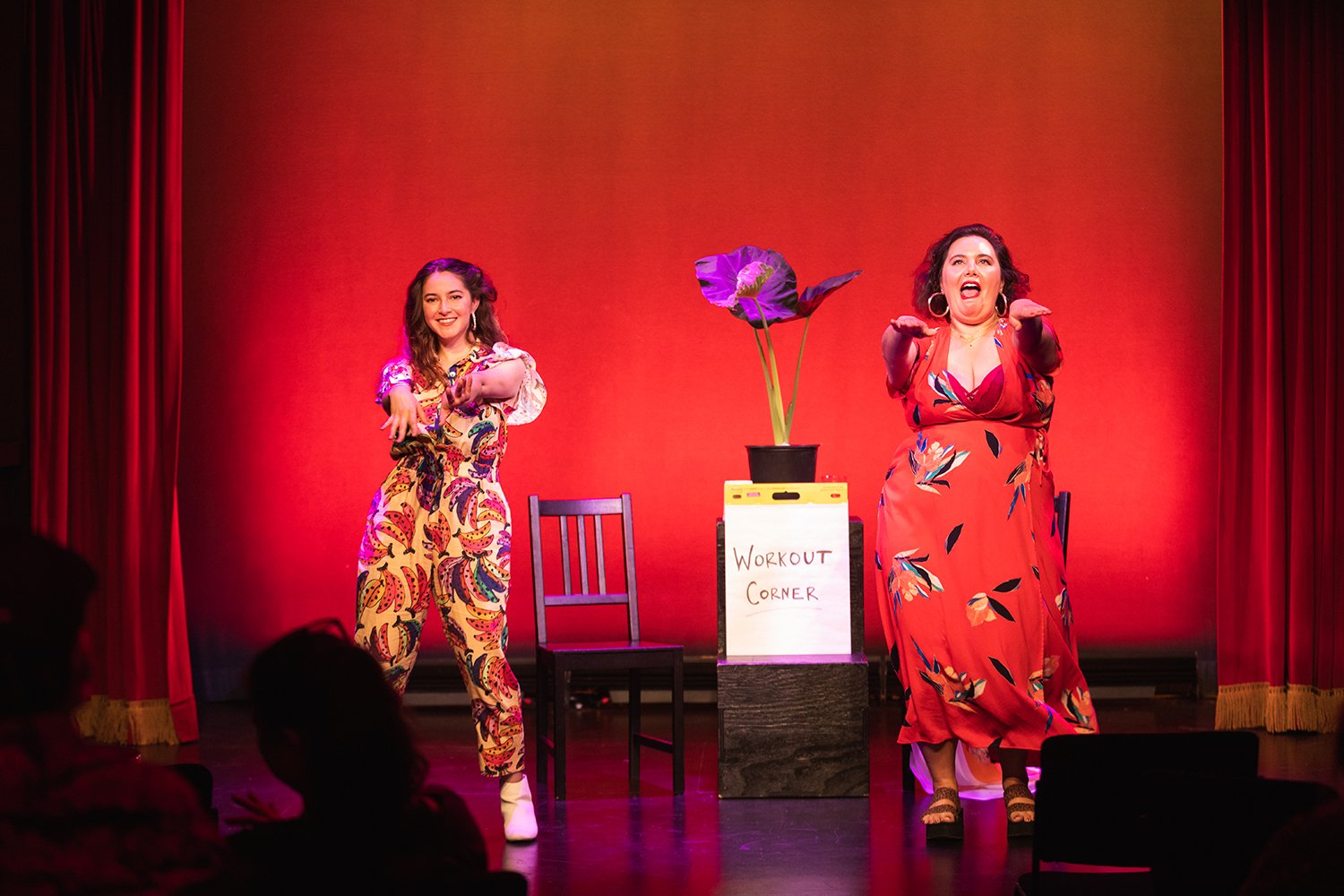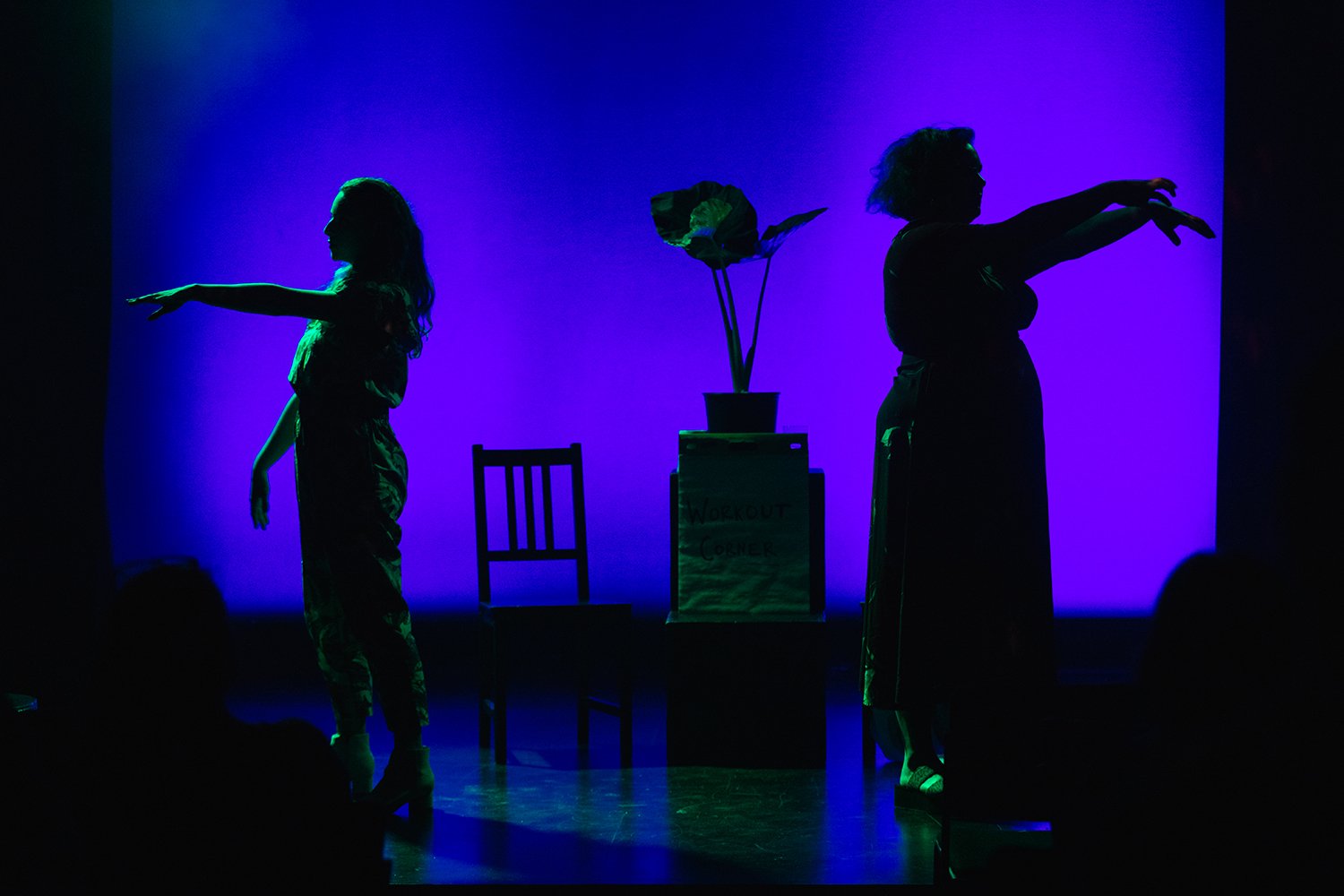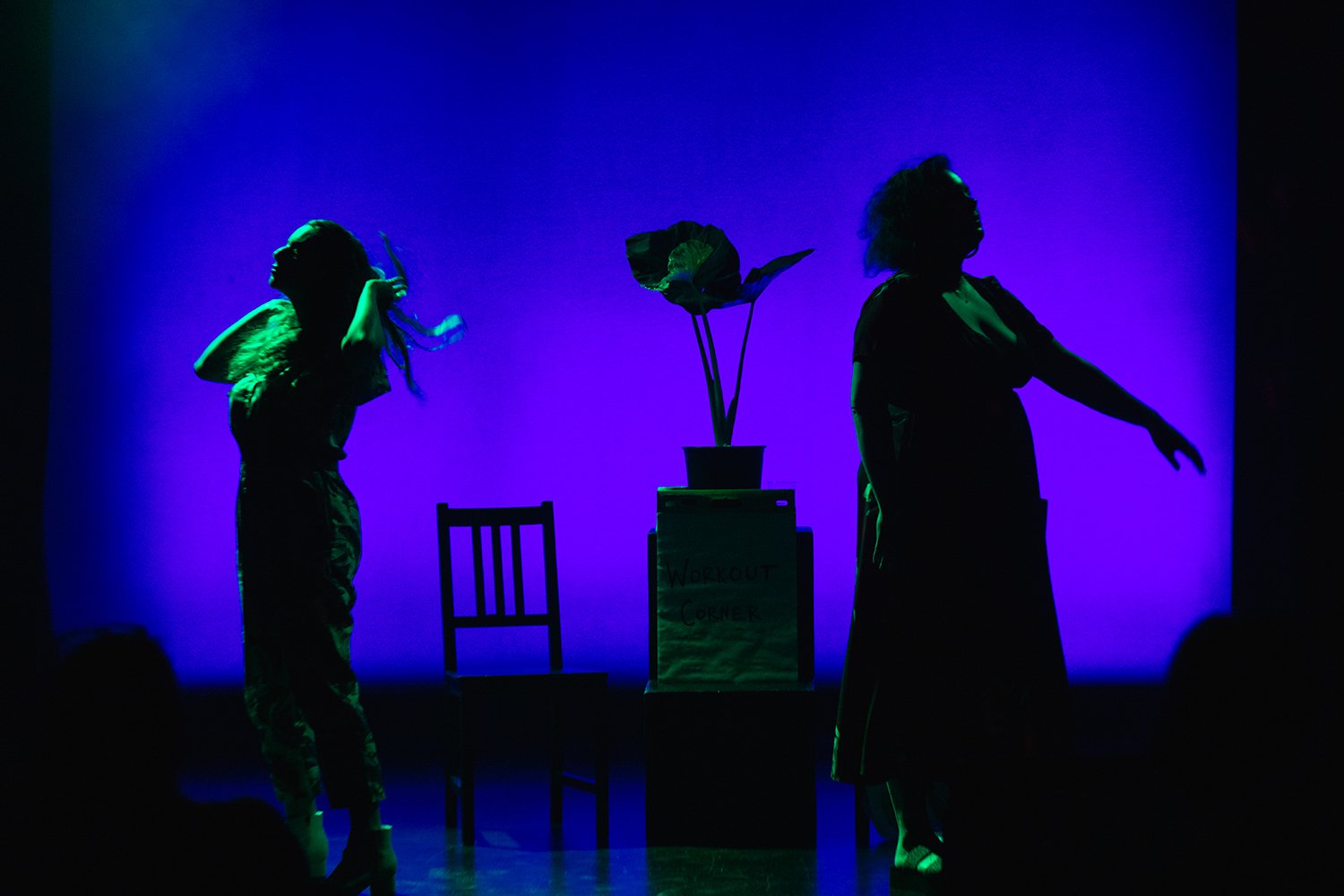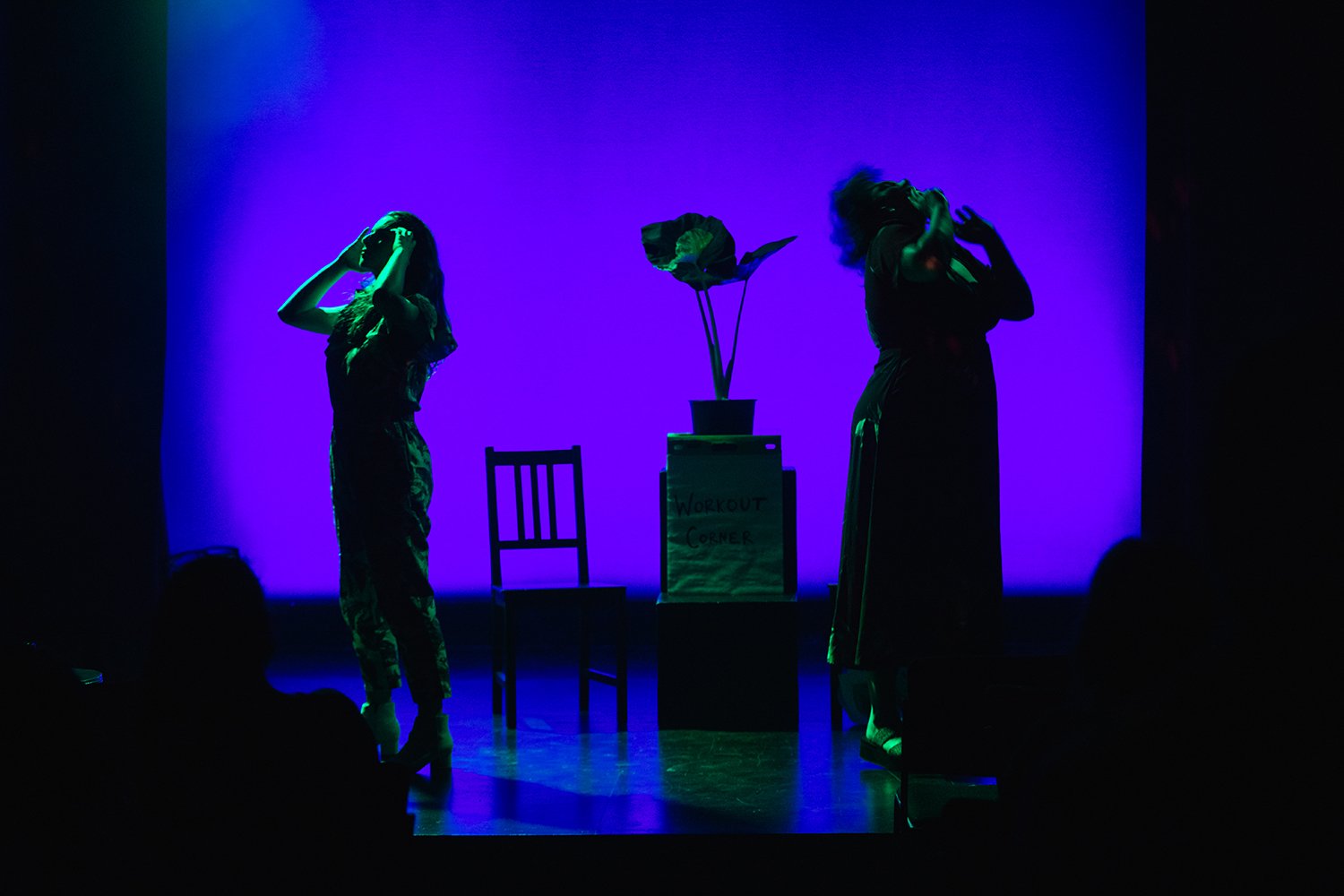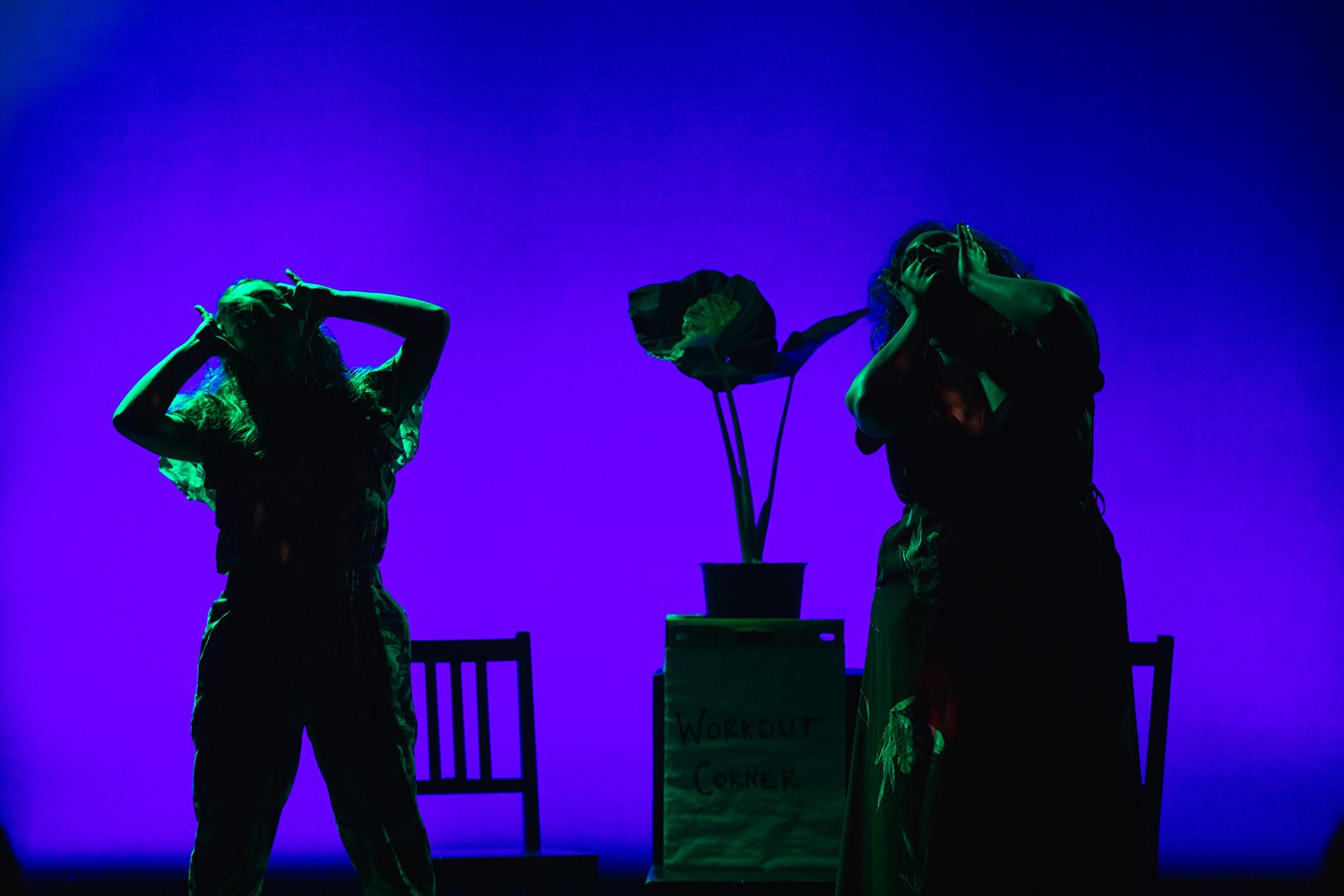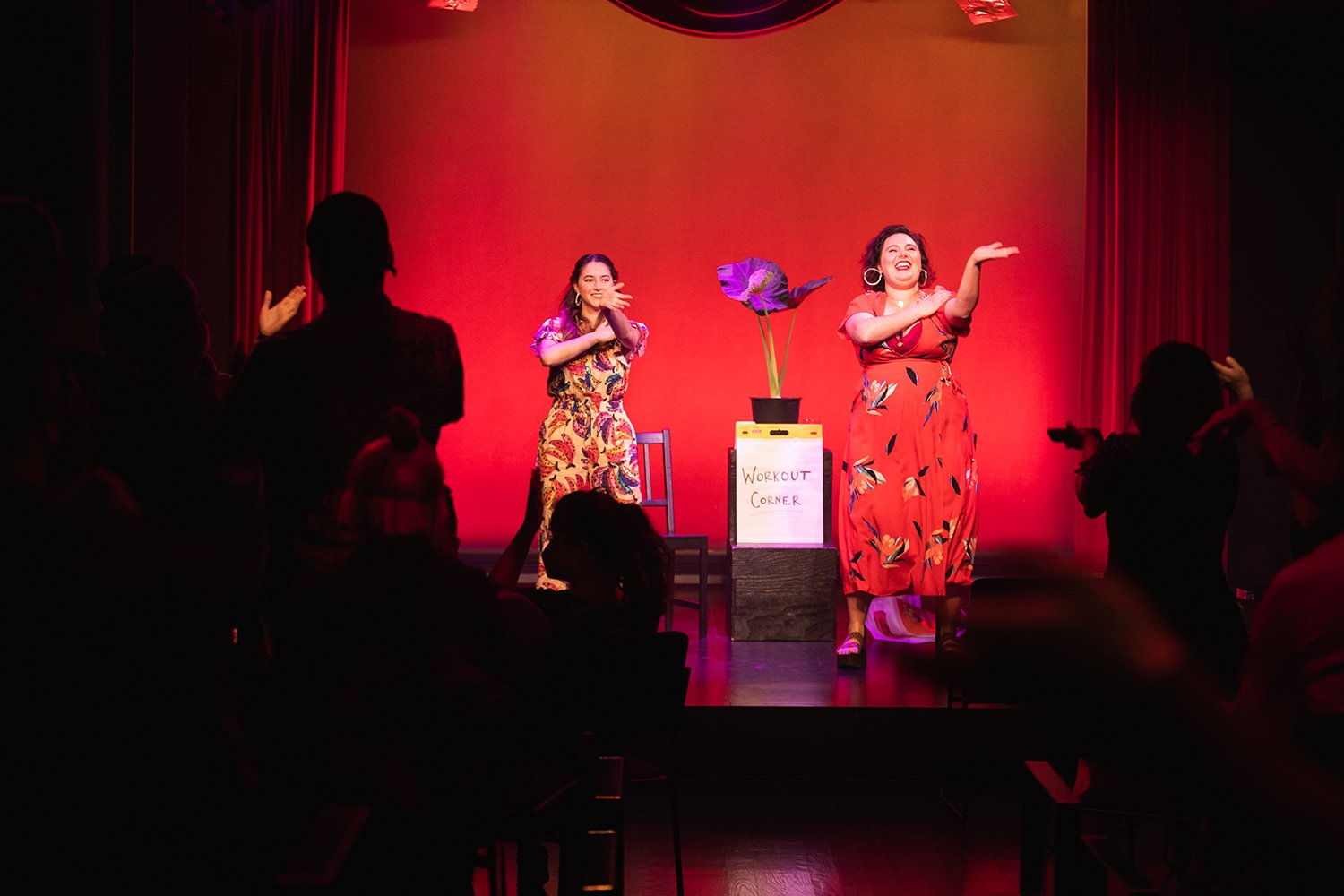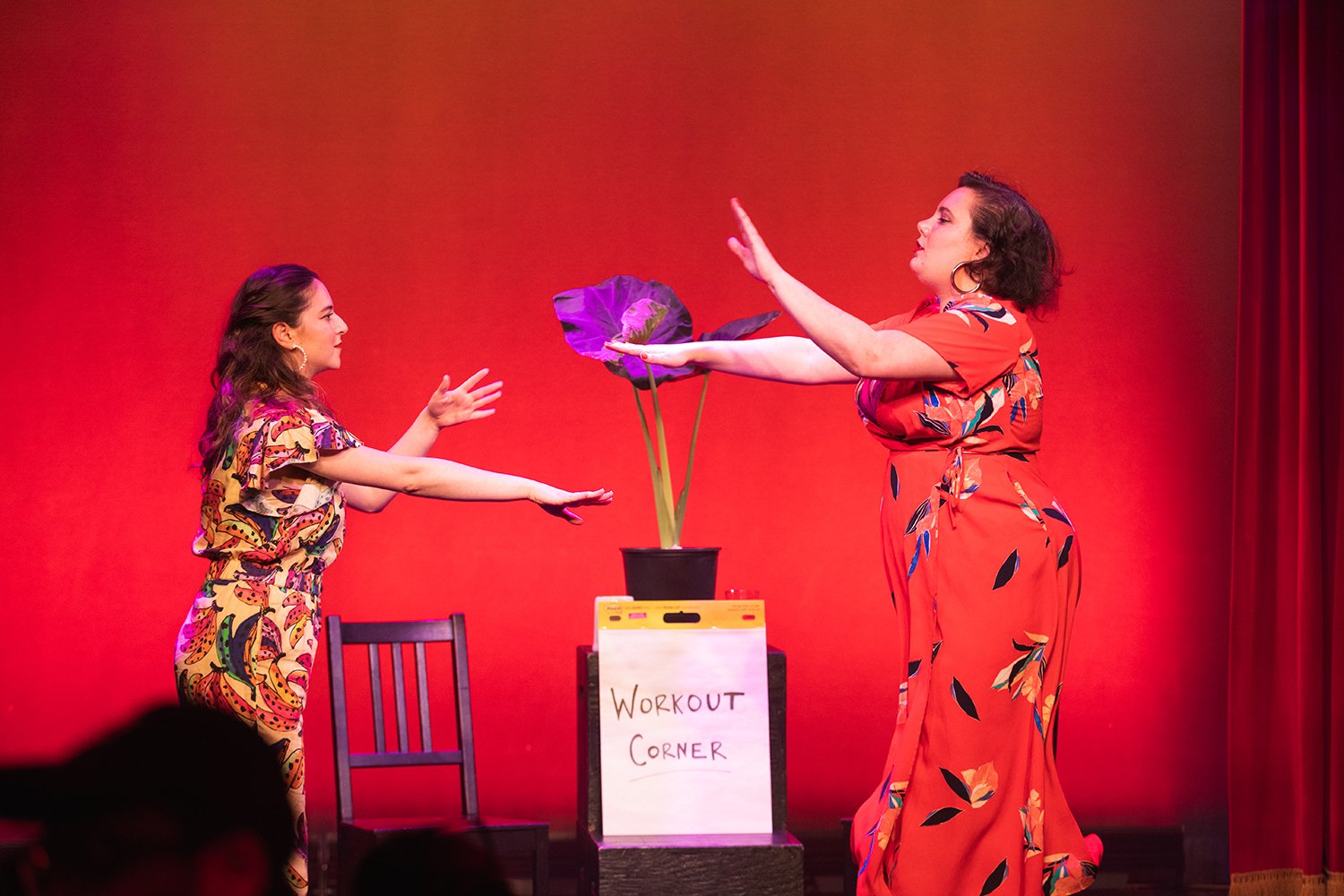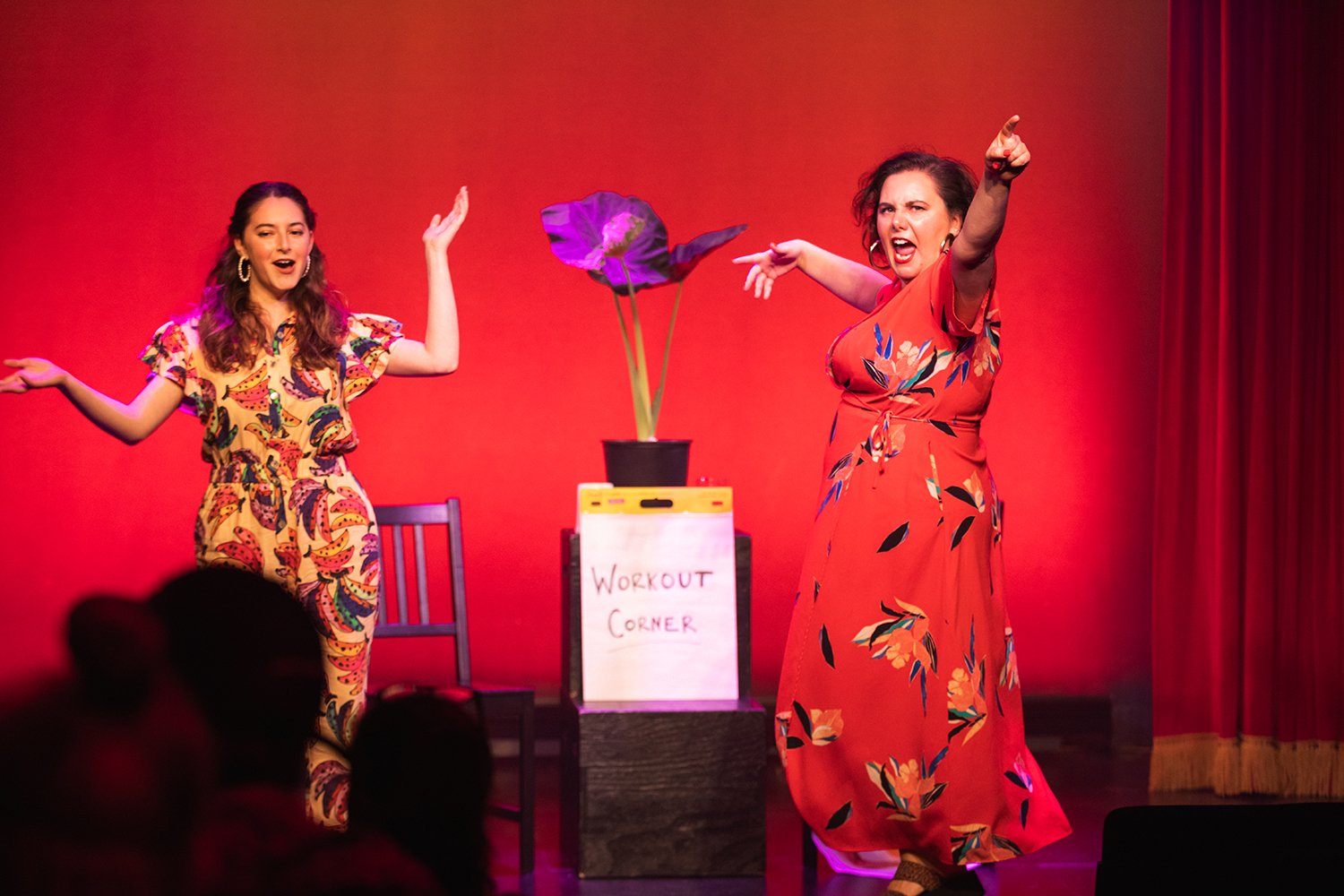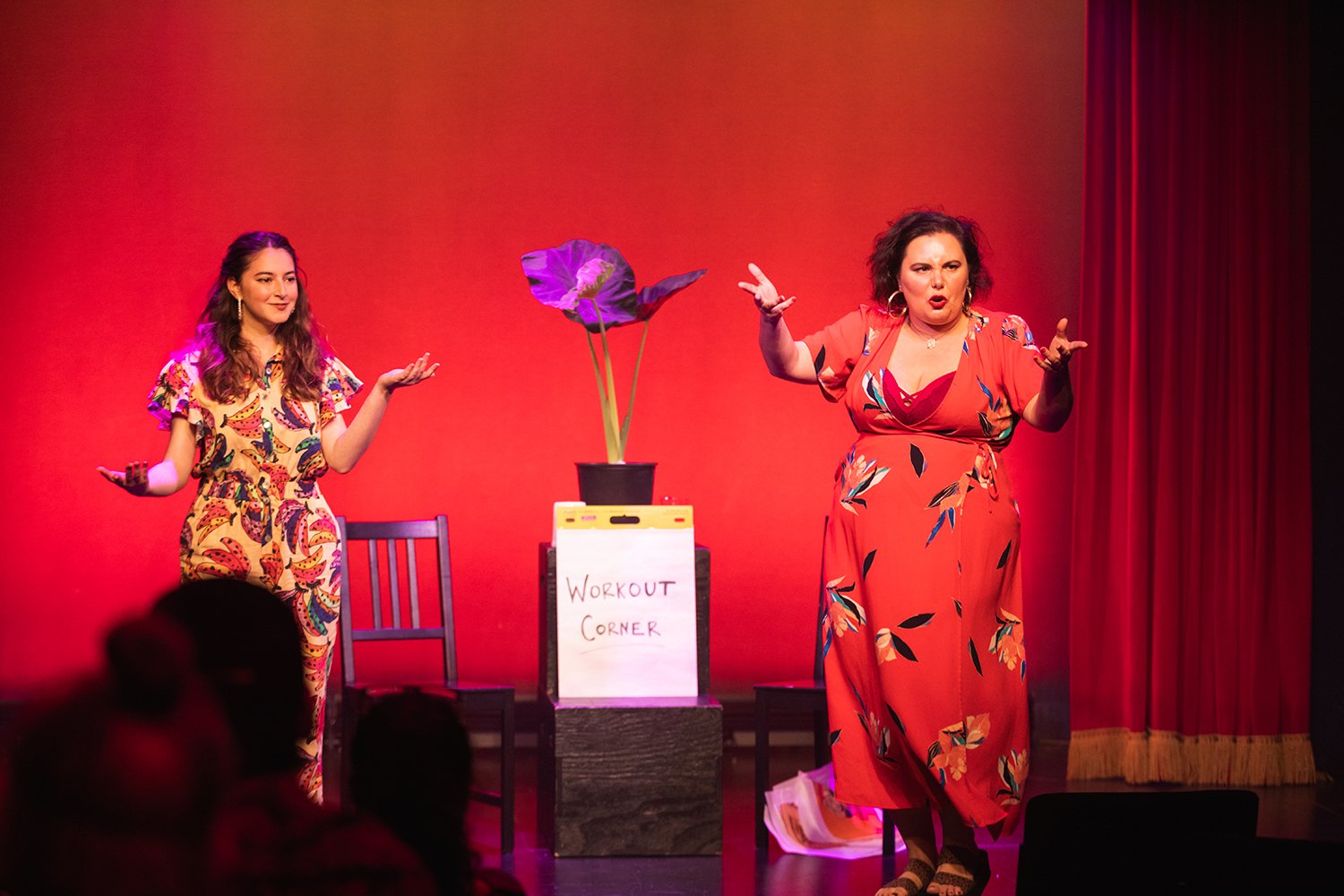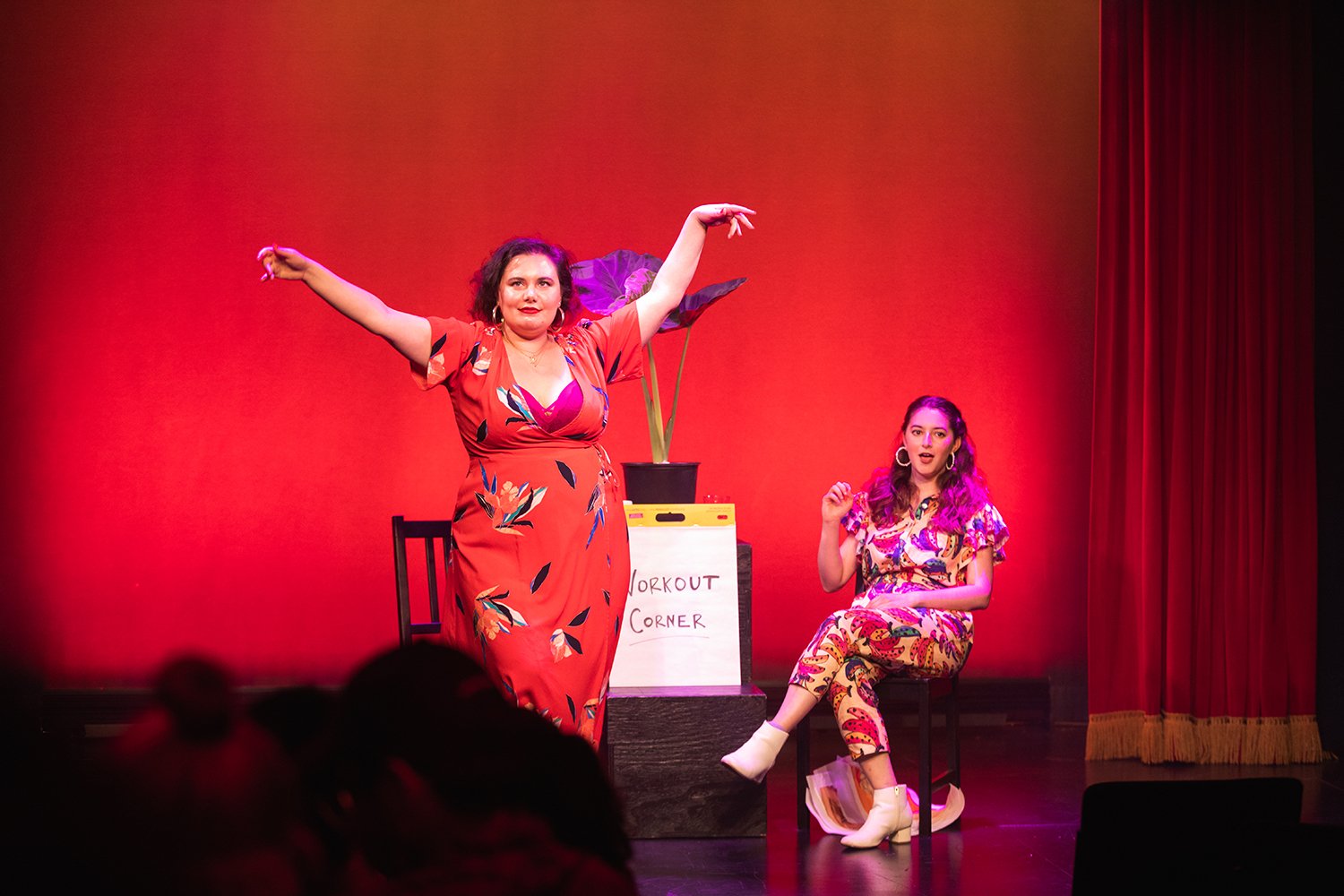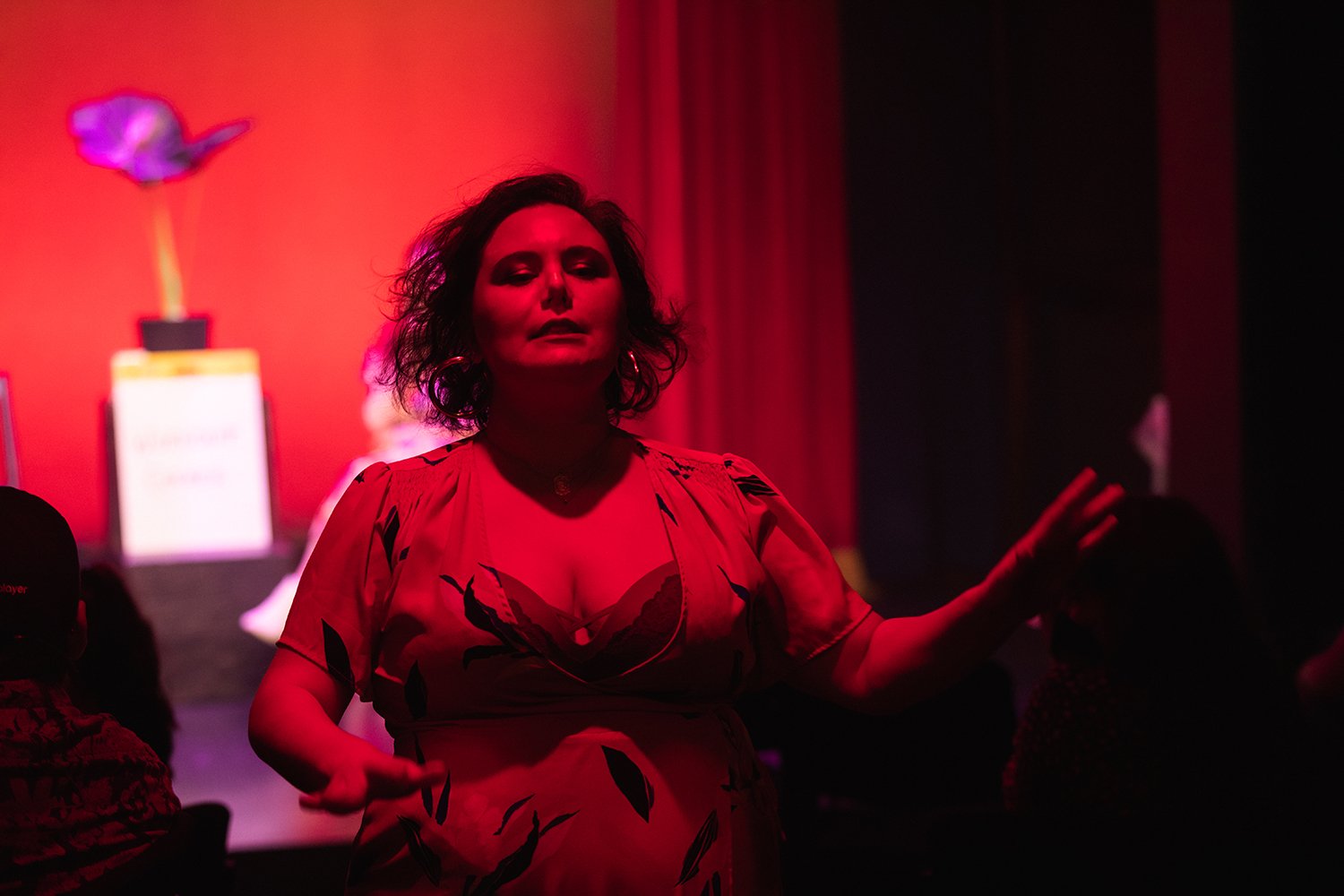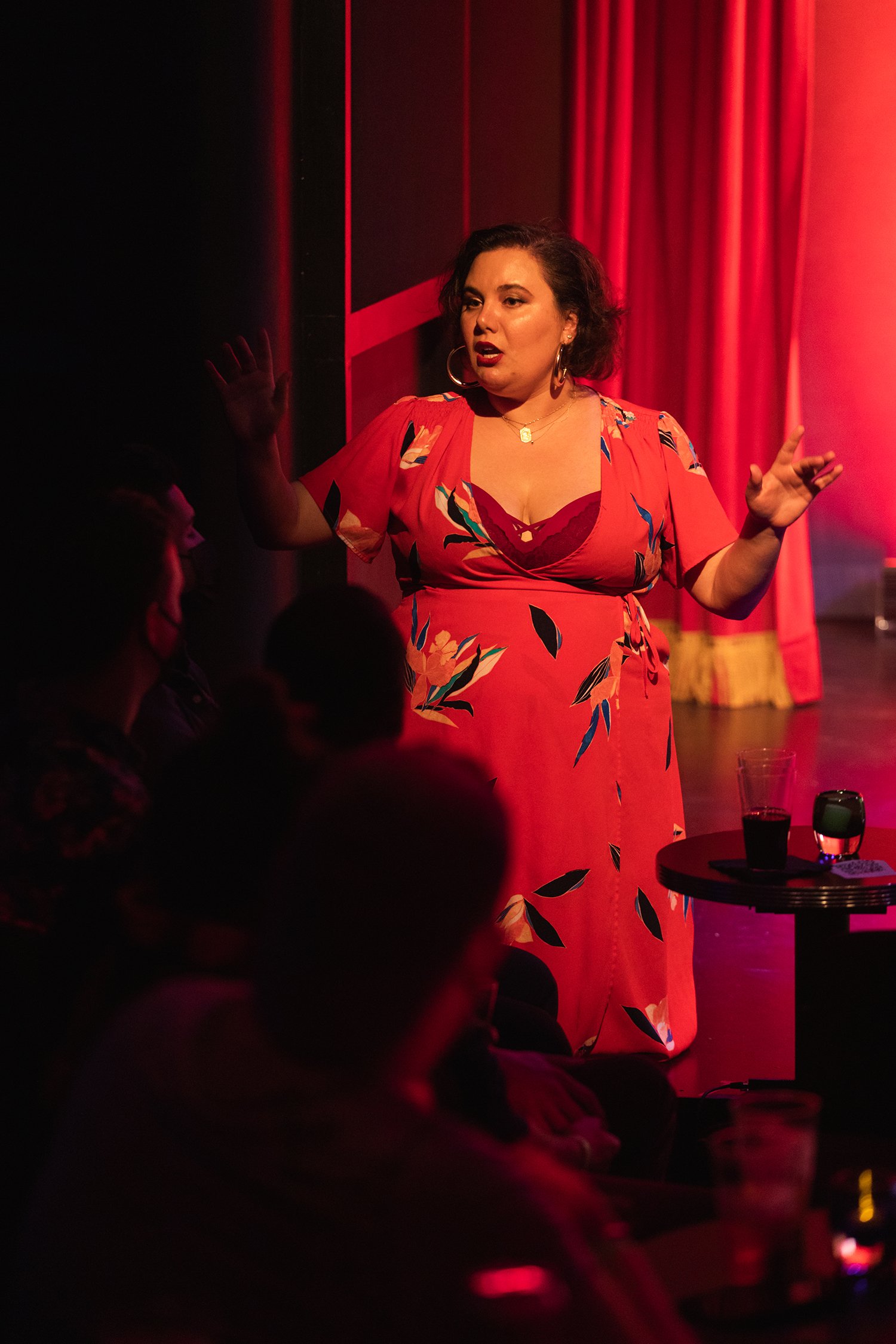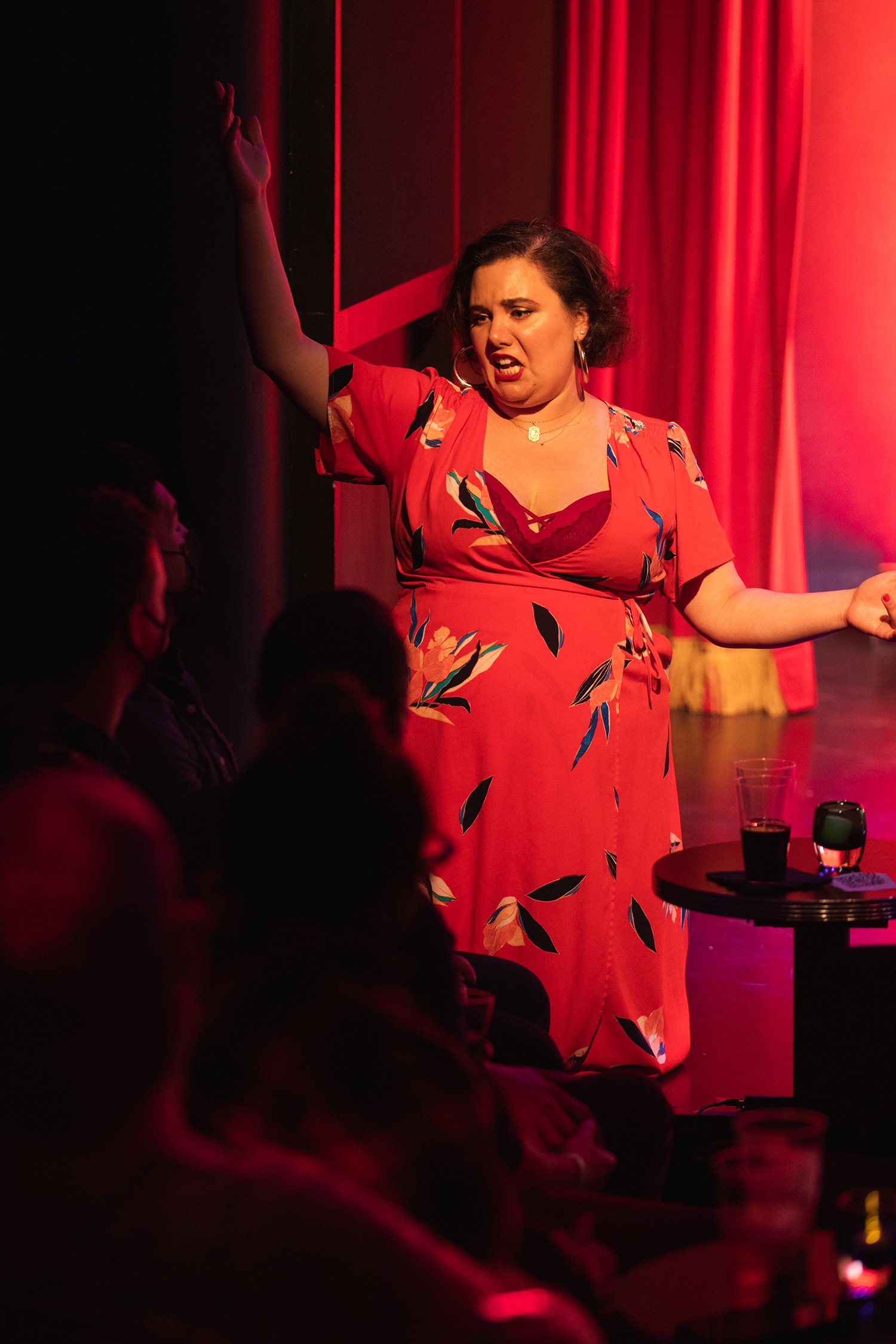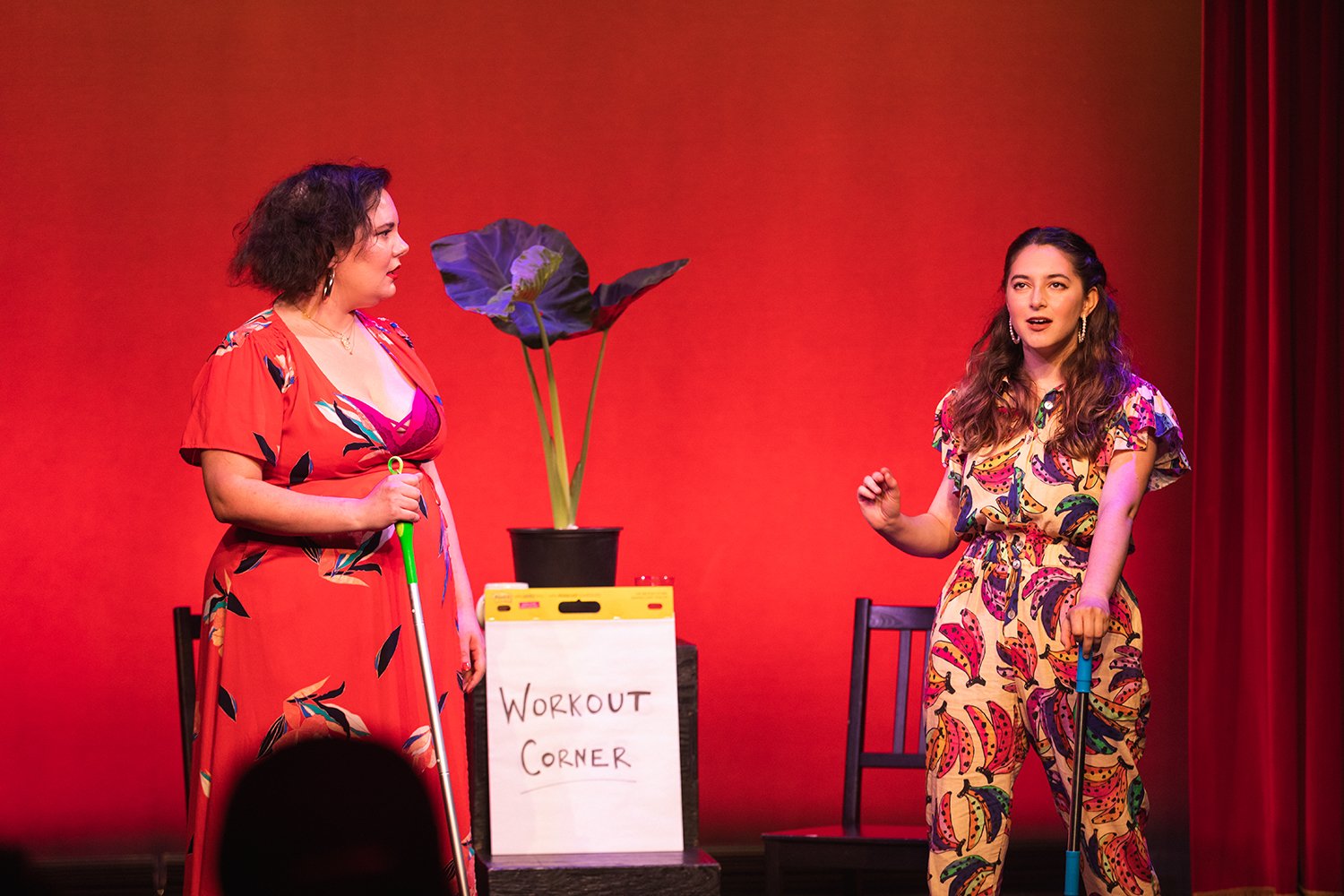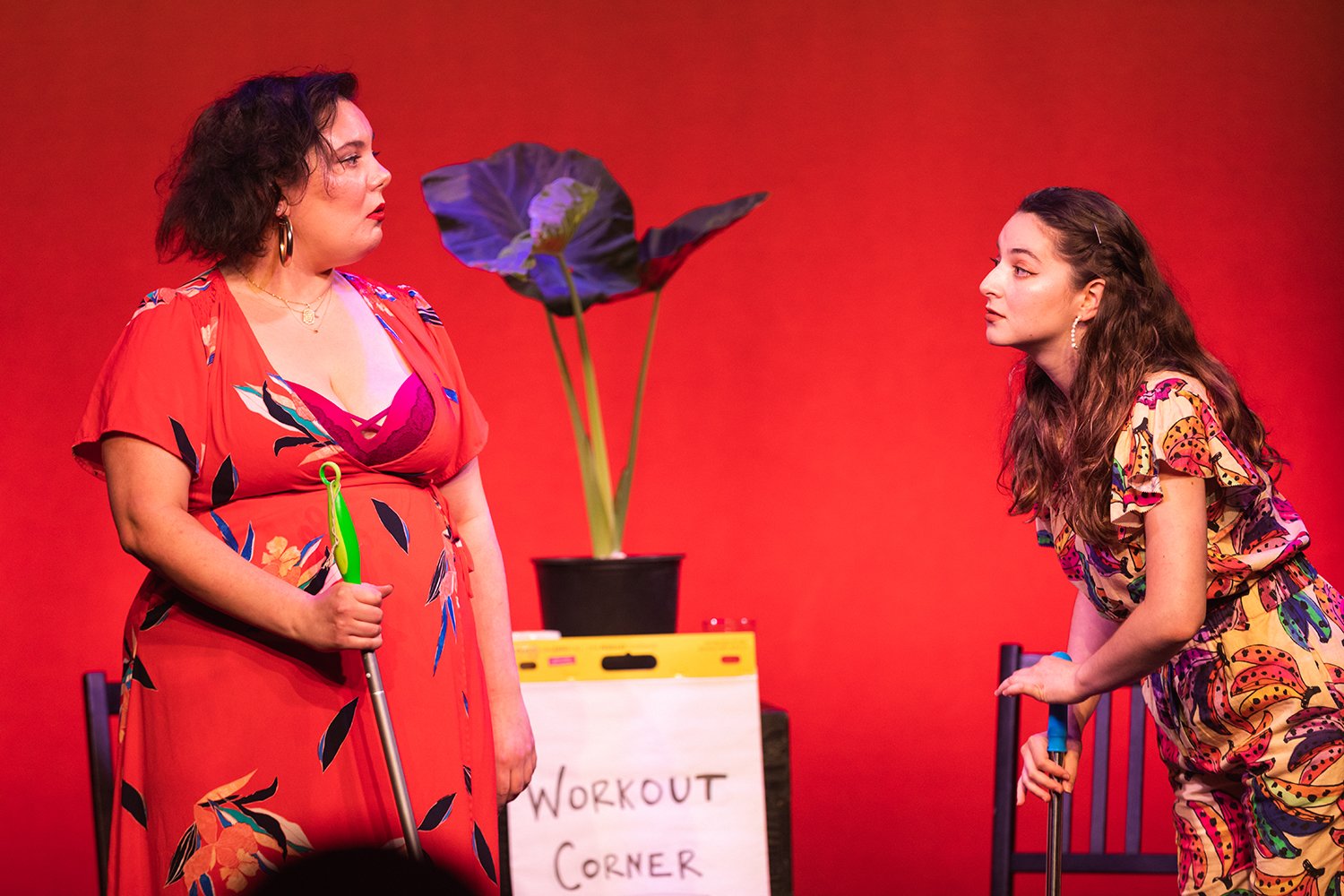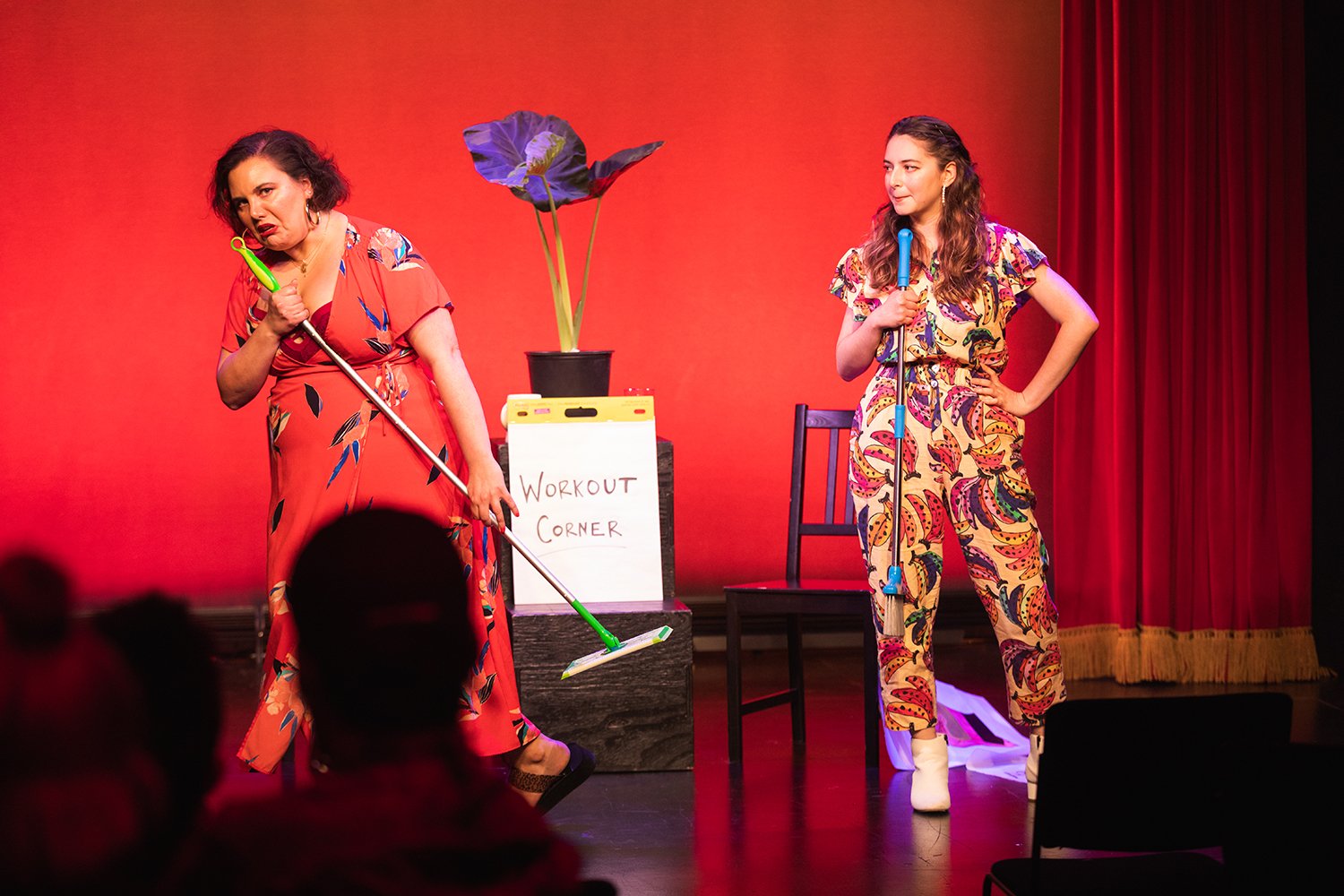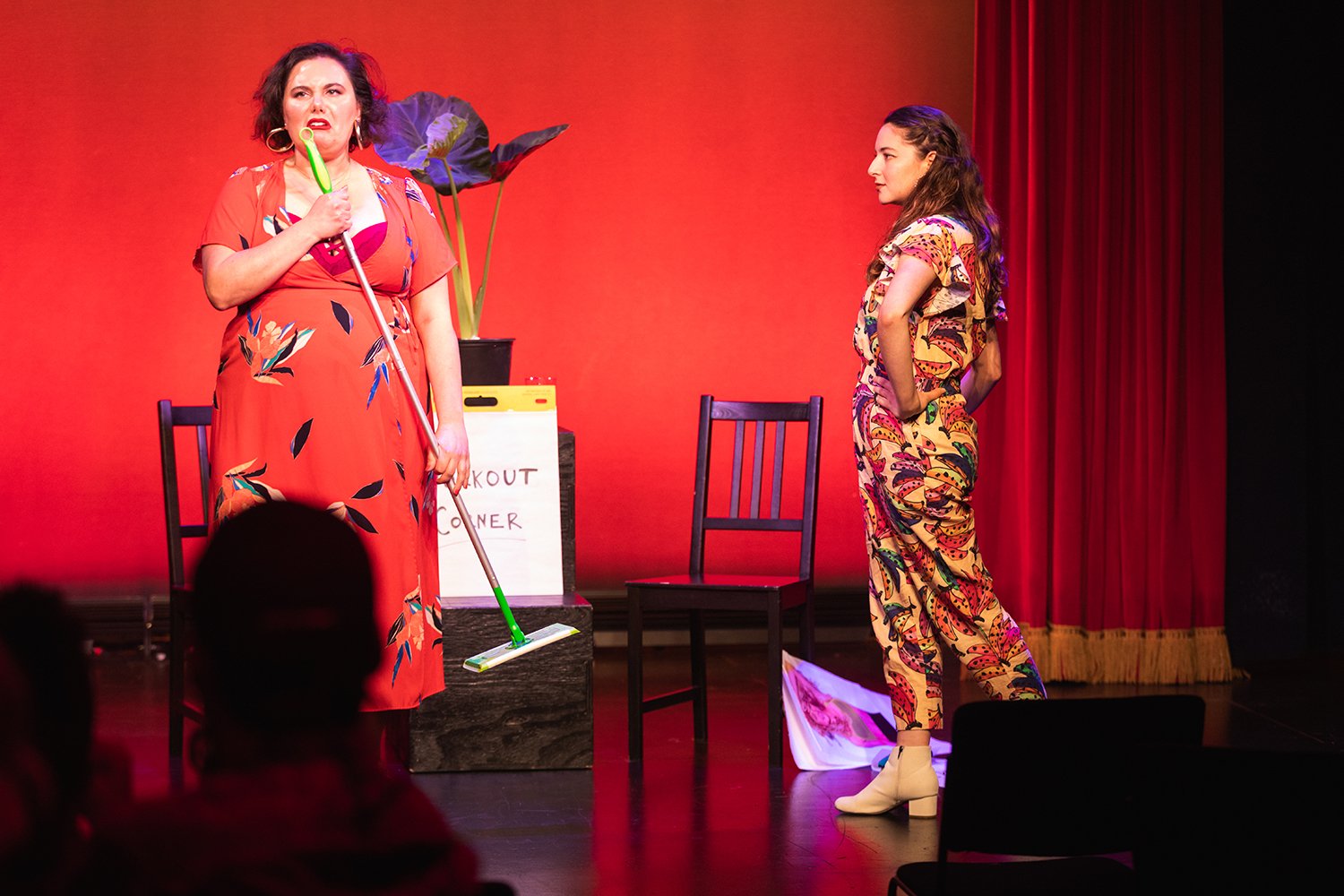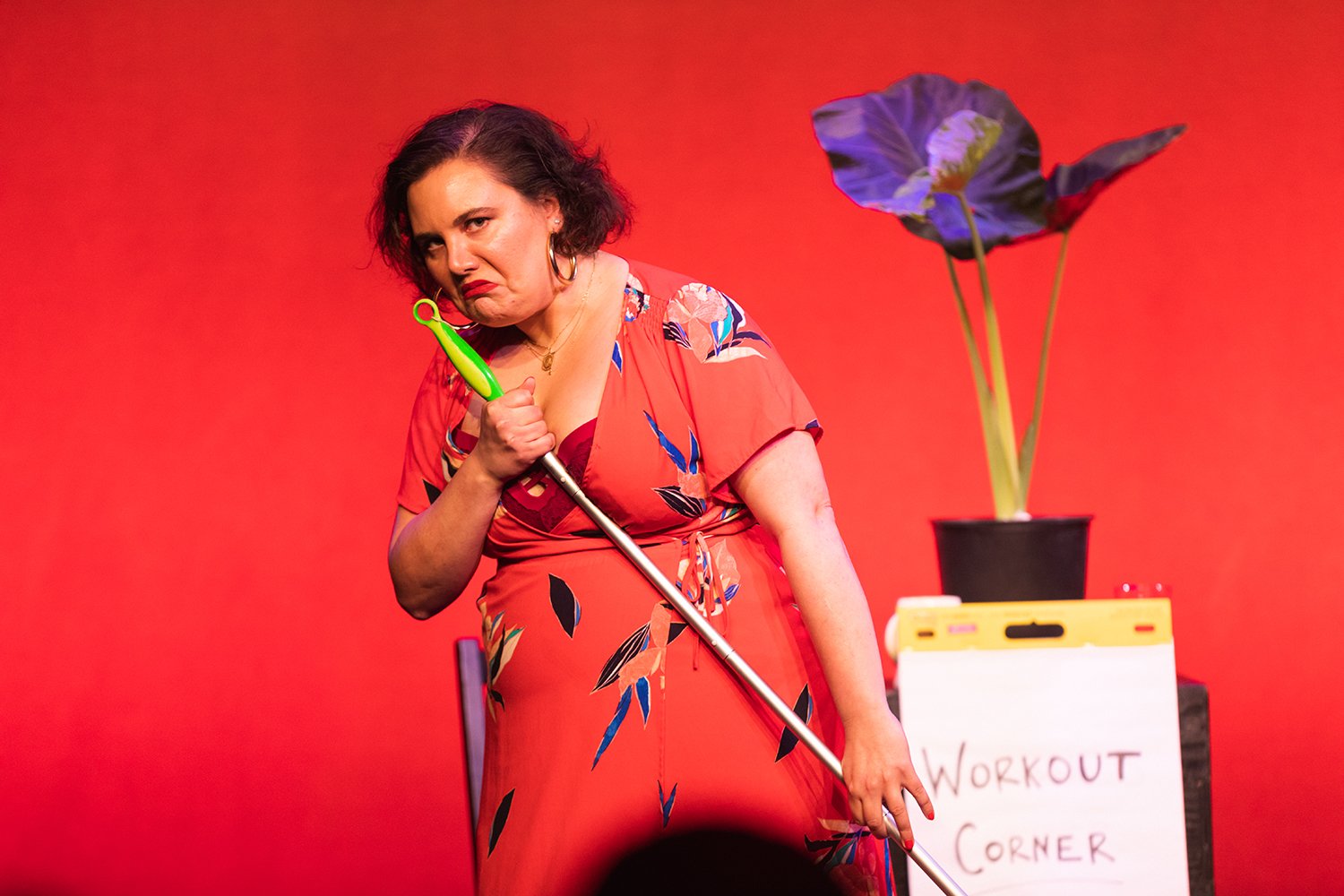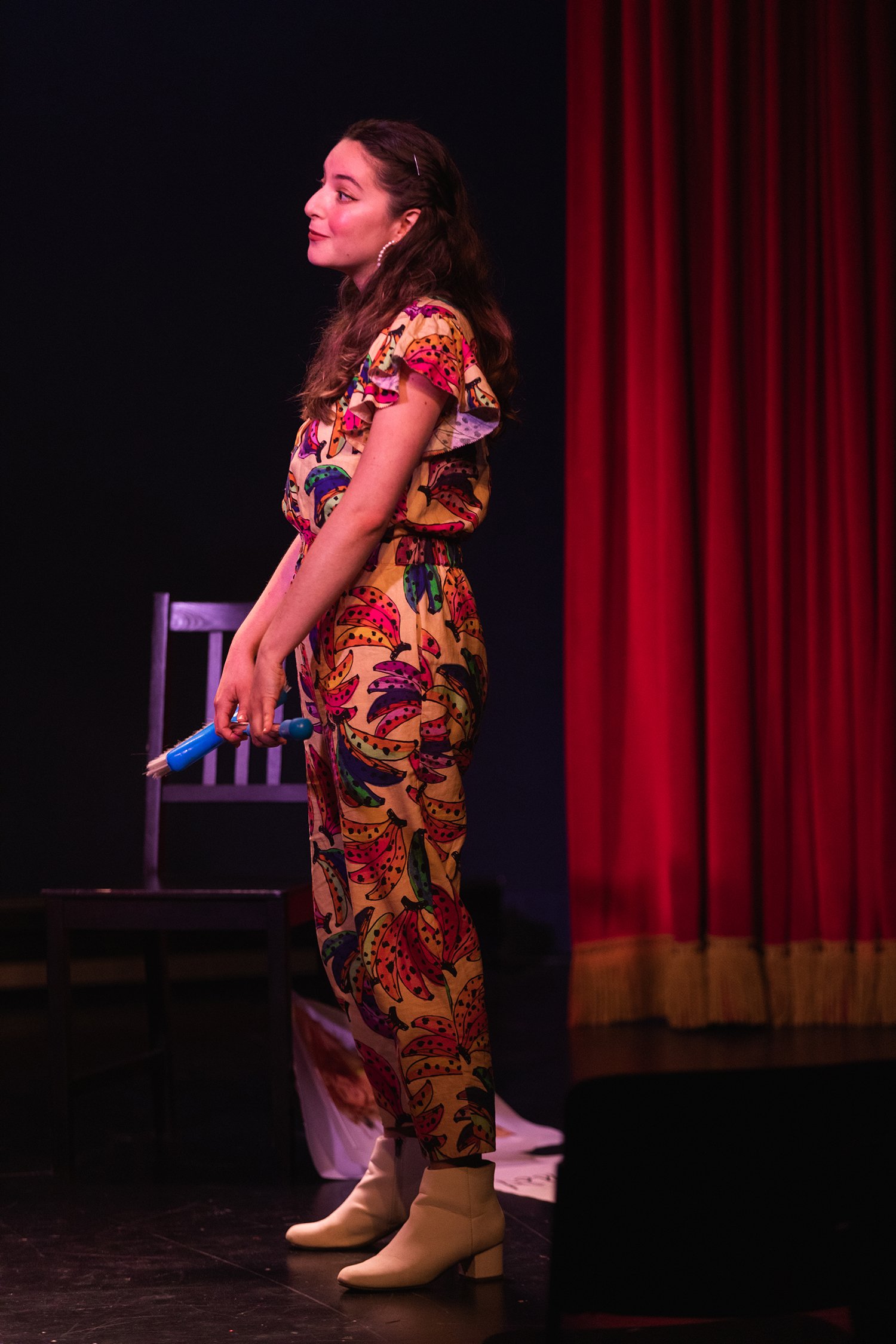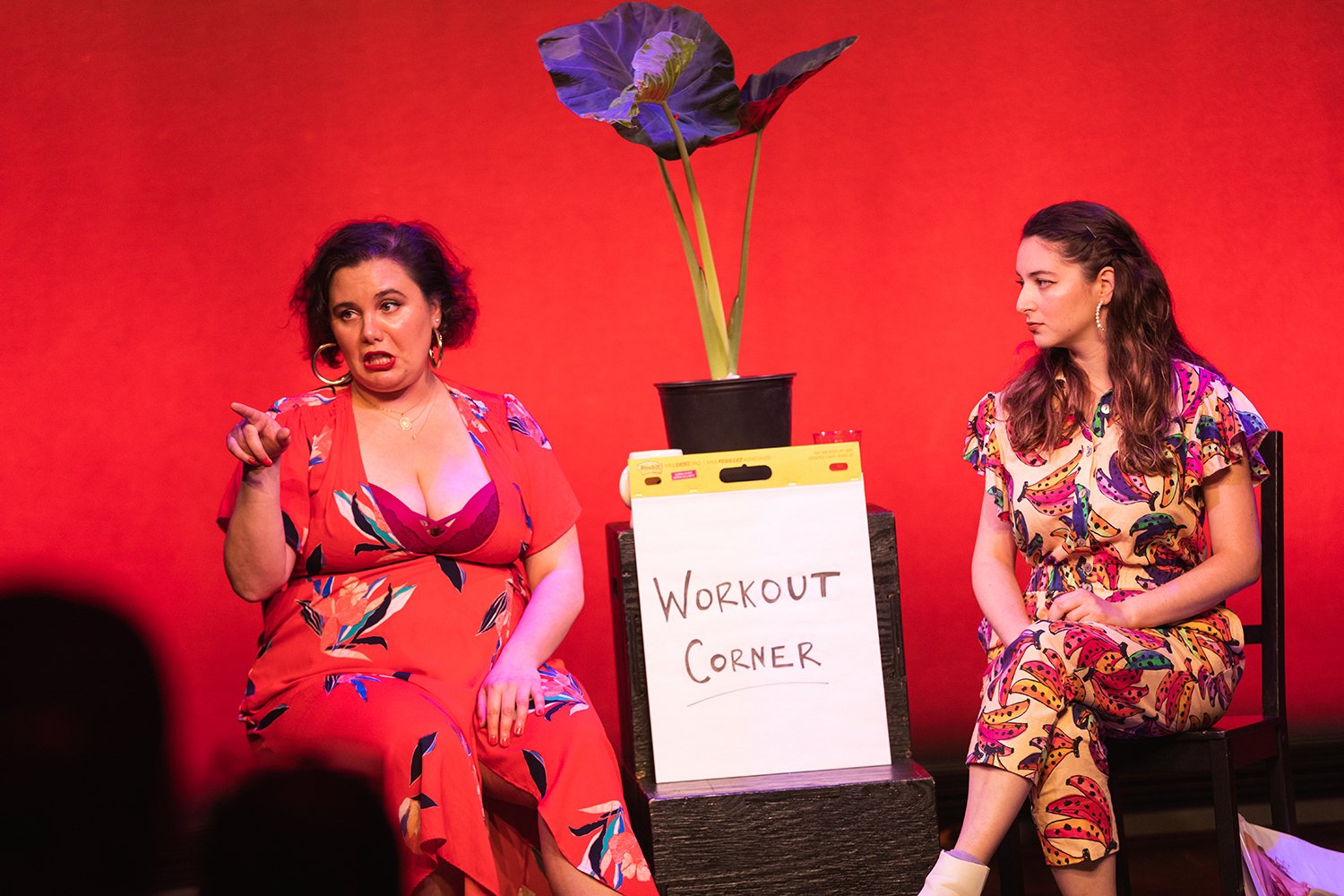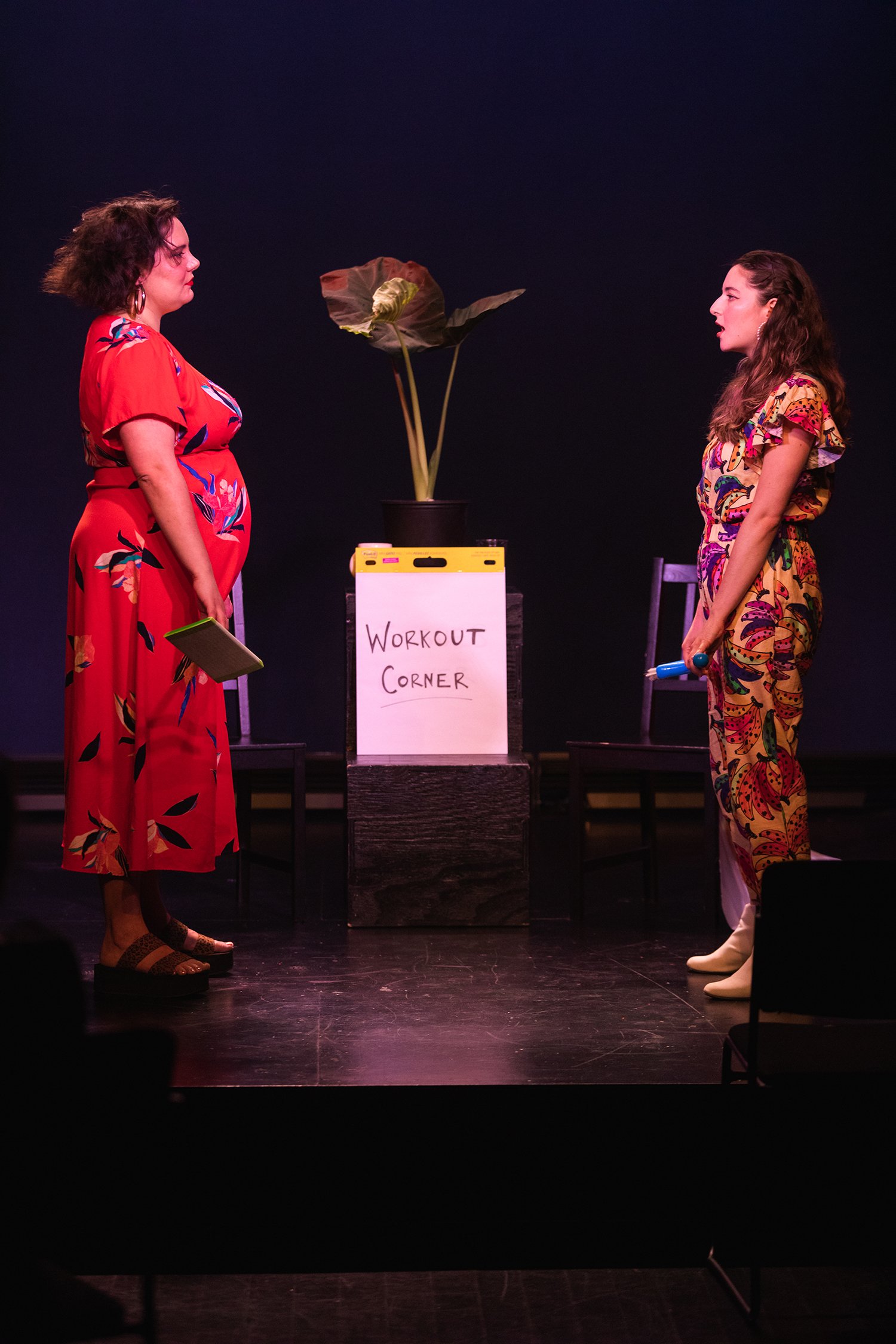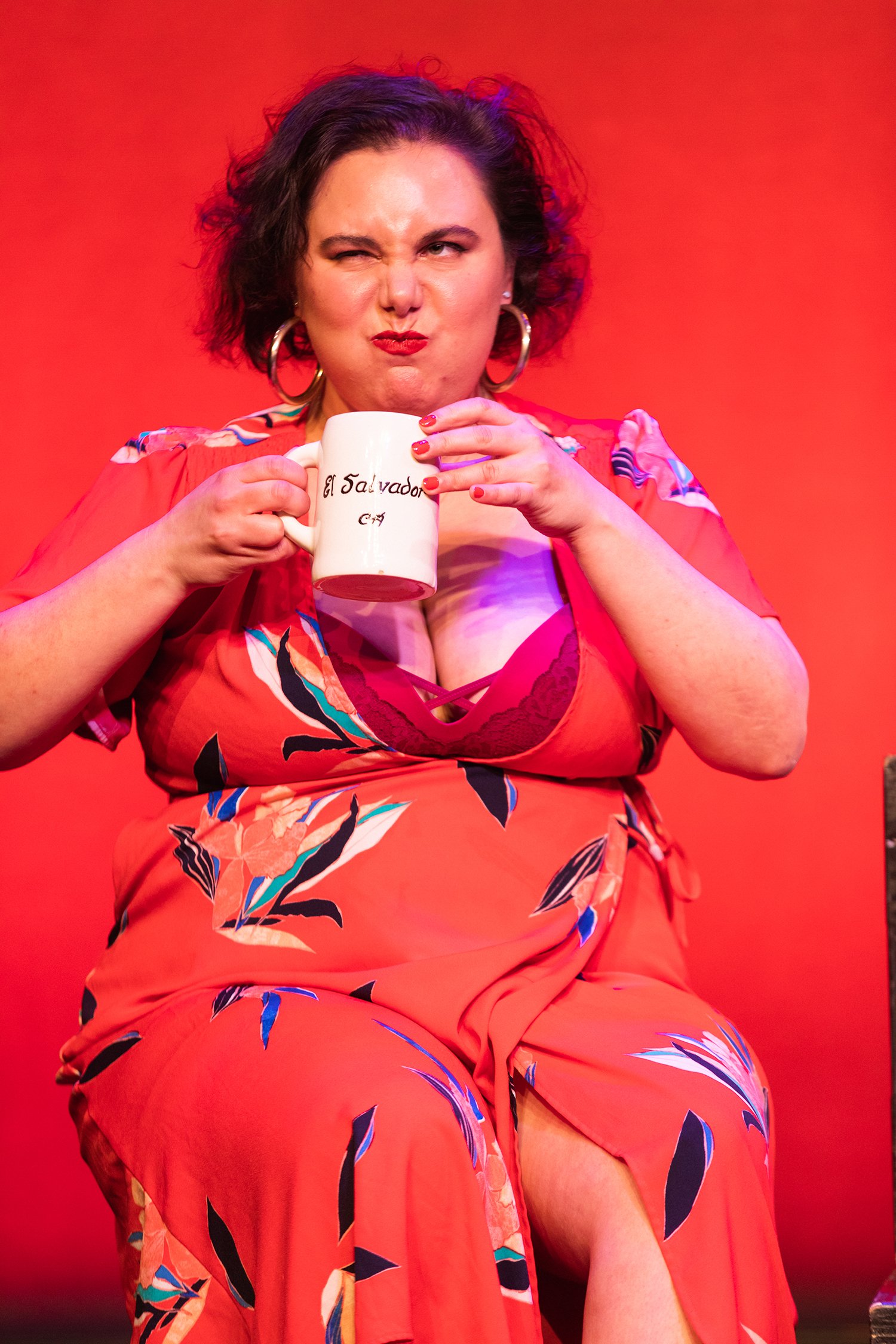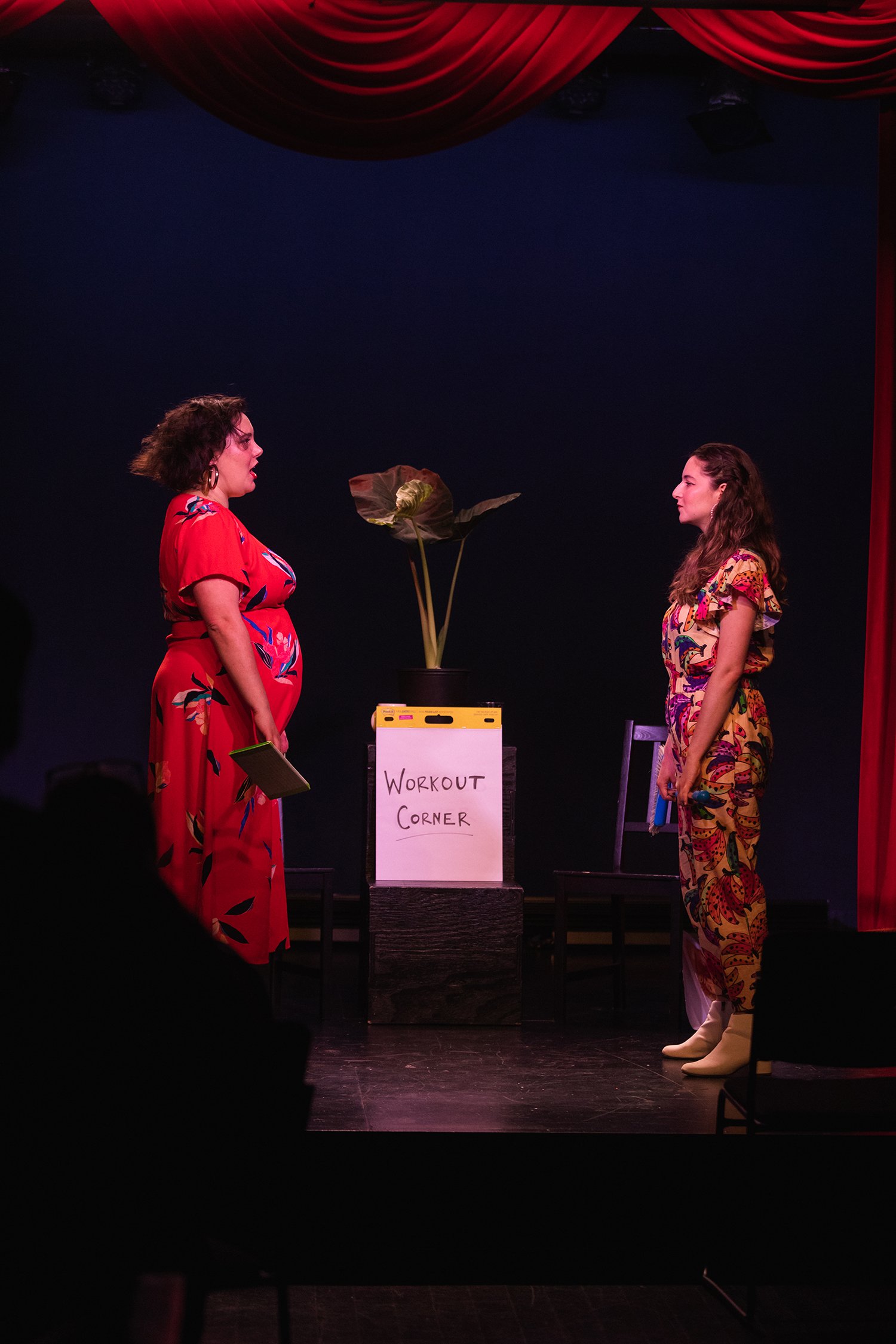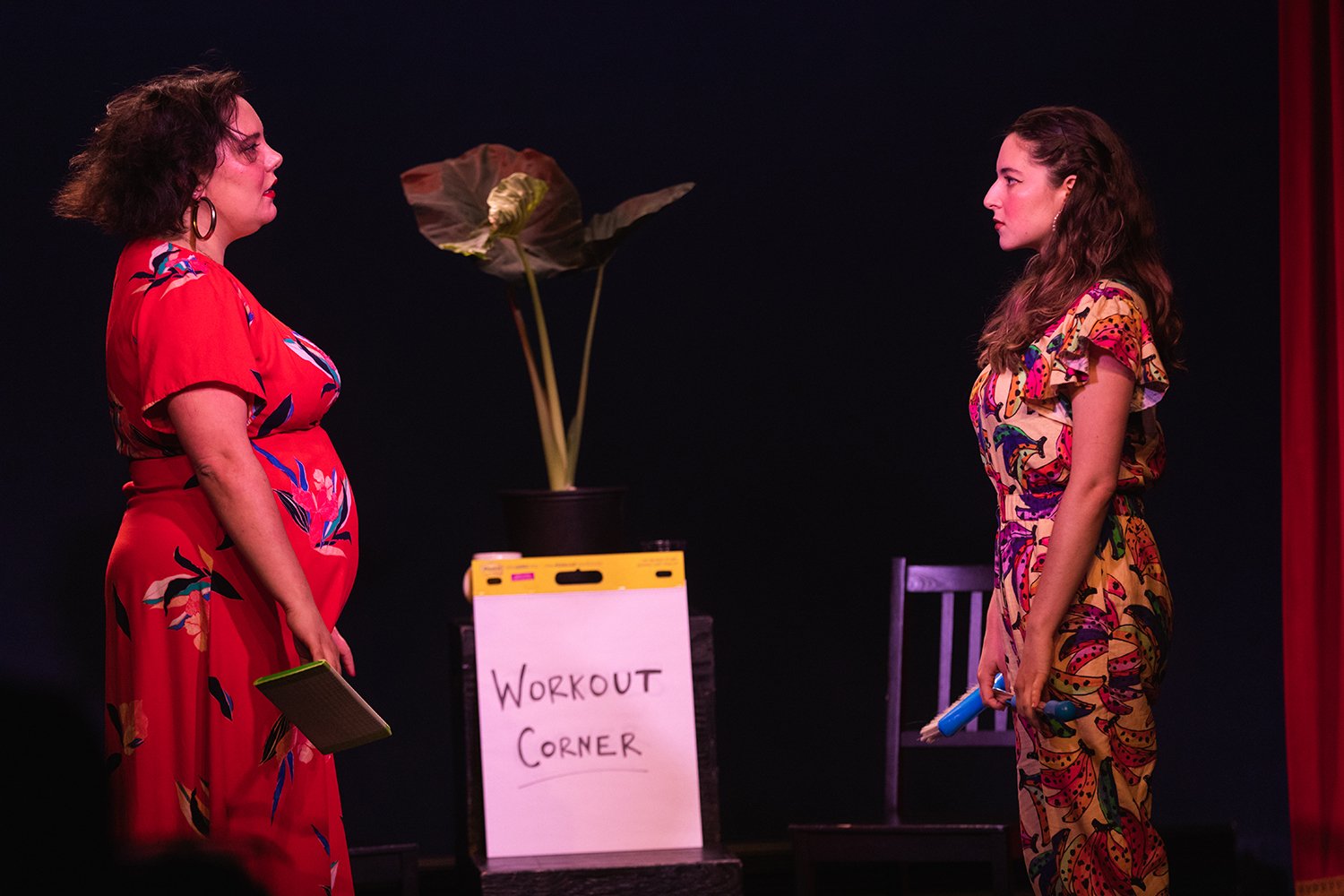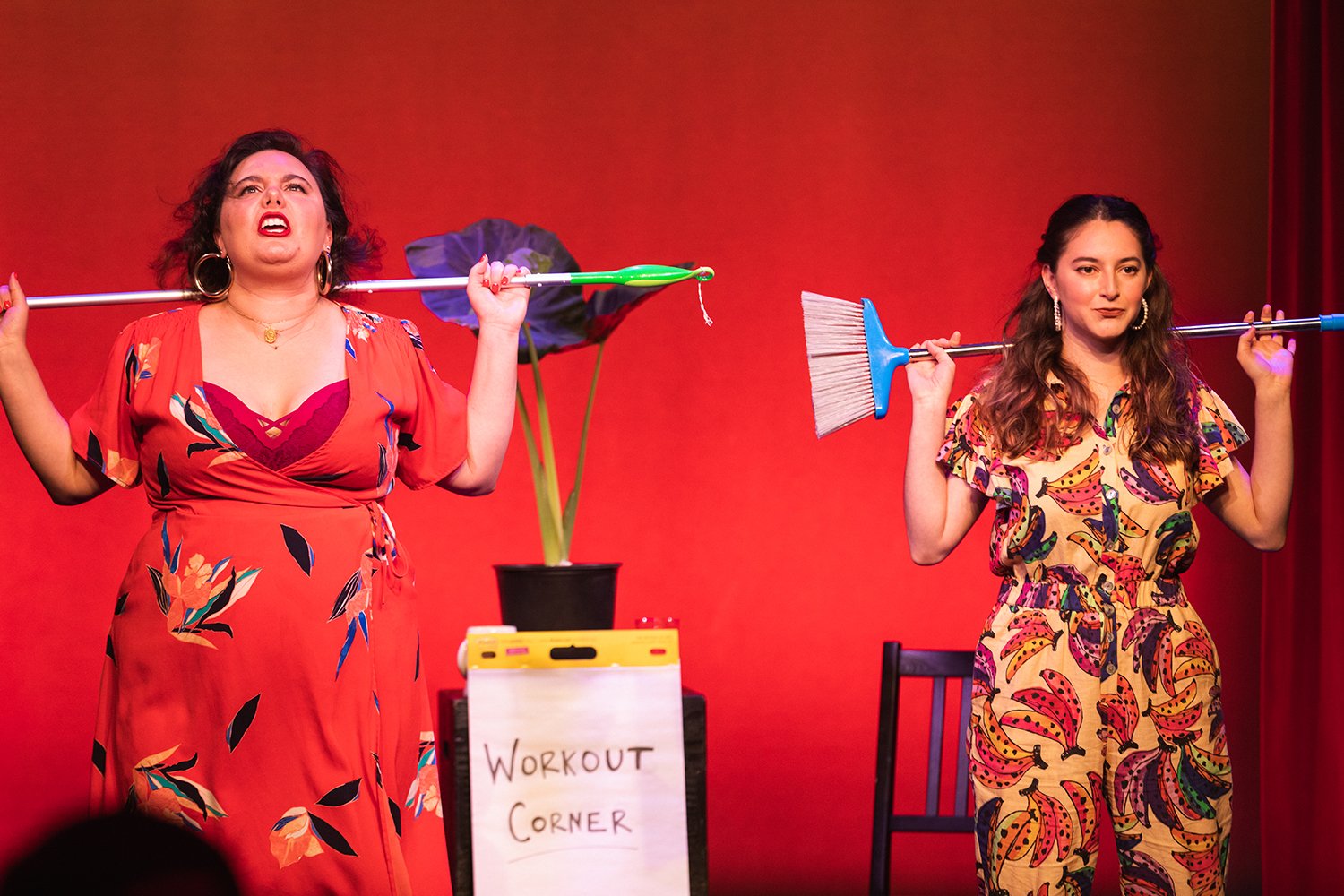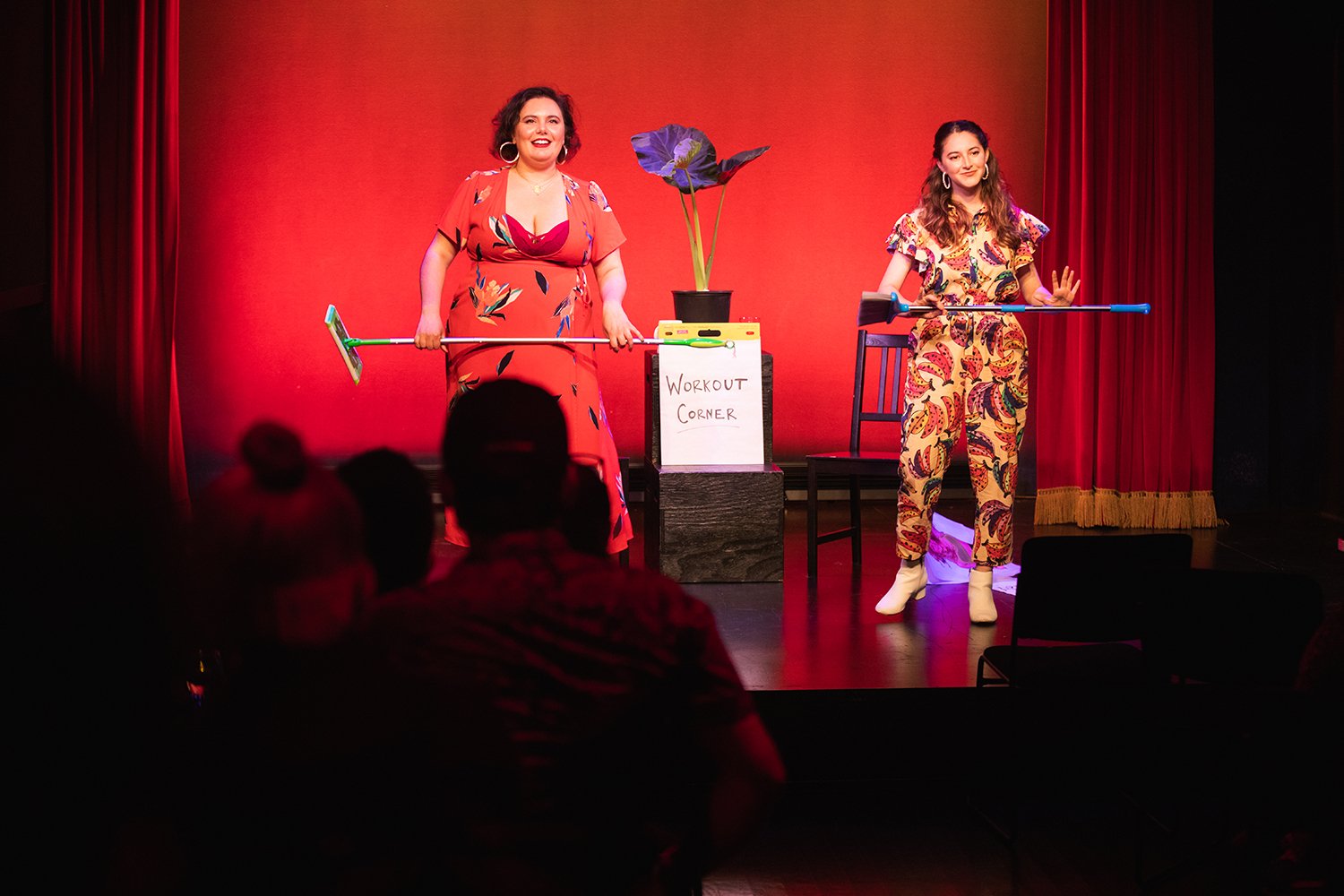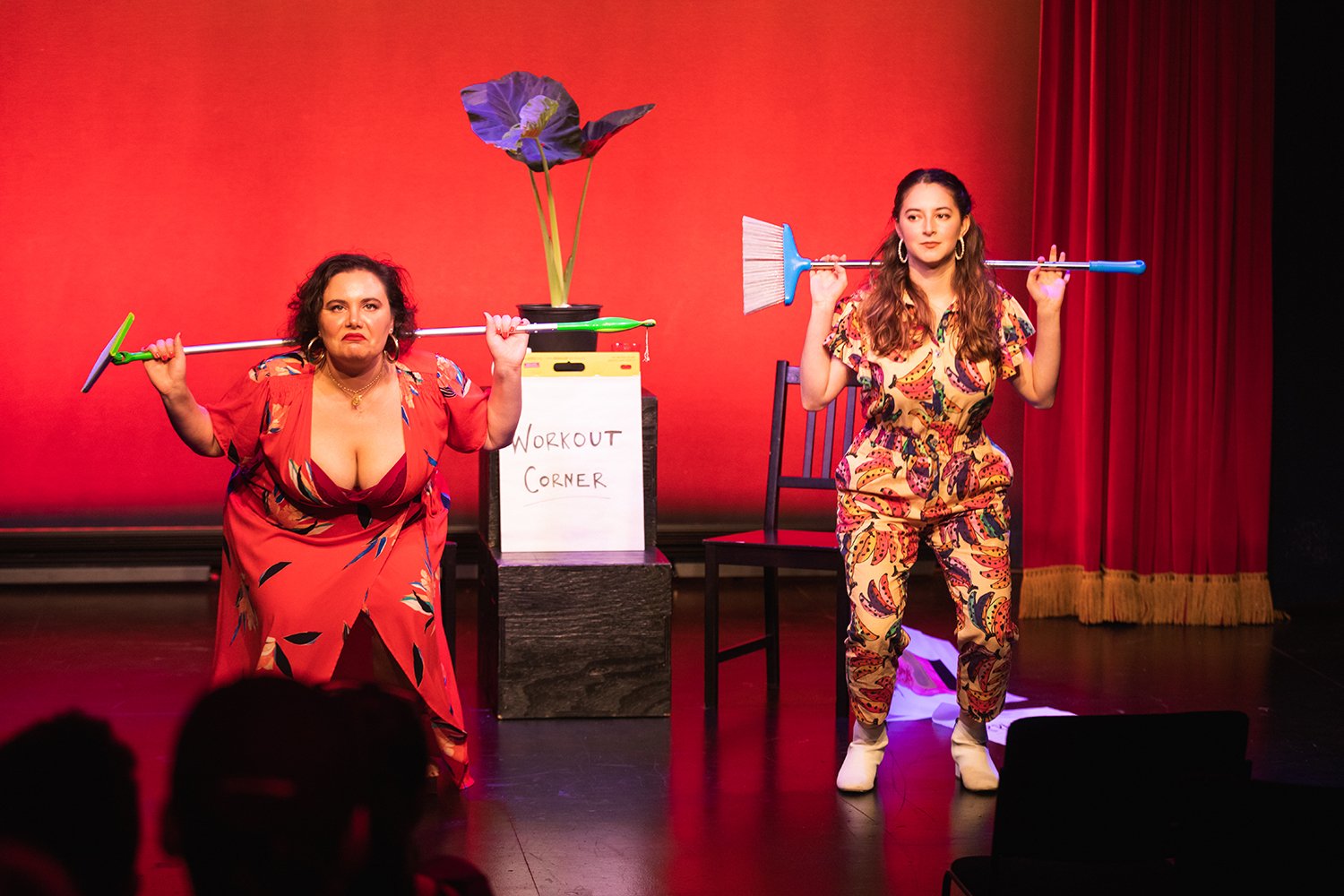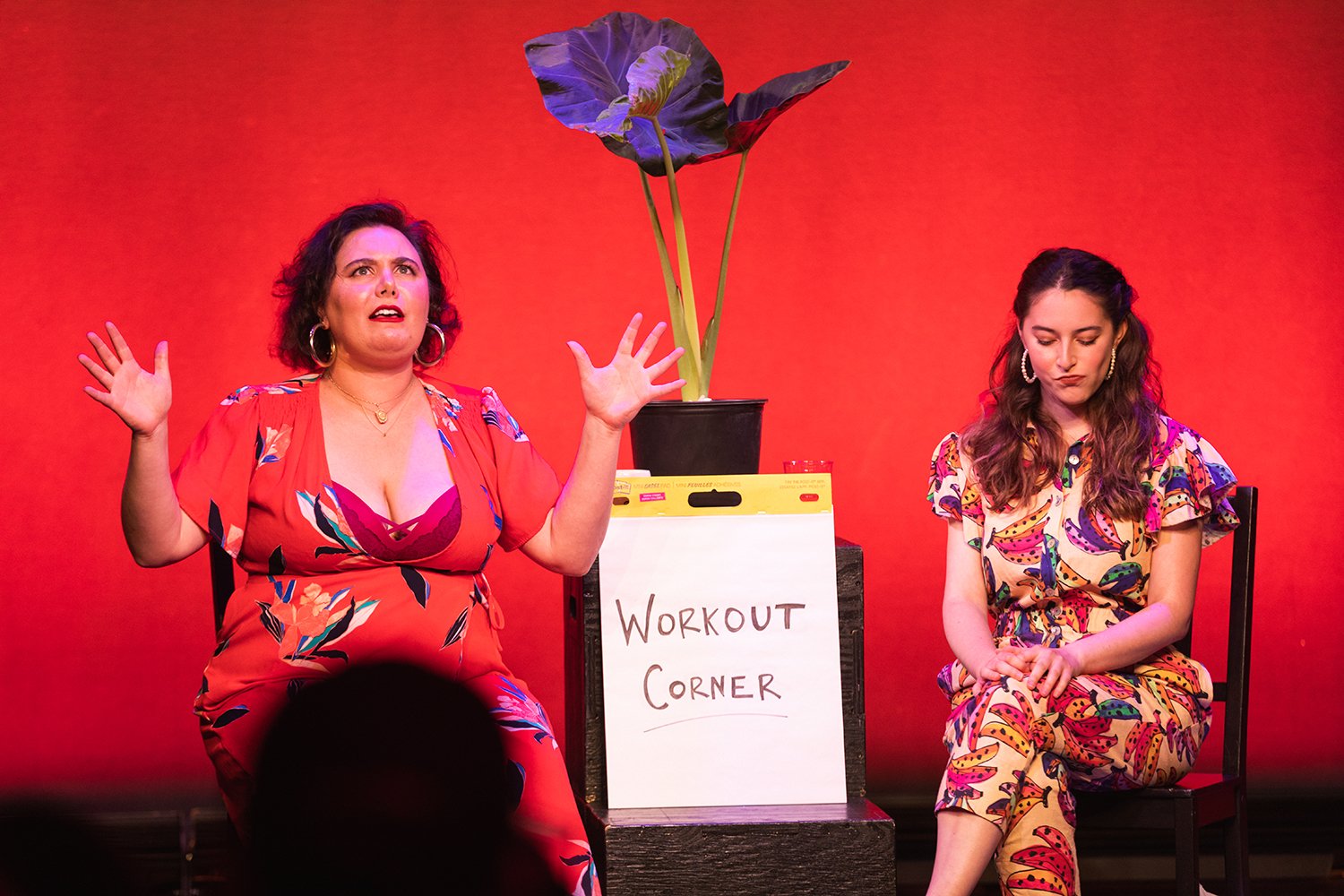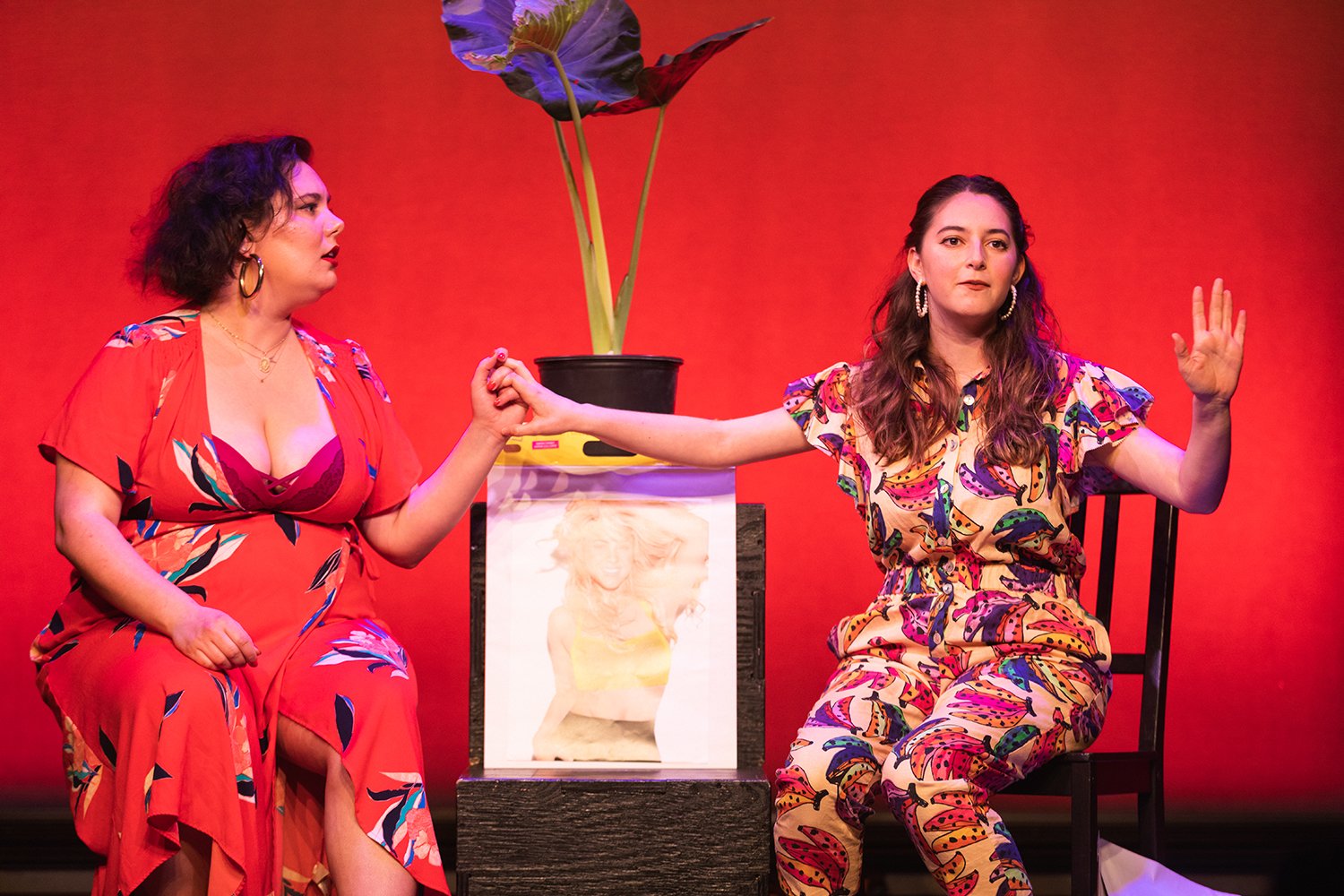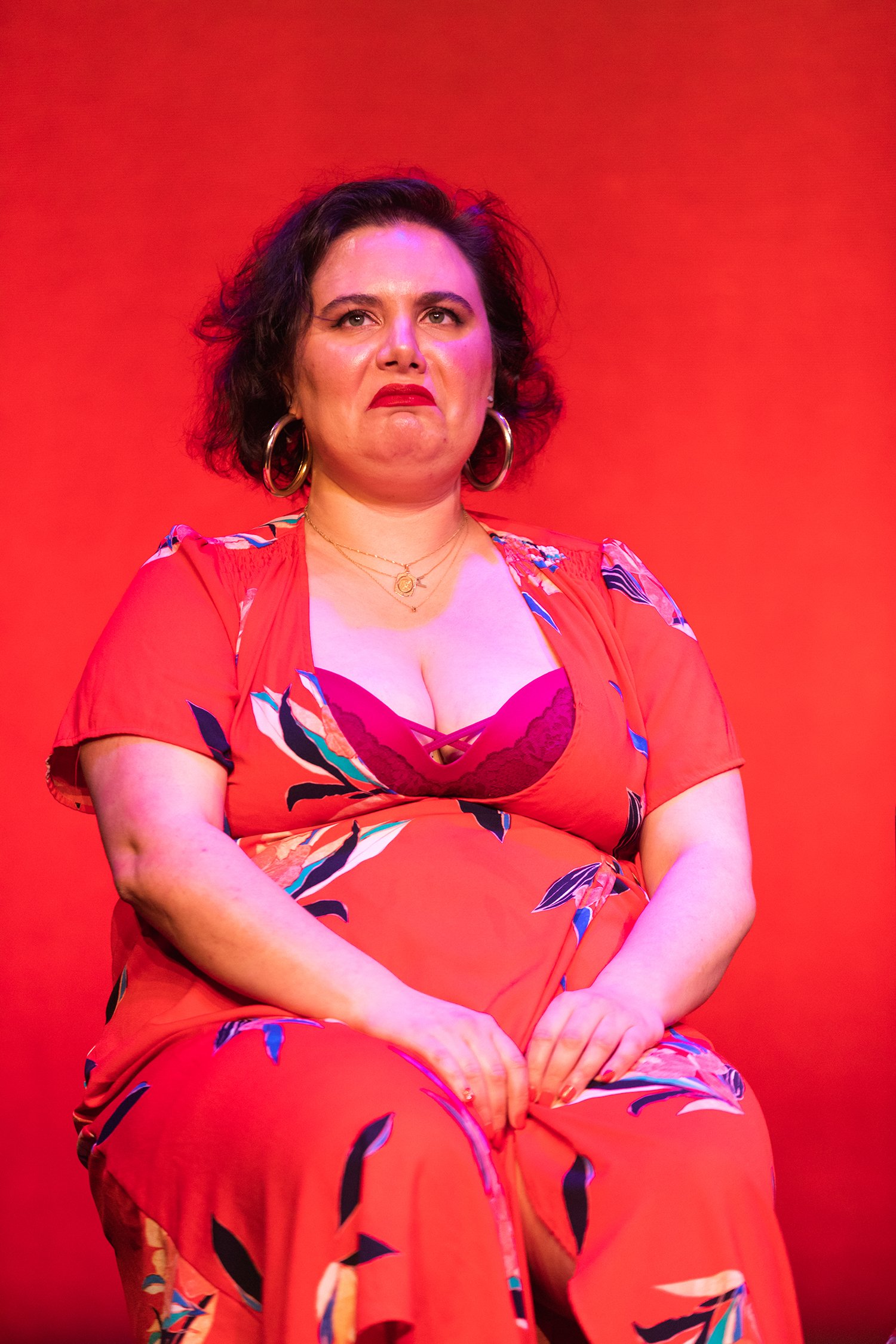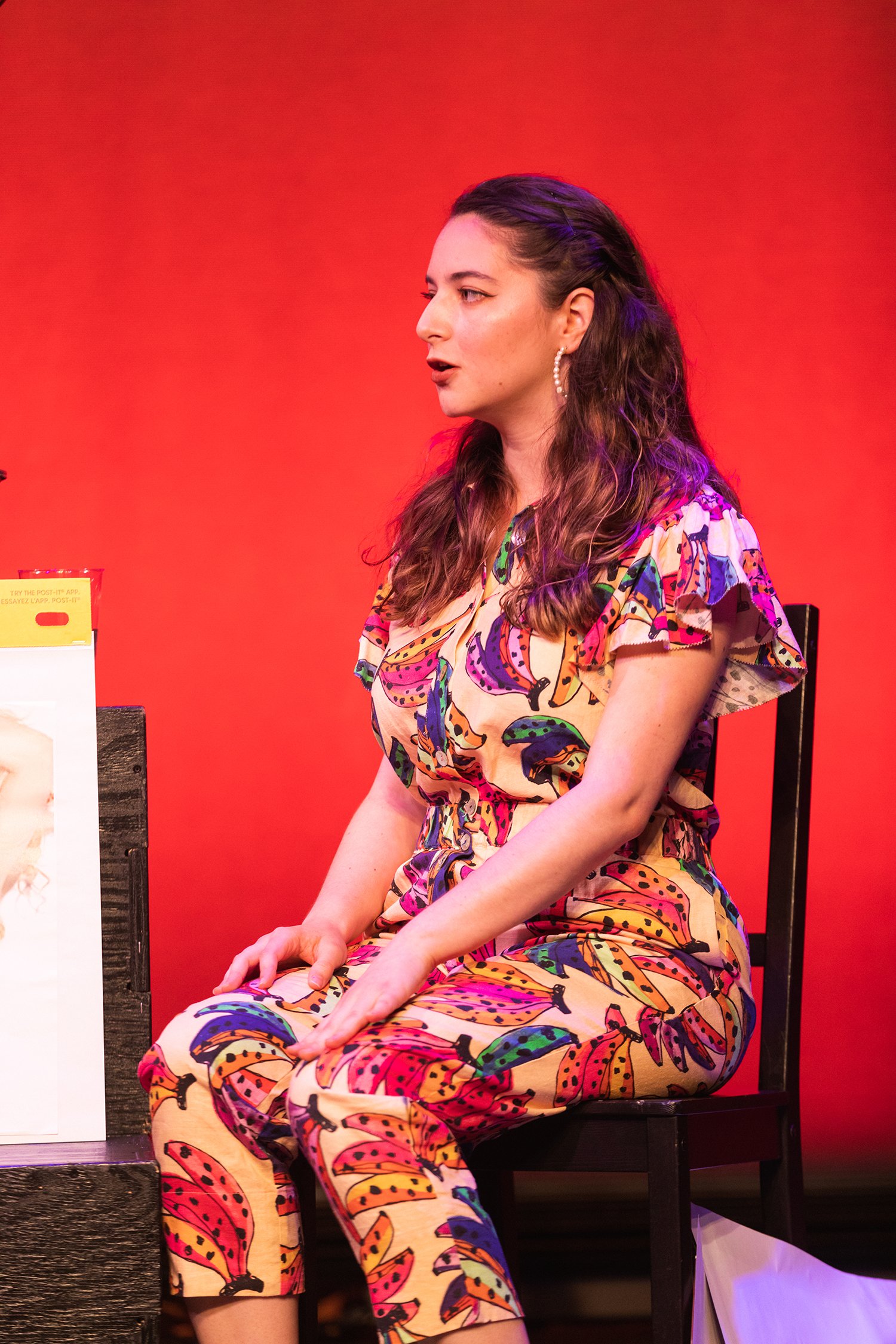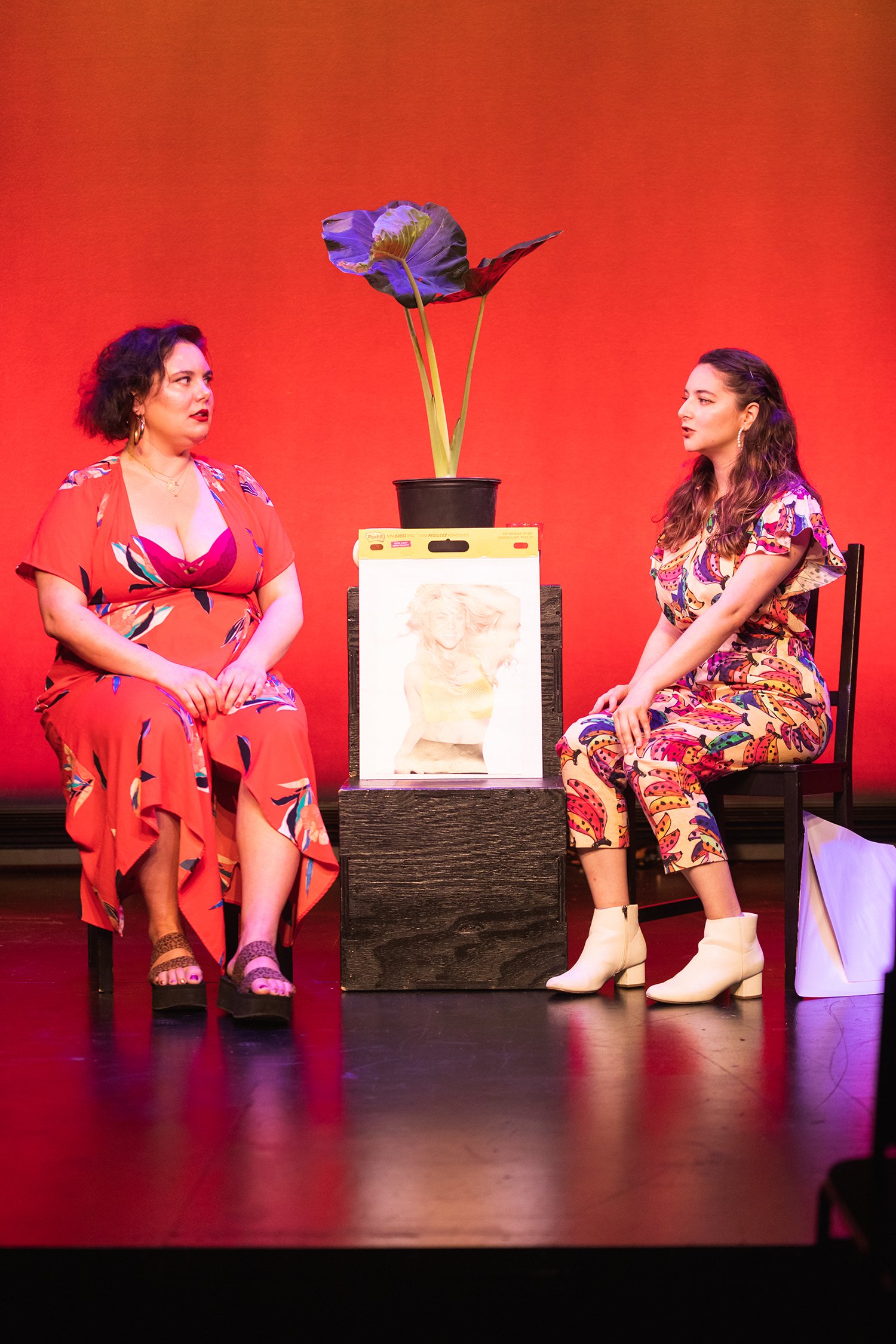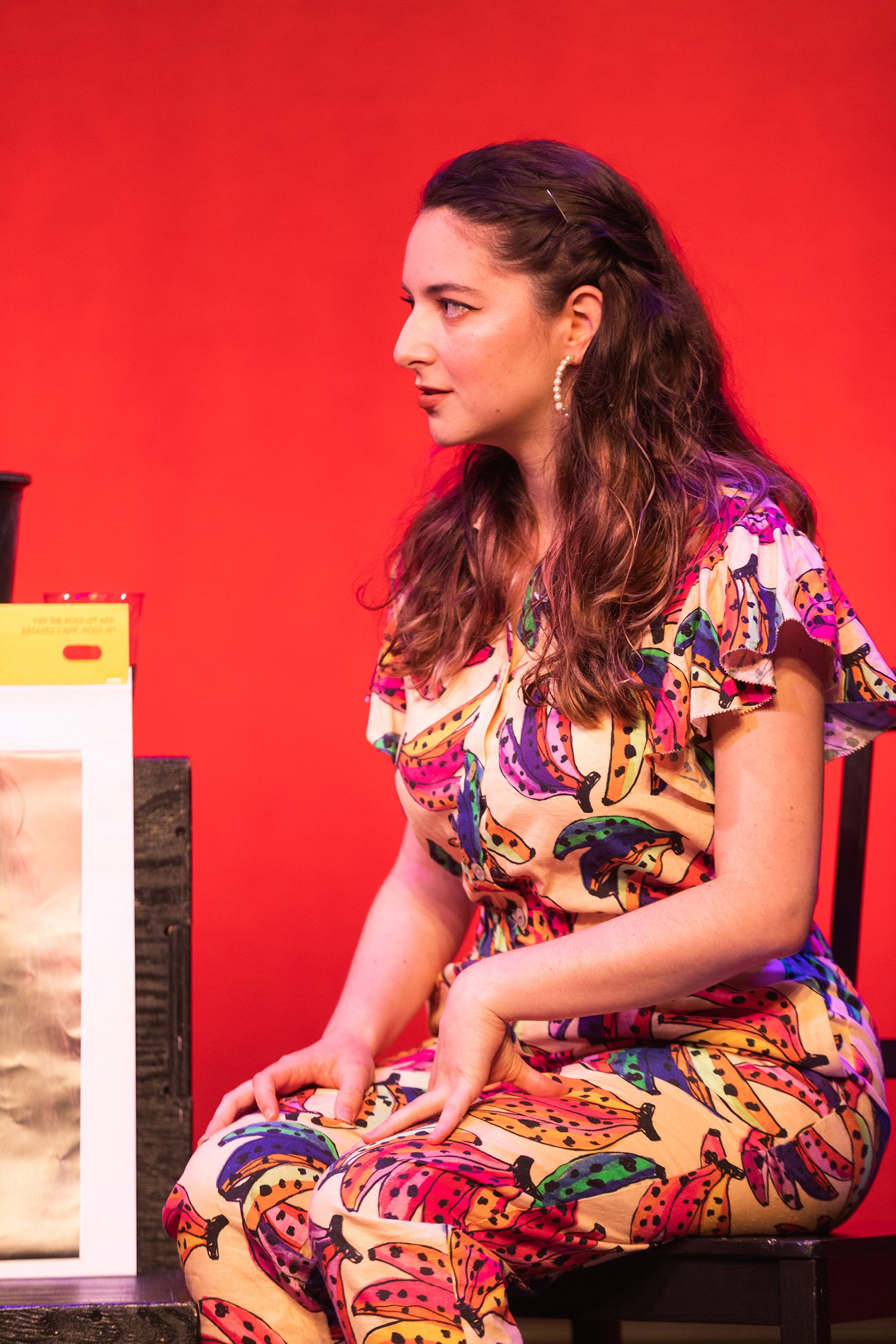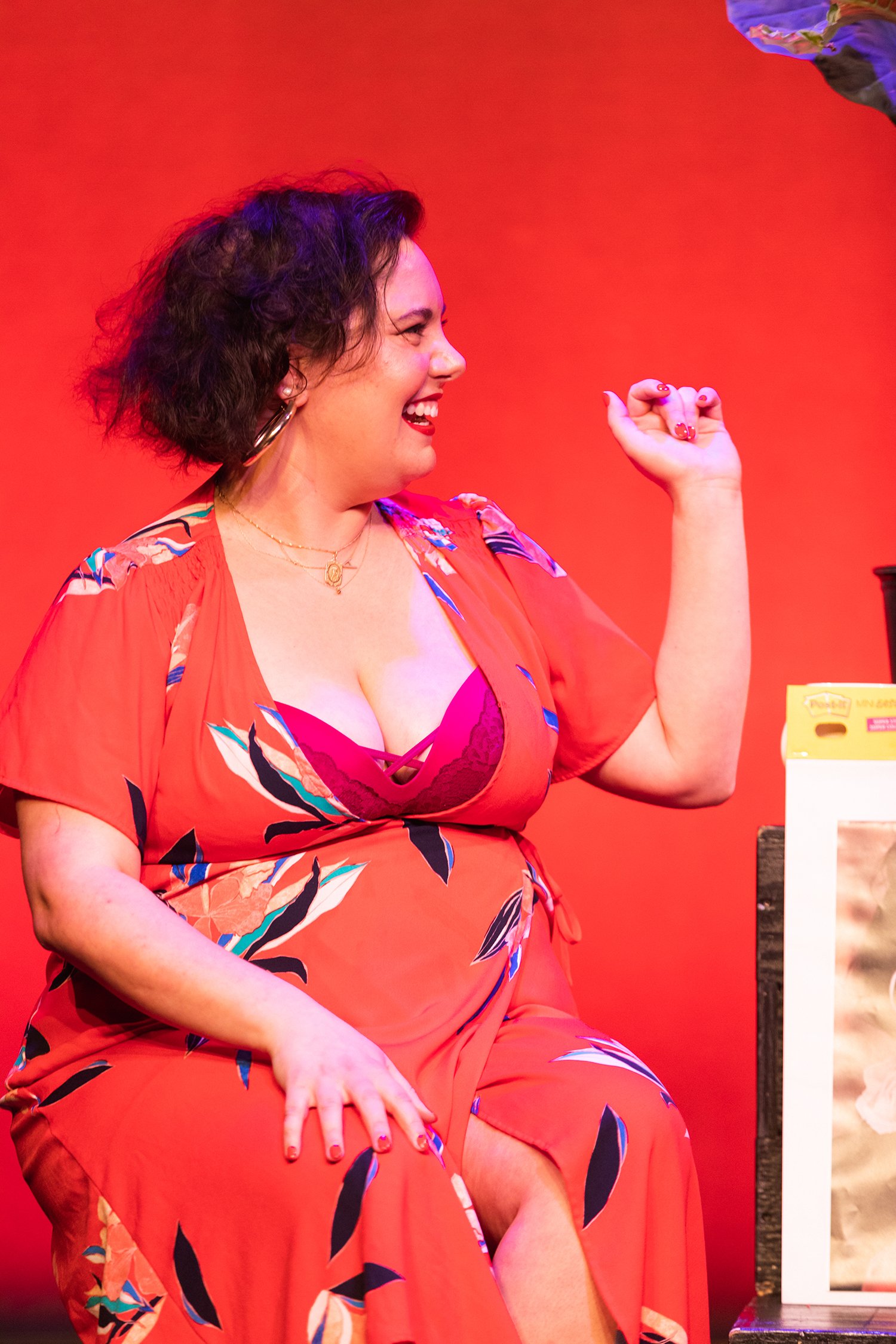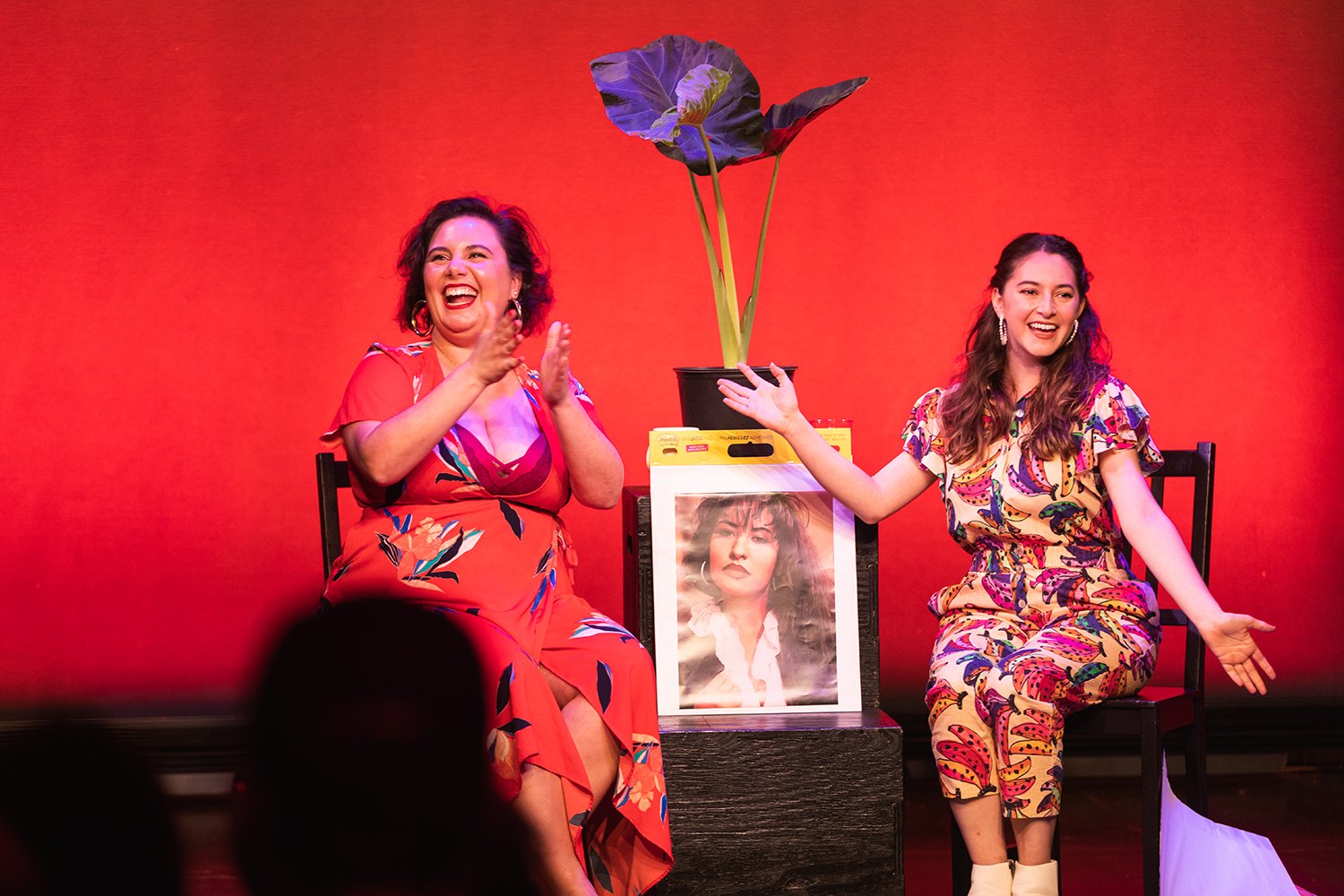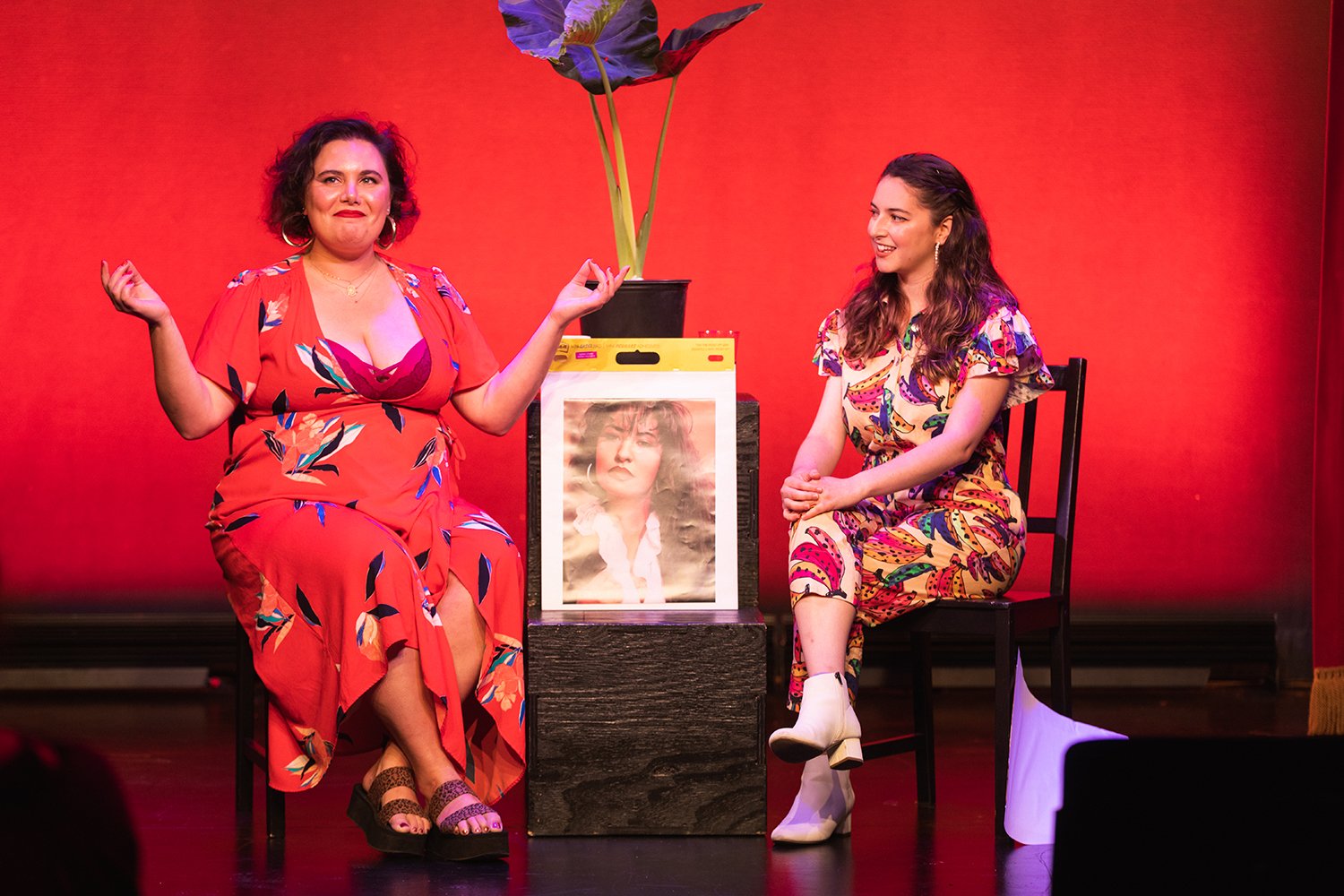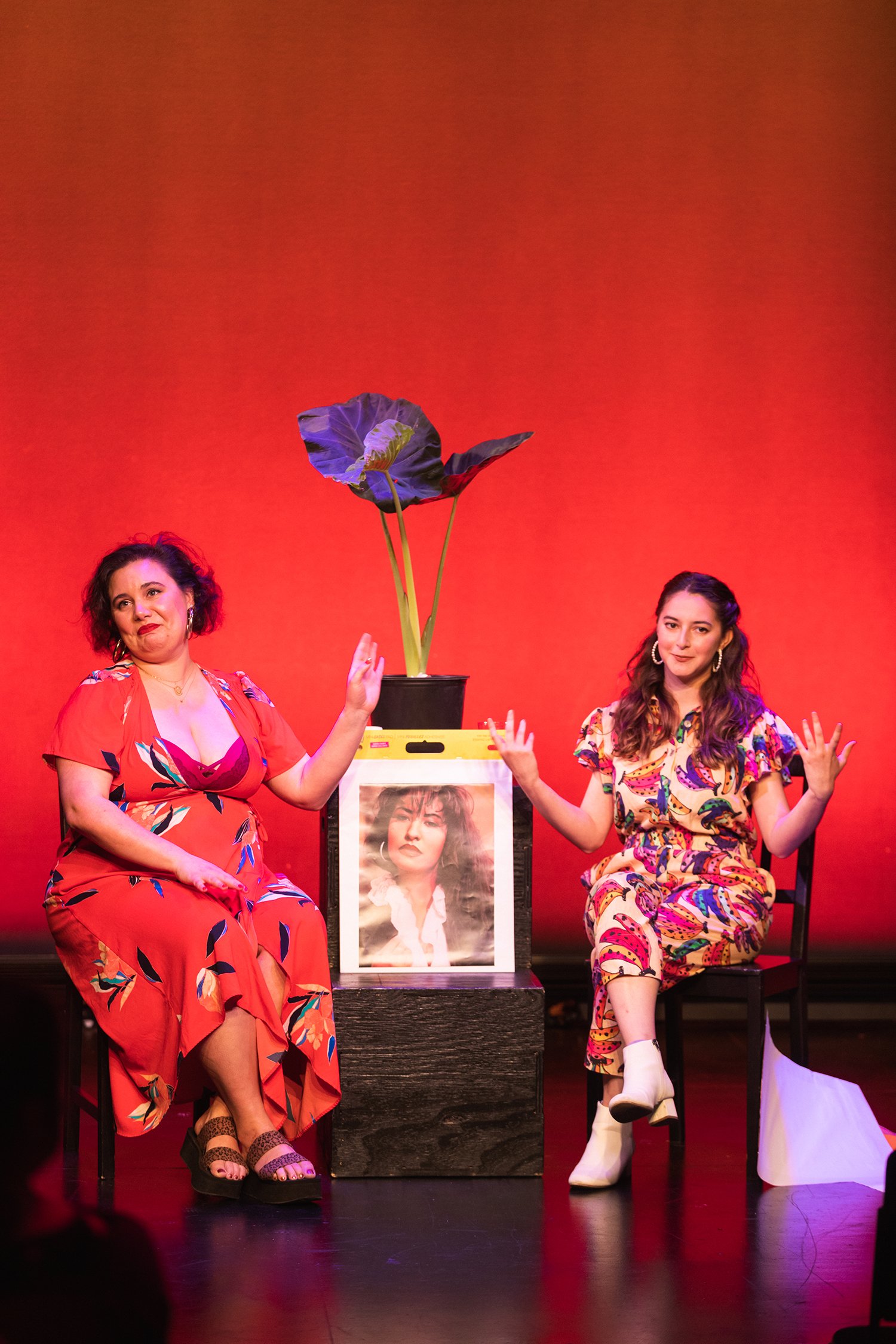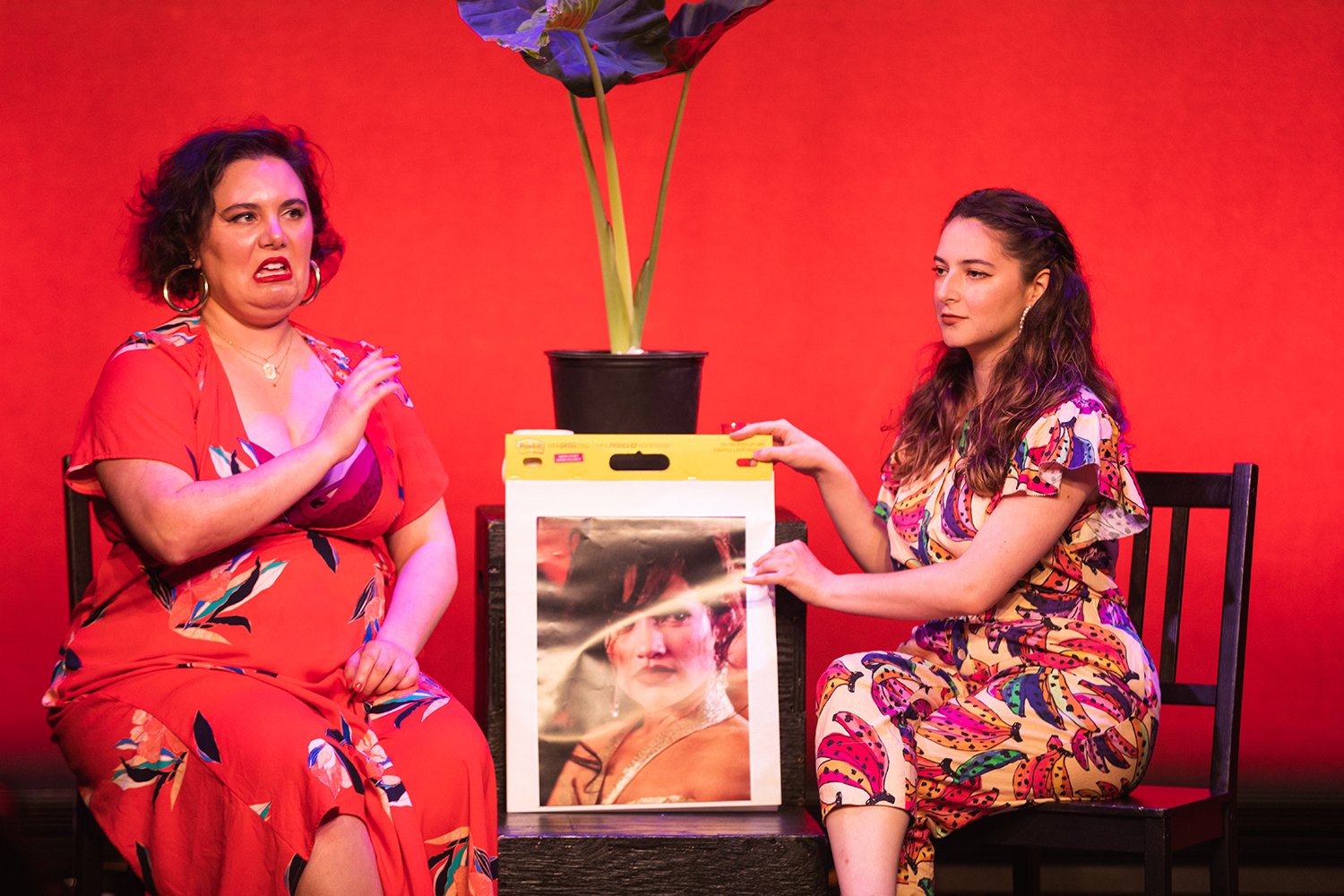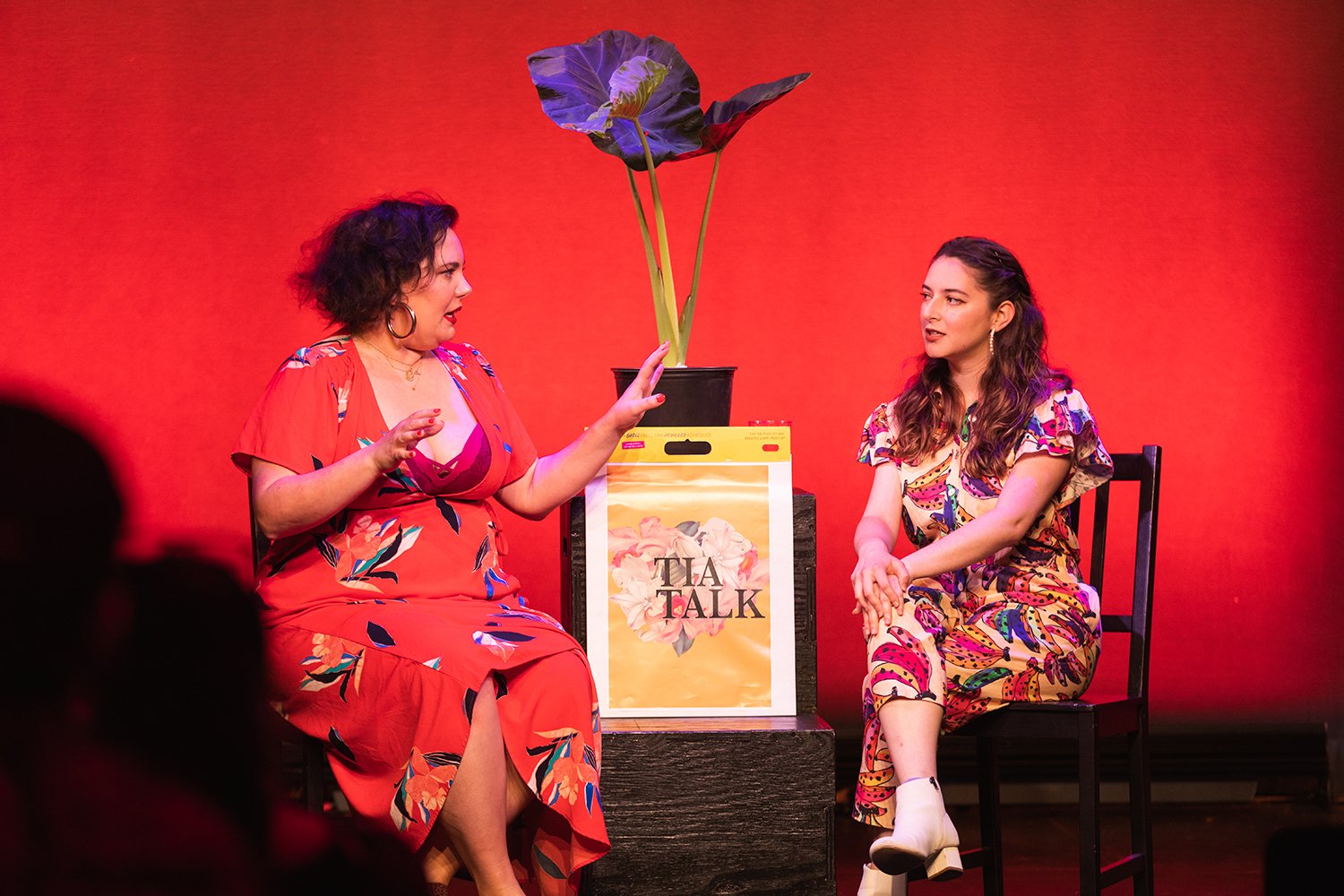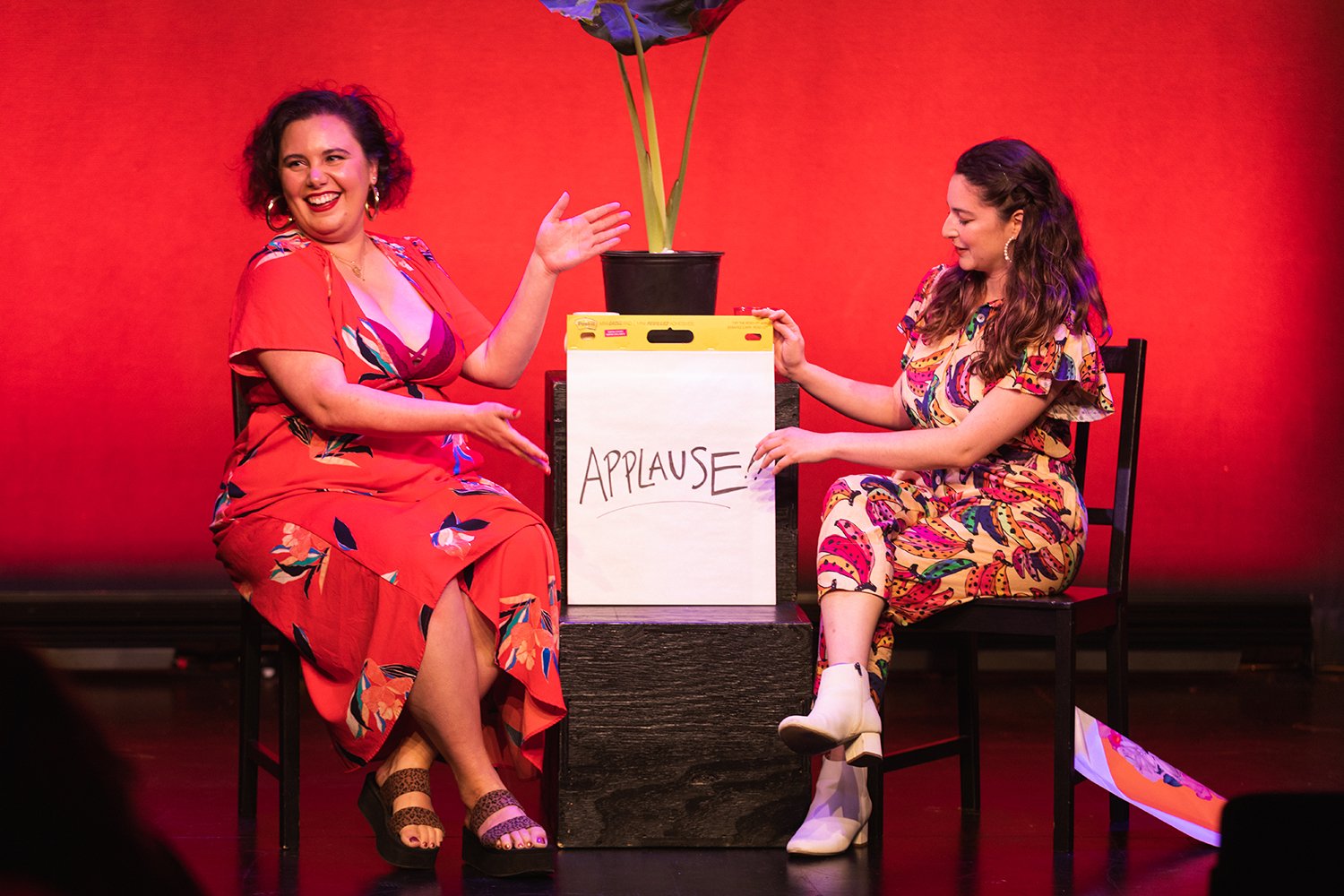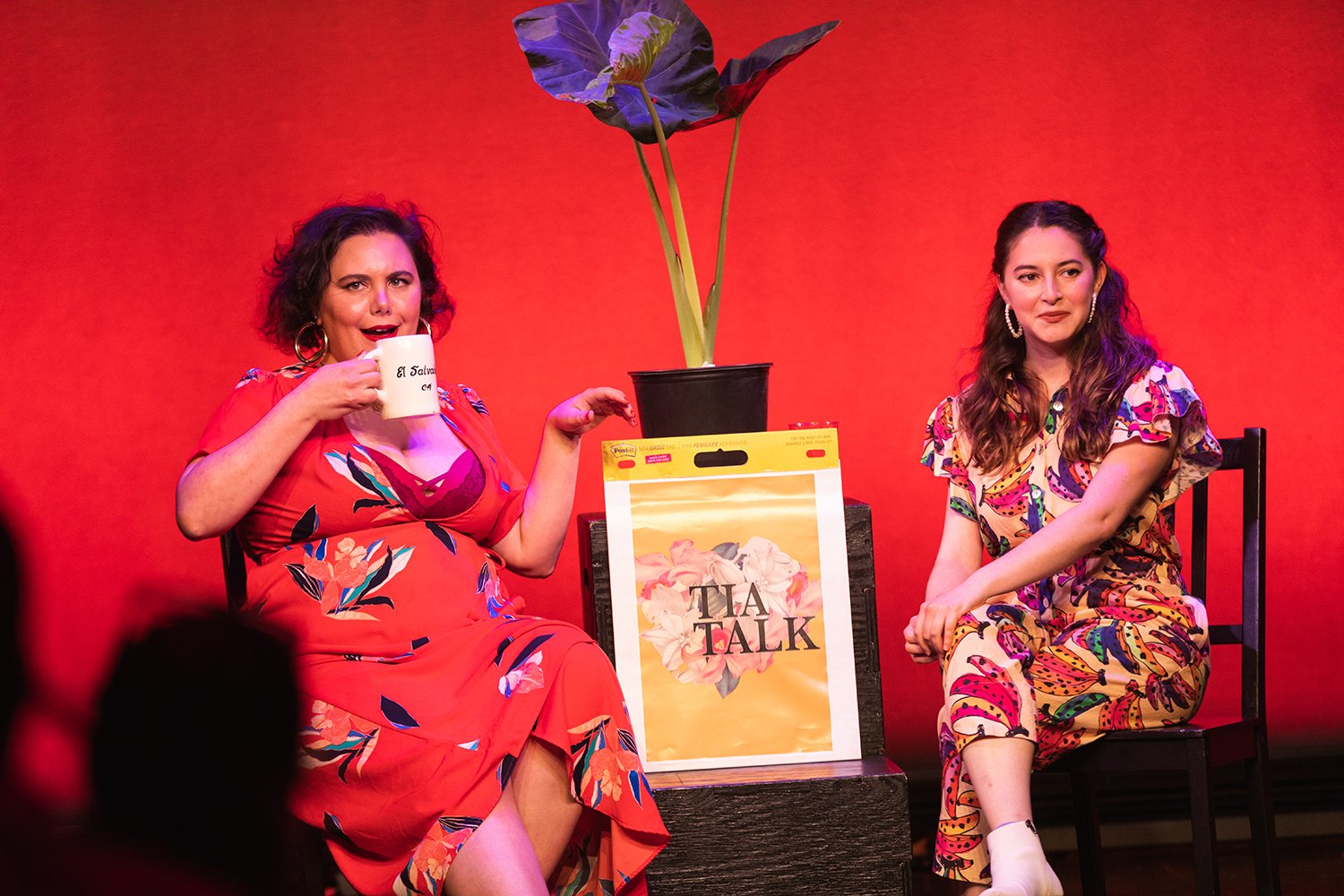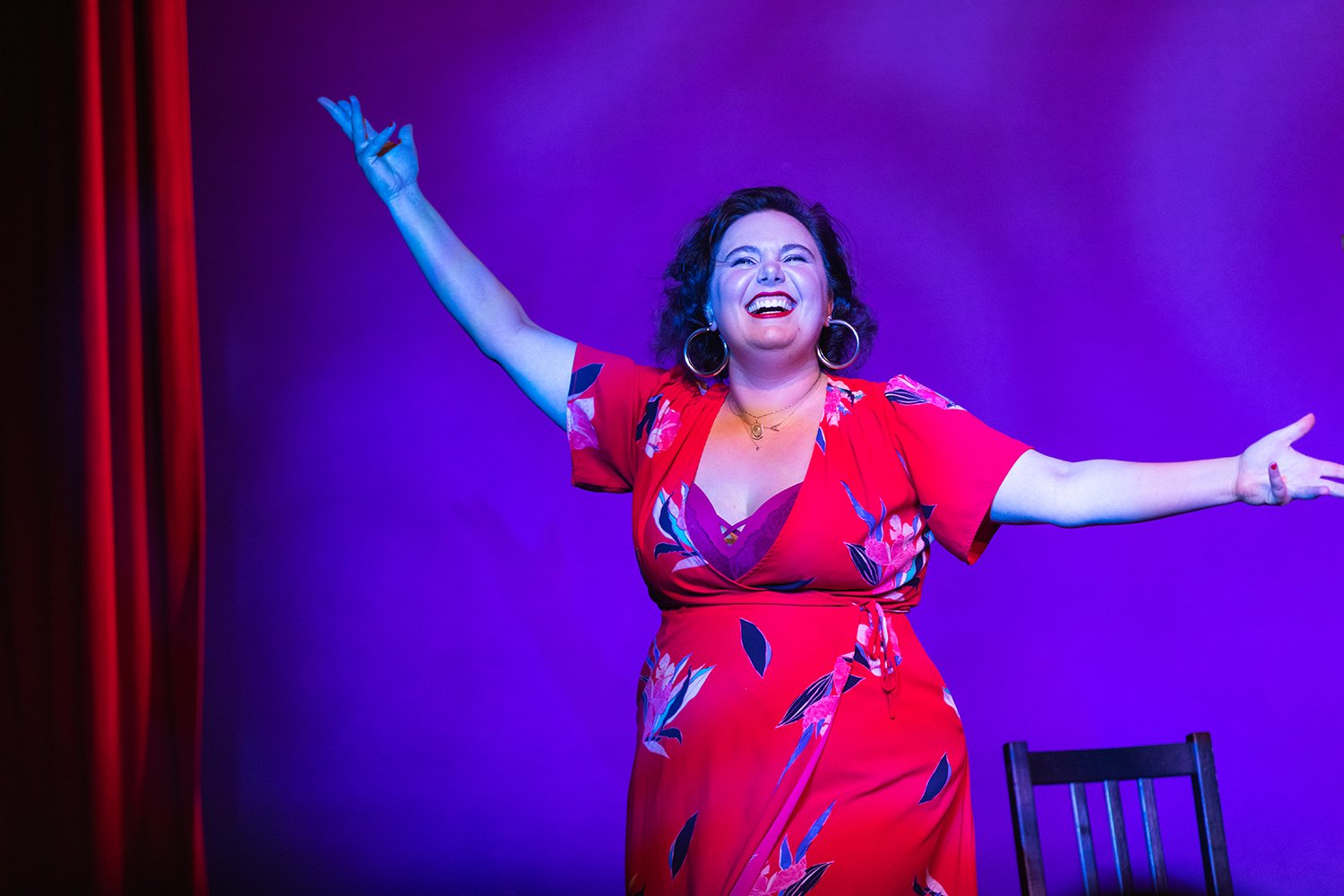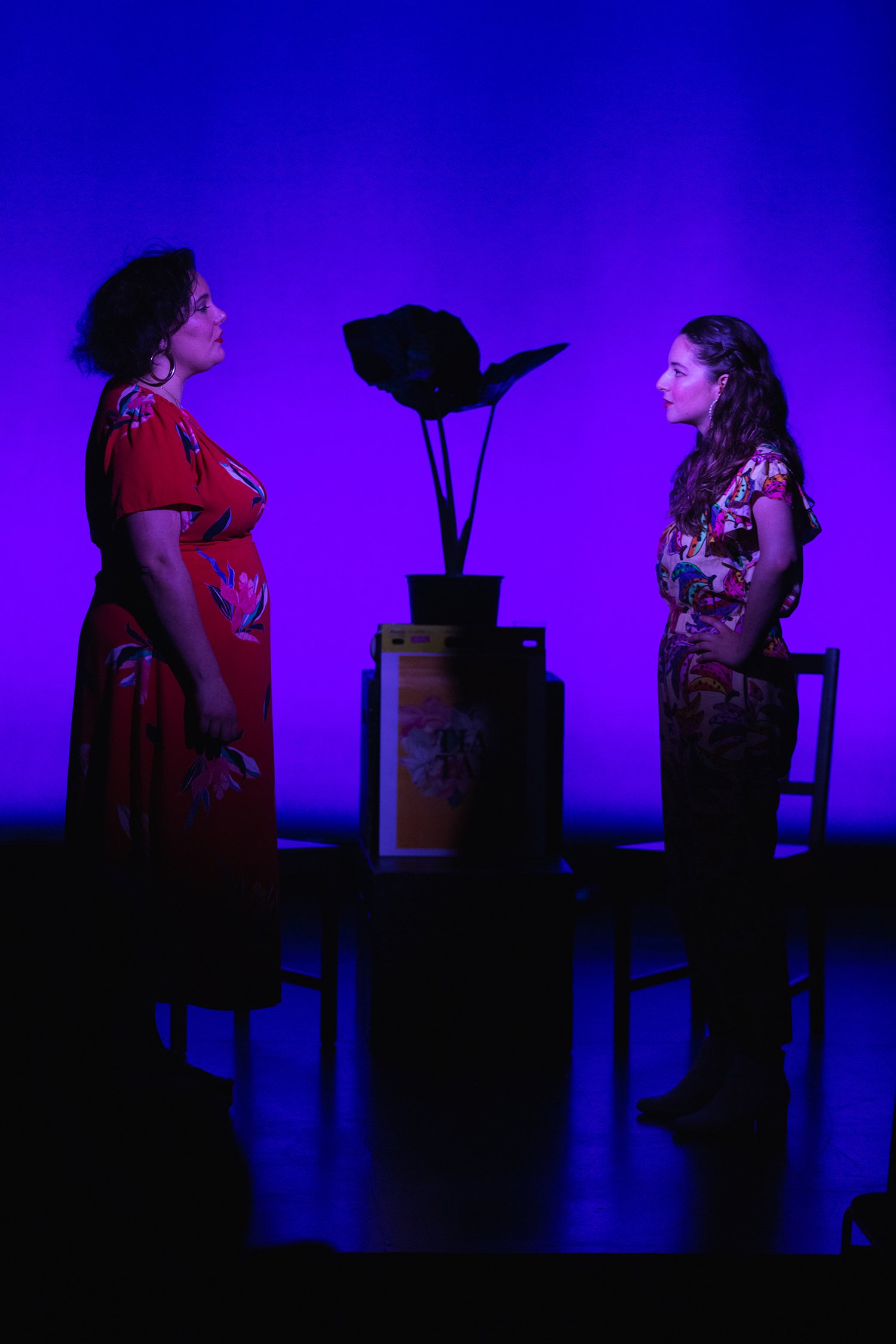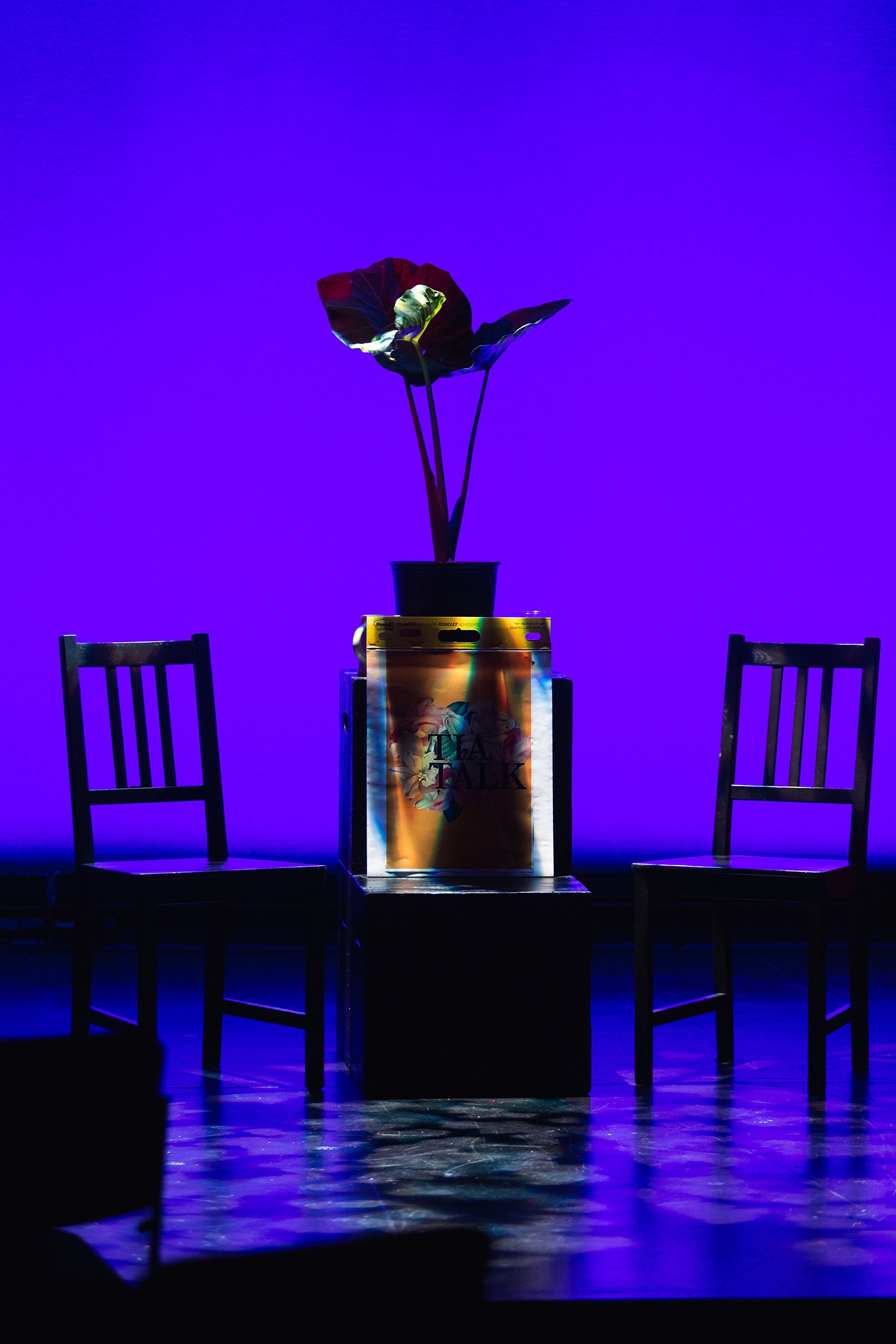TIA TALK - Process
What began as a conversation has evolved into various iterations of a theatrical piece that explores identity and celebrates culture.
In Tía Talk, two Latinas, Karen and Amelia, try to prove their Latinidad to themselves and the audience by embodying every stereotype they have been fed by the media, their peers, and even their families. By using the structure of a talk show, they invite the audience to participate in their exploration of identity by building interactive segments, offering advice, and posing unanswerable questions (e.g. how can we acknowledge the inherent racism and settler-colonial status quo of pan-Latinoism while also holding joy and pride in our heritage?). Additionally the performers unabashedly experience joy and pride of their own culture, delving into reggaeton, food and hoops. Drawing from their own unique experiences, as well as the influence of Latiné icons such as Selena Quintanilla-Pérez, Shakira, and Walter Mercado, Karen and Amelia explore issues of identity, including body image, fetishization and assimilation, and attempt to make sense of their place in the world. While they do not find a concrete or simple answer (how could anyone?), they do find connection with each other, and acceptance of the fact that identity is a journey, not a destination.
Grad Lab - Version 1
The first iteration of Tia Talk was as part of graduate school project. It was a twelve minute piece for Grad Lab, at Sarah Lawrence College. This piece established the talk show format within which Amelia and Karen would explore questions about their own identity. Within the talk show they would try to embody las tias the audience wish they had. They received feedback from their peers and instructors, who felt they were allowed a look into hispanic culture. This presentation made them arrive to the conclusion on the question of how do they confront their own hand in the settler colonial perspective inherent in pan-Latinism and their own white privilege along with the joy and pride of their Latinidad.
This piece spurred from a conversation between Amelia and I about the word LatinX, To me it felt it was an American word used to conglomerate those in Central and South America, instead of acknowledging each individual country, while ignores the word created by Argentinian students LatinE. Amelia pointed out how LatinX could be useful for people who are of Latin heritage but born and raised in the States. To answer what does LatinE means we used the form of Talk Show, a clear and recognizable format that we could break down. It also allowed us to take on personas that embody stereotypes people associate with LatinE people.
PAPER KRAINE and The Tank - Version 2
After graduating from Sarah Lawrence, Karen and Amelia wanted to present an evolved version of Tia Talk. They were part of Paper Kraine’s Thanksgiving show and 20 and 20’s festival at The Tank. For this iteration of both Paper Kraine and The Tank we had little to no tech. We adapted the projections from the Grad Lab version into an easel which we ripped and instead of using lights as a way to denote interruptions we used the Duolingo “ding”. There was a two week gap between showings, allowing us to hone into this version of Tia Talk. We discovered what received similar reactions and what did not. The Tank was the first time working with producers not directly involved with the venue. Big take aways of this experience was keeping the easel and incorporate the Talk Show applause sign into the show. After this show we started developing two ideas: cooking show segment and a Tarot Card reading.
ARS NOVA - ANT FEST 2022
Tia Talk was chosen to be part of Ars Nova’s 2022 Ant Fest.
We expanded from 15 minutes to a 45 minute show. Adding new sections and expanding previous ideas. Keeping the same joy, our trusty easel, chanclas and brooms. We added new elements, Macarena dance, and homage to Walter Mercado and fashion corner.
During our time preparing for Ant Fest, we rented a space once and then rehearsed from our apartments. We had the challenge to expand what had been a clear fifteen minute show to a longer portion and still have the story be comprehensible.
We divided our central piece and scattered it this highlighted more of the internal questions we hold as Colombian and Salvadorian-American.
Personally I found my persona has to contemplate what compromises have I made with my culture while assimilating into the United States.
